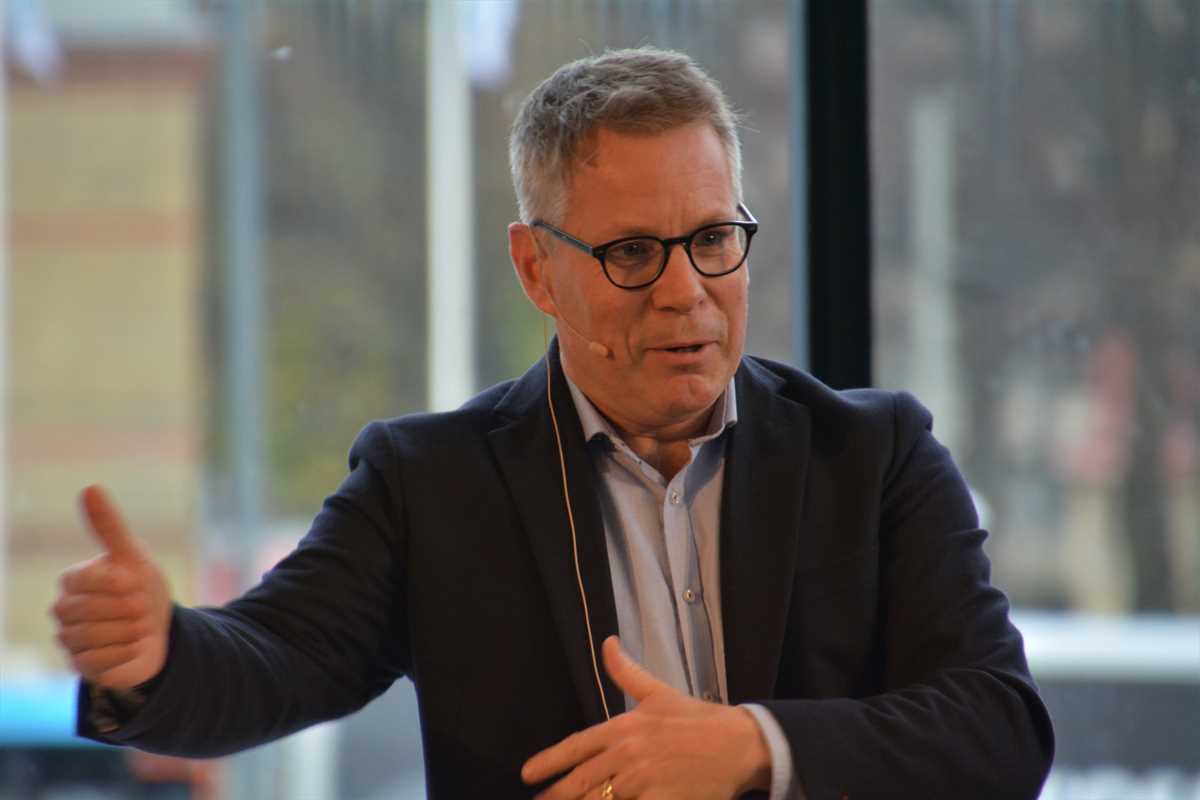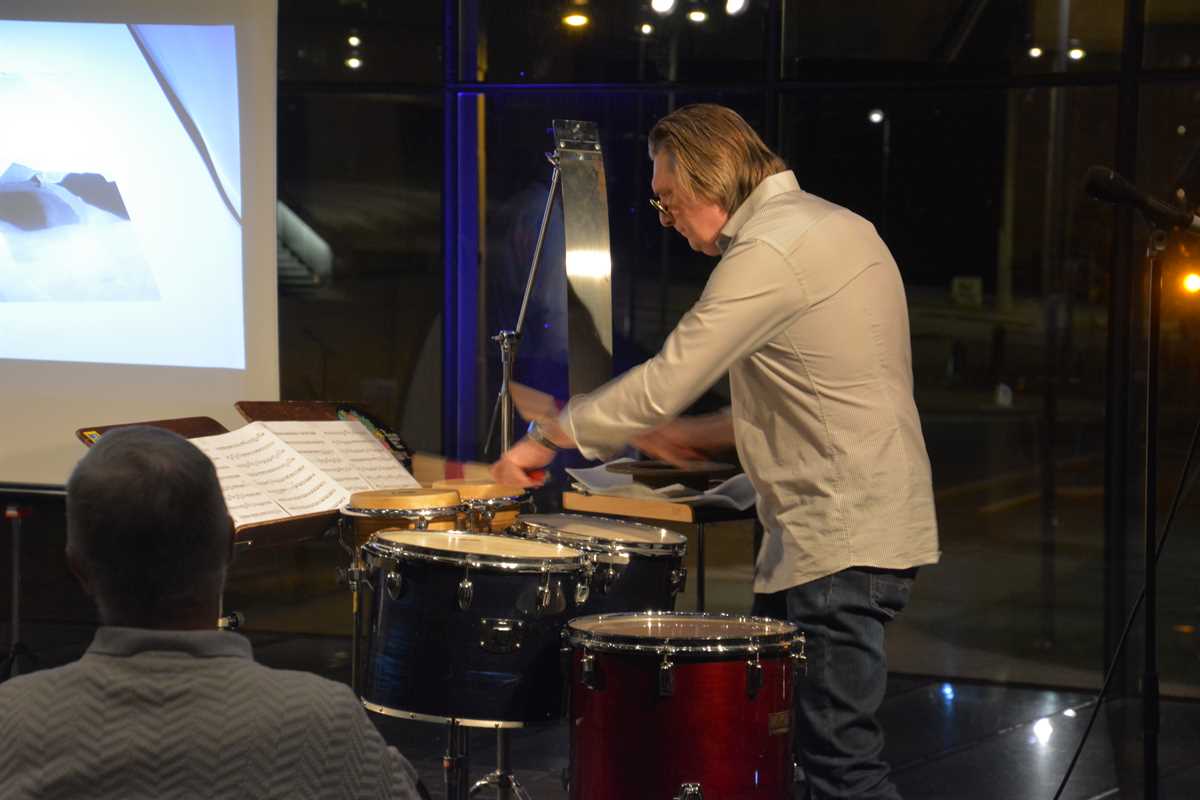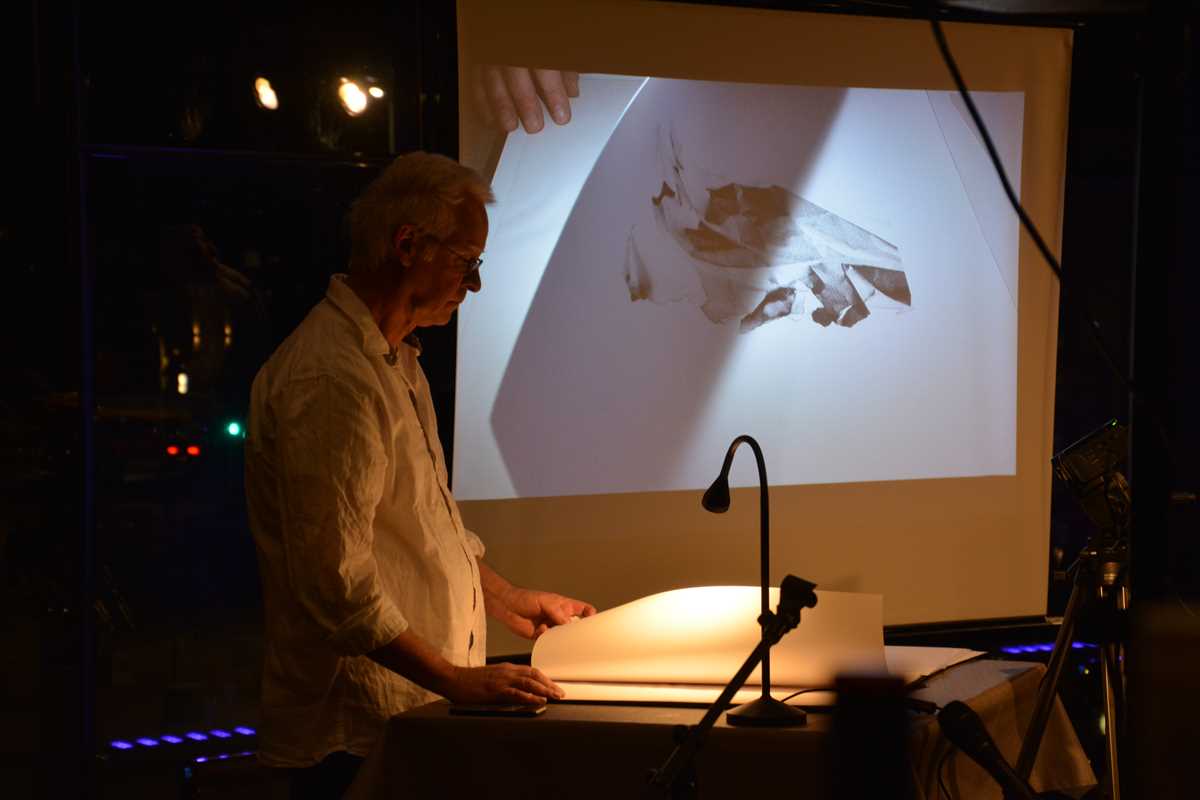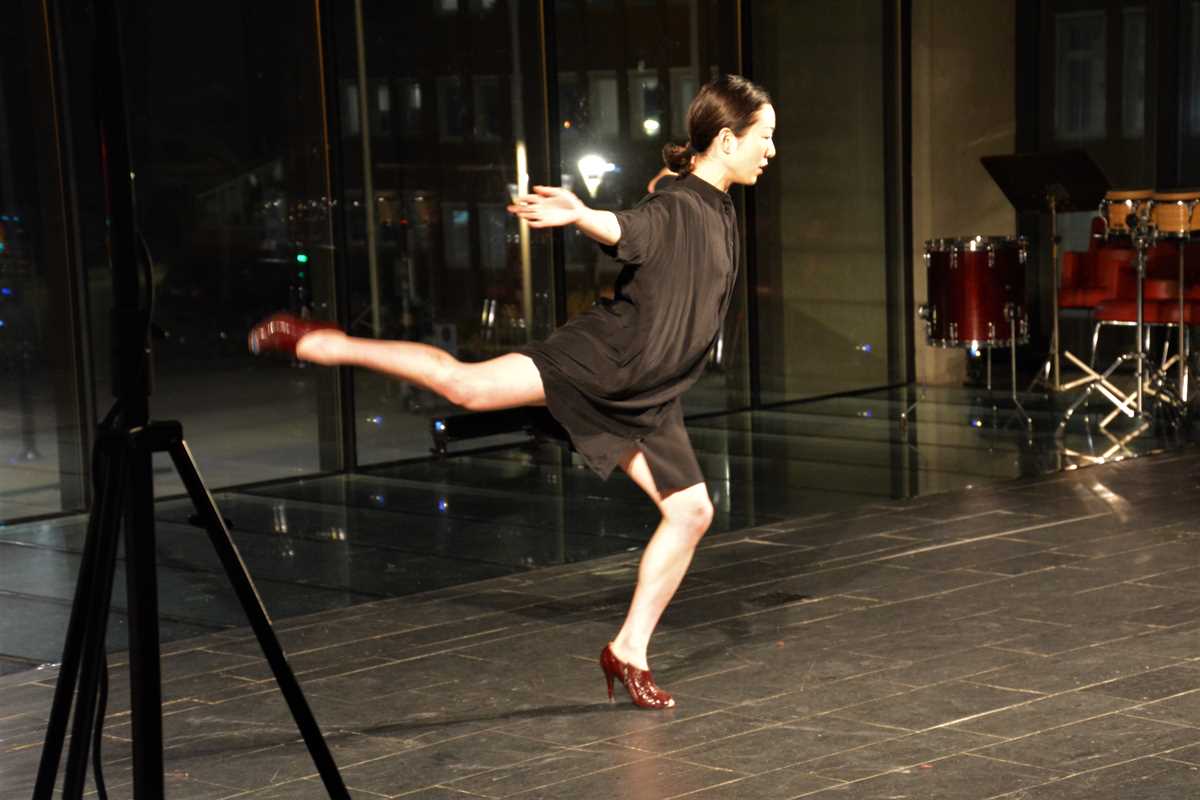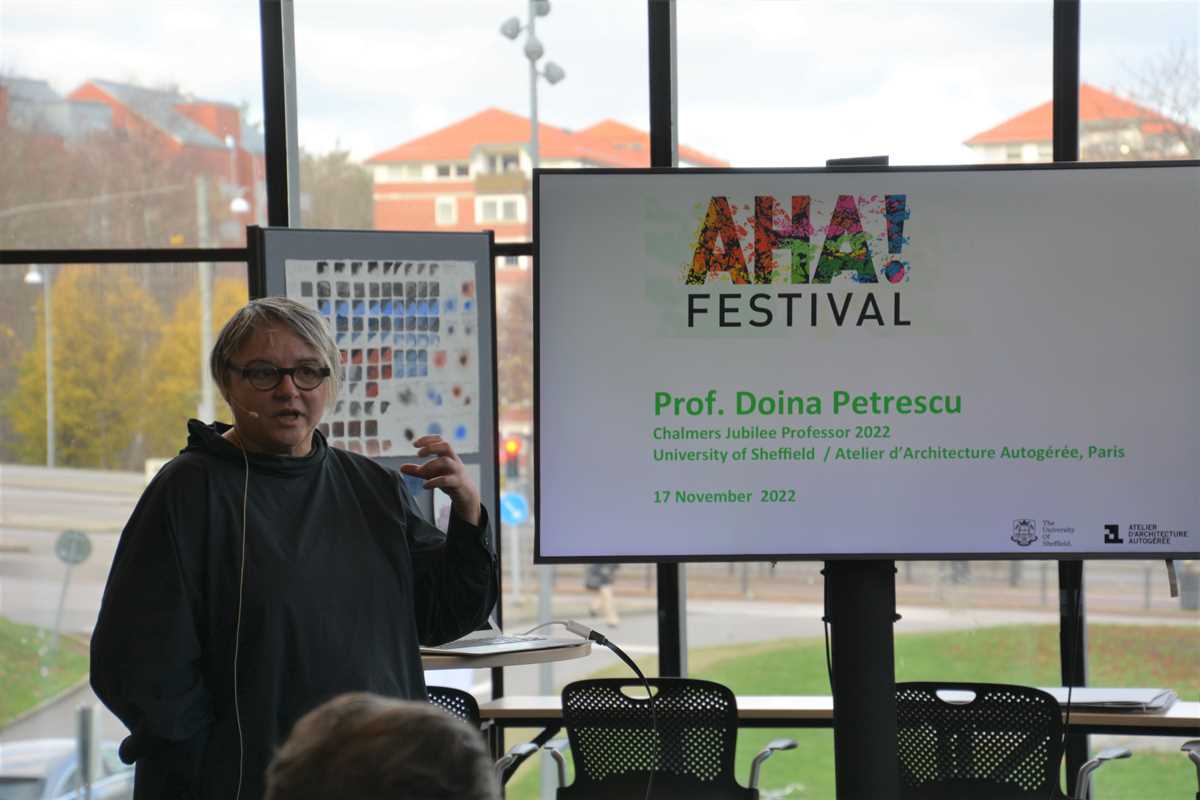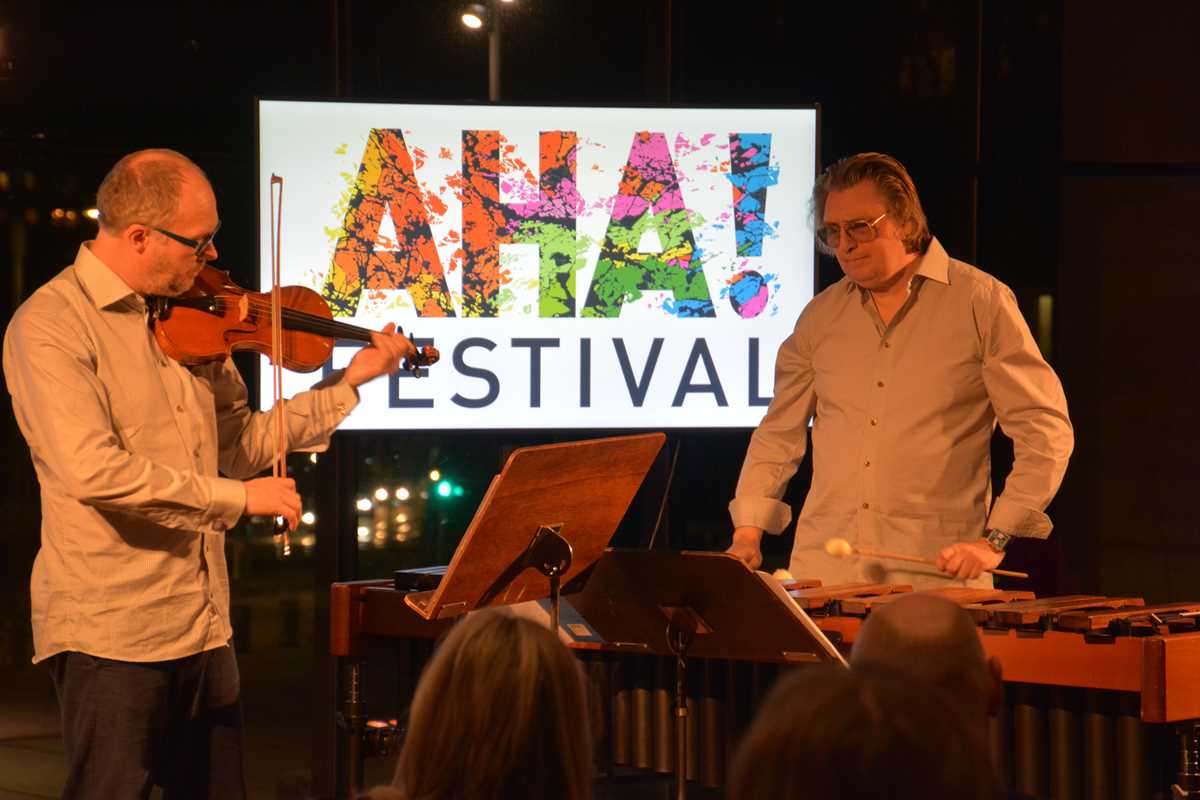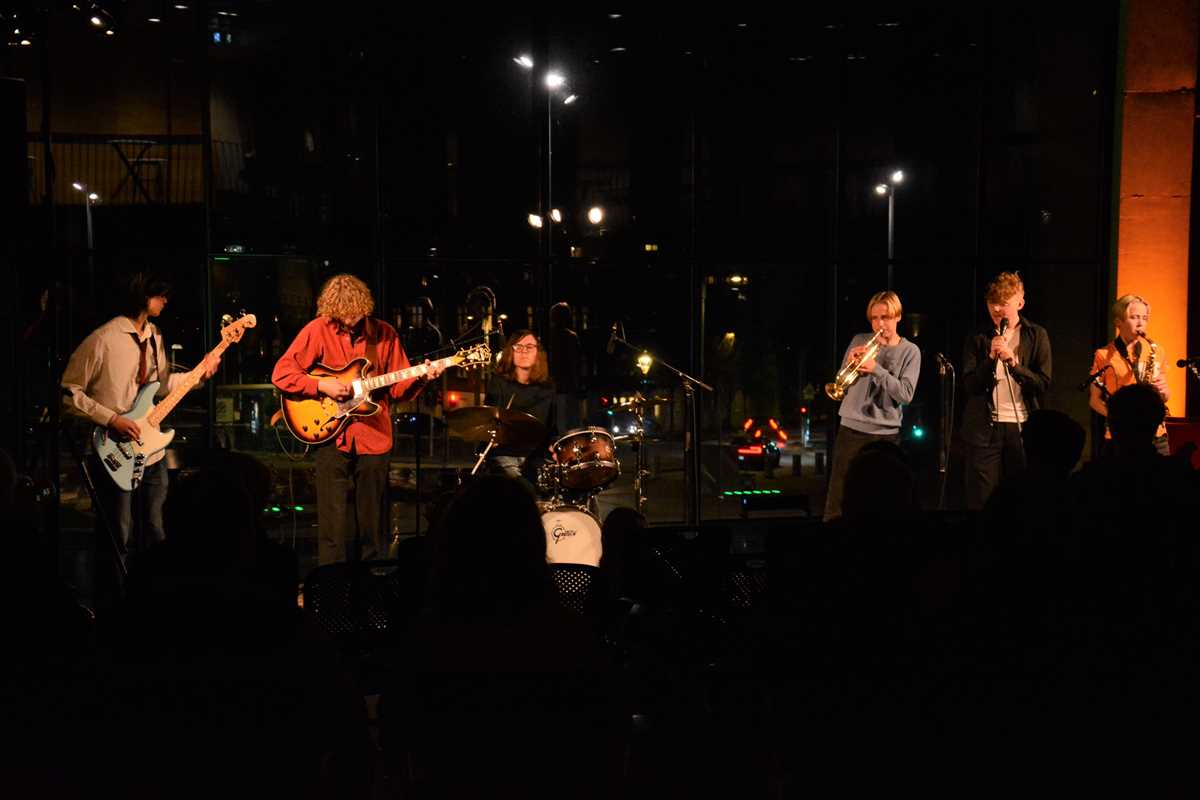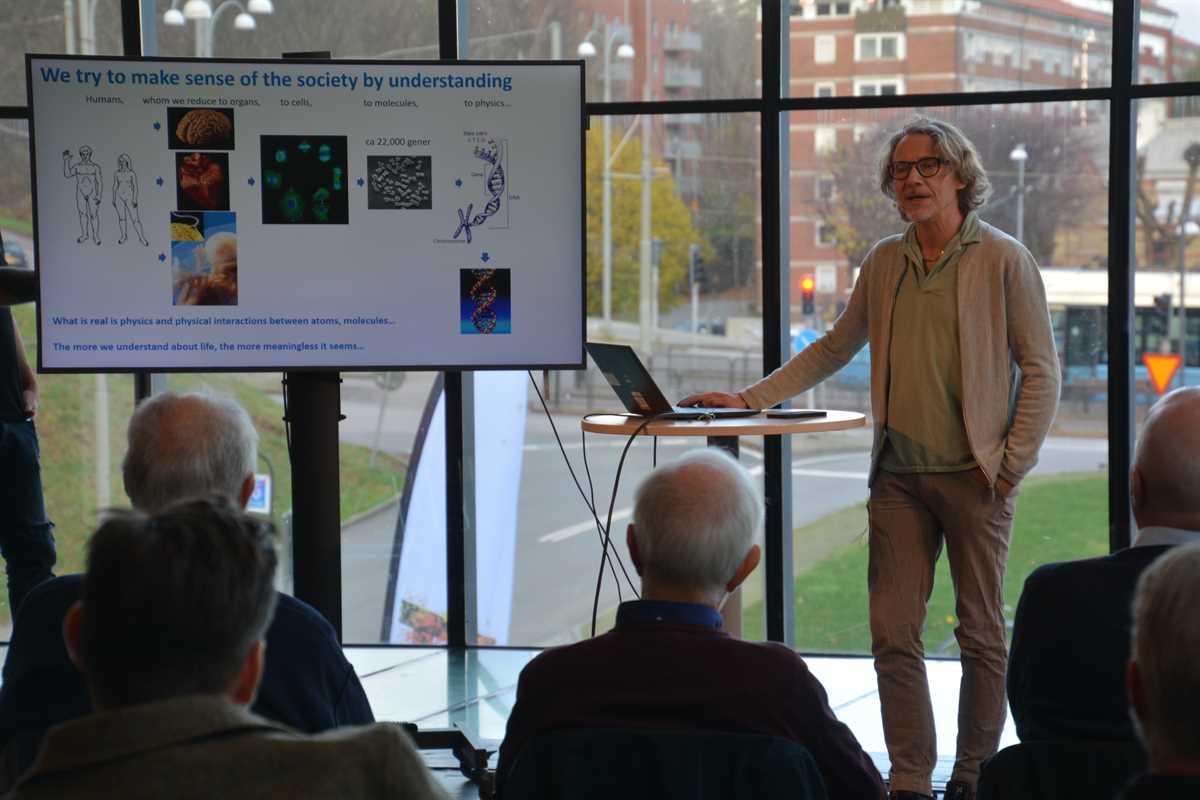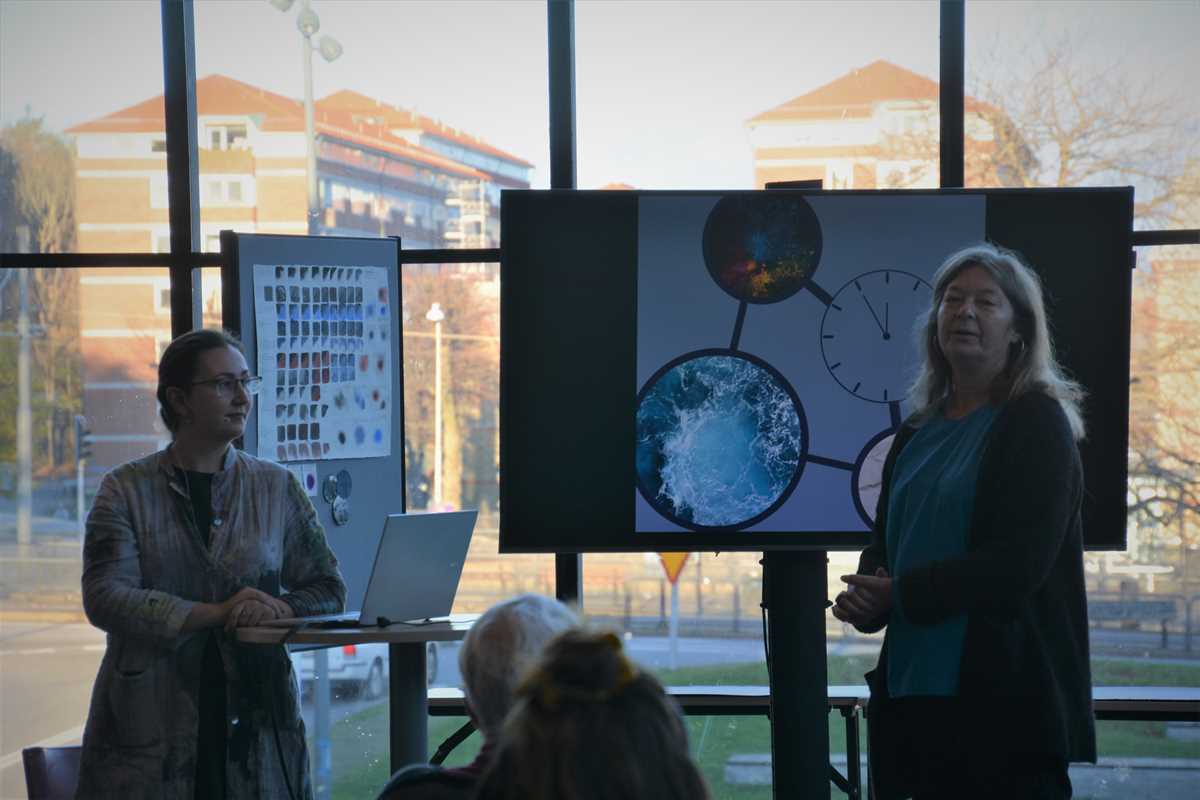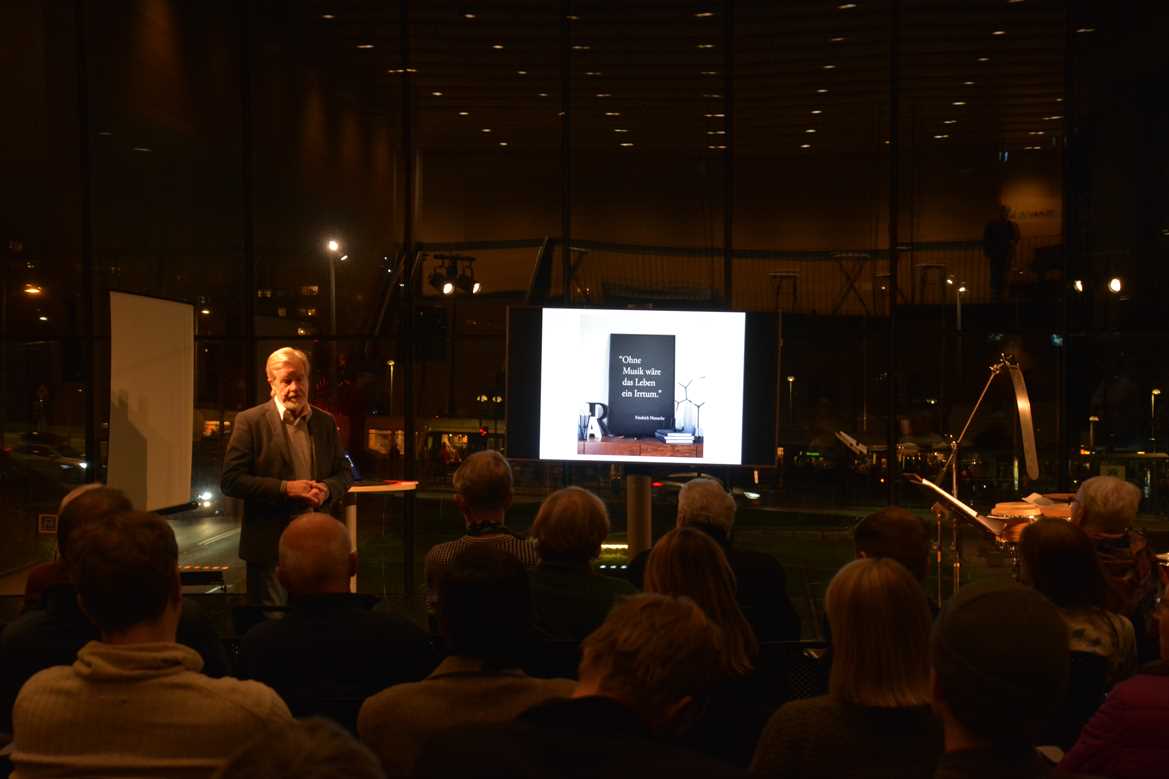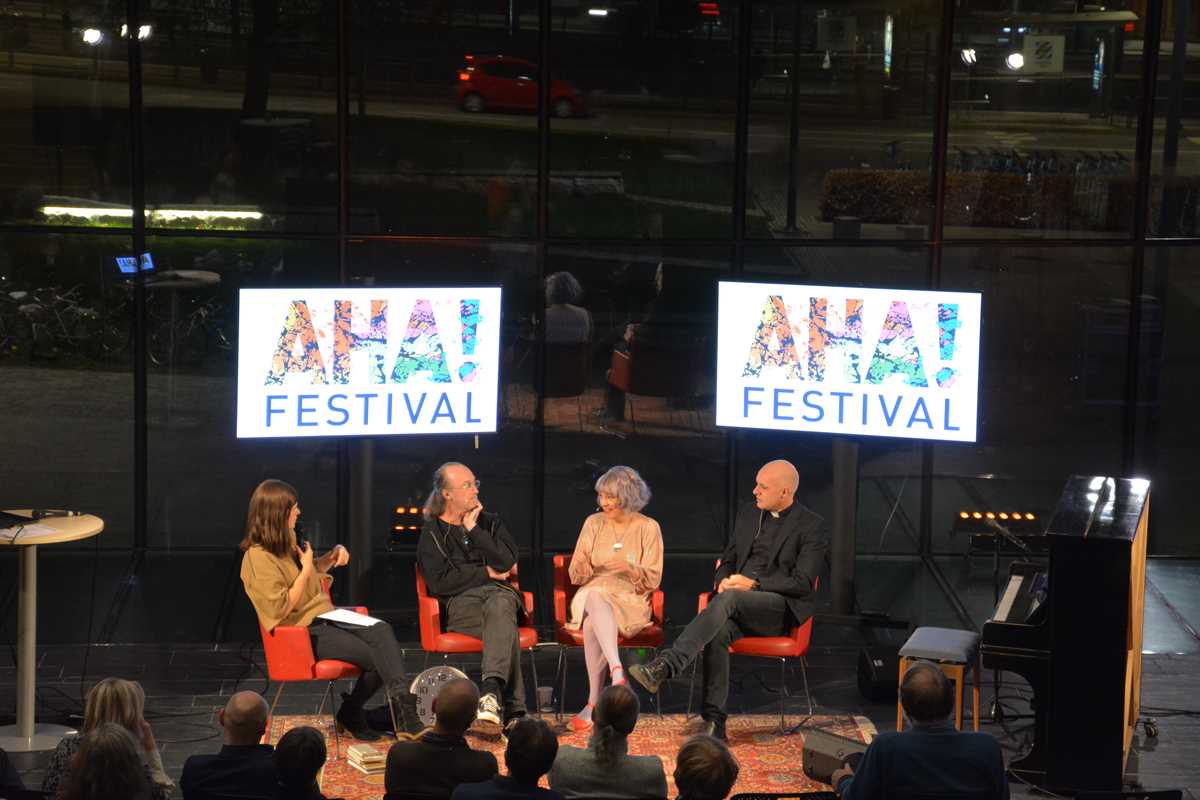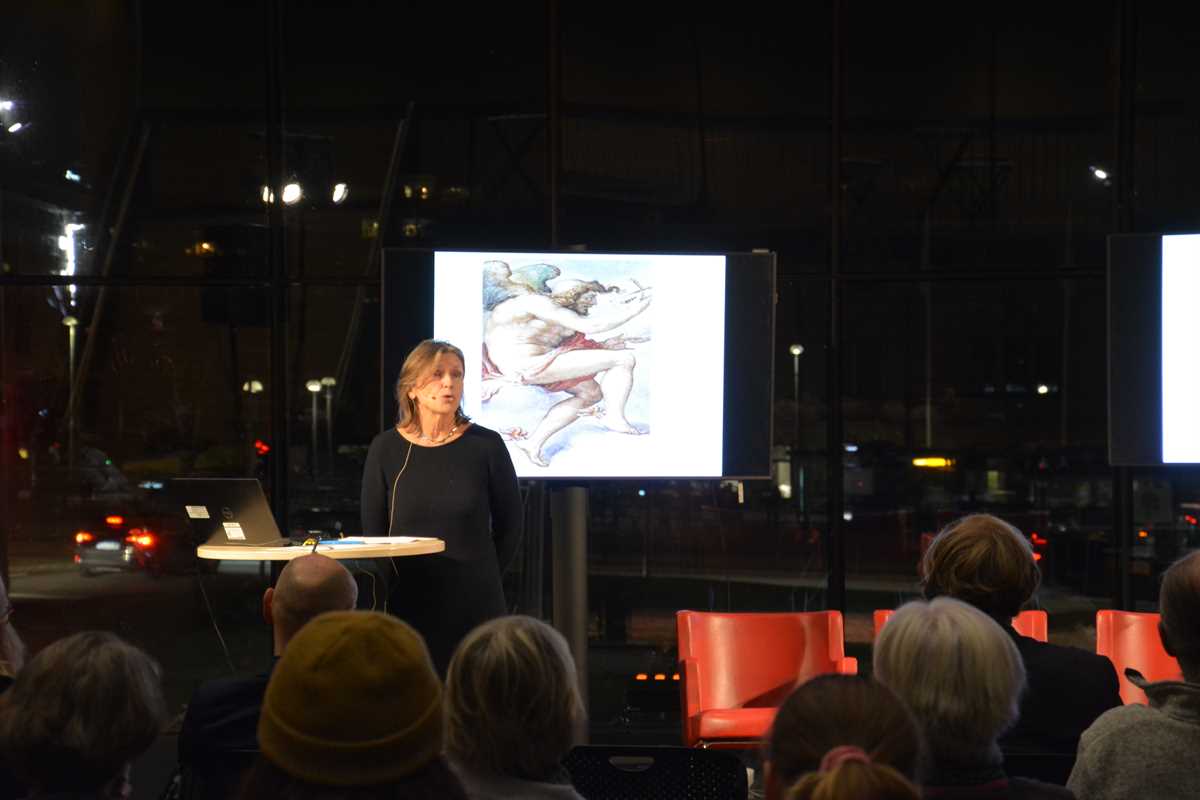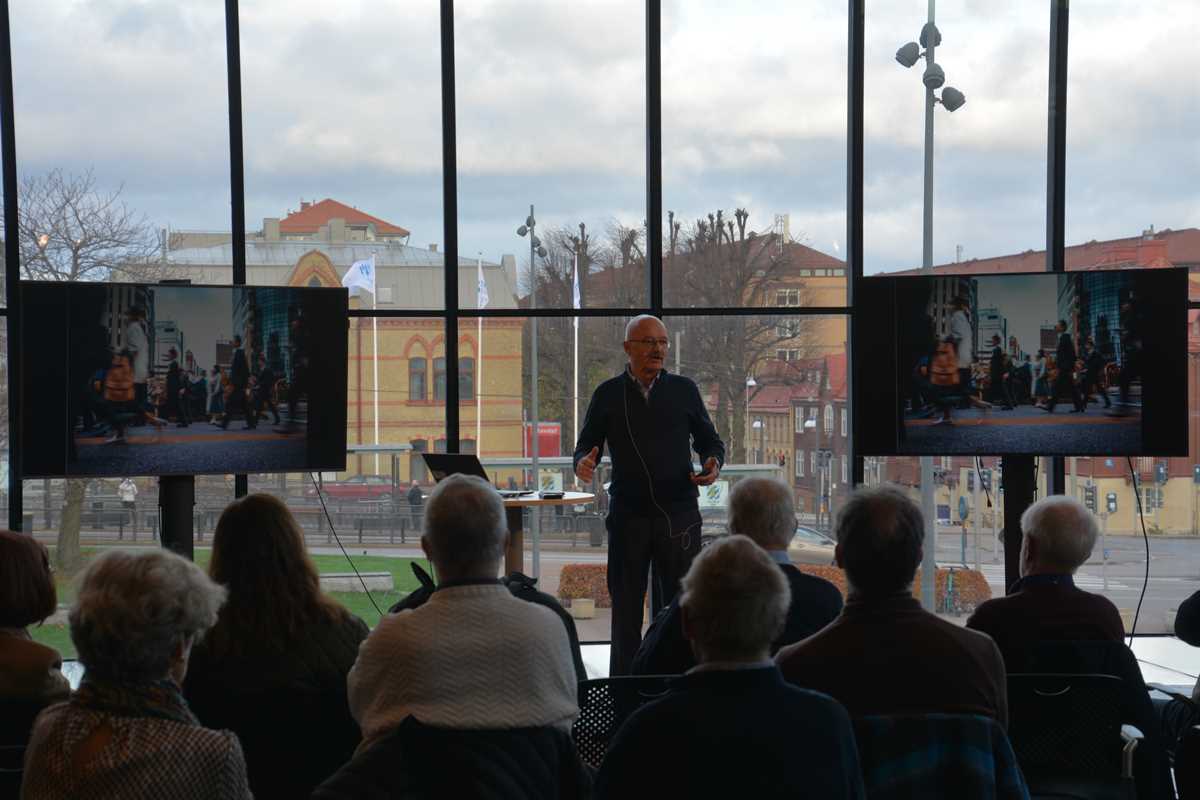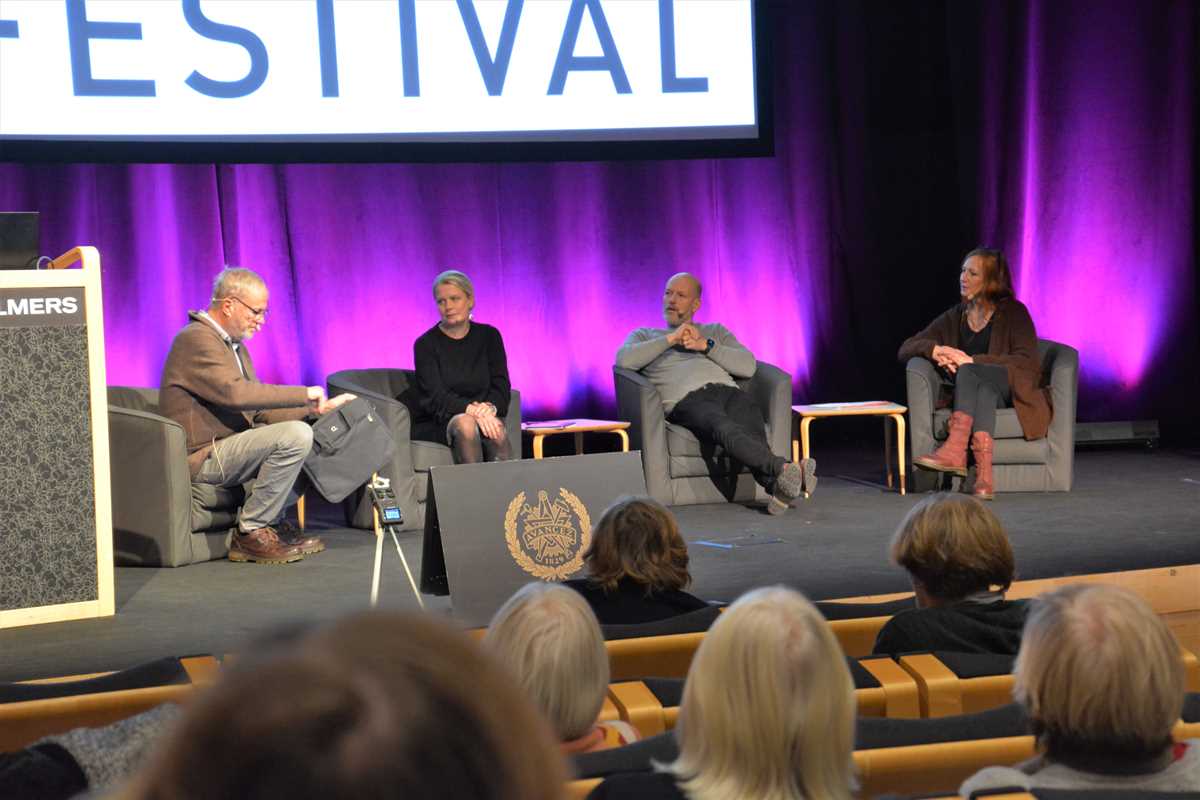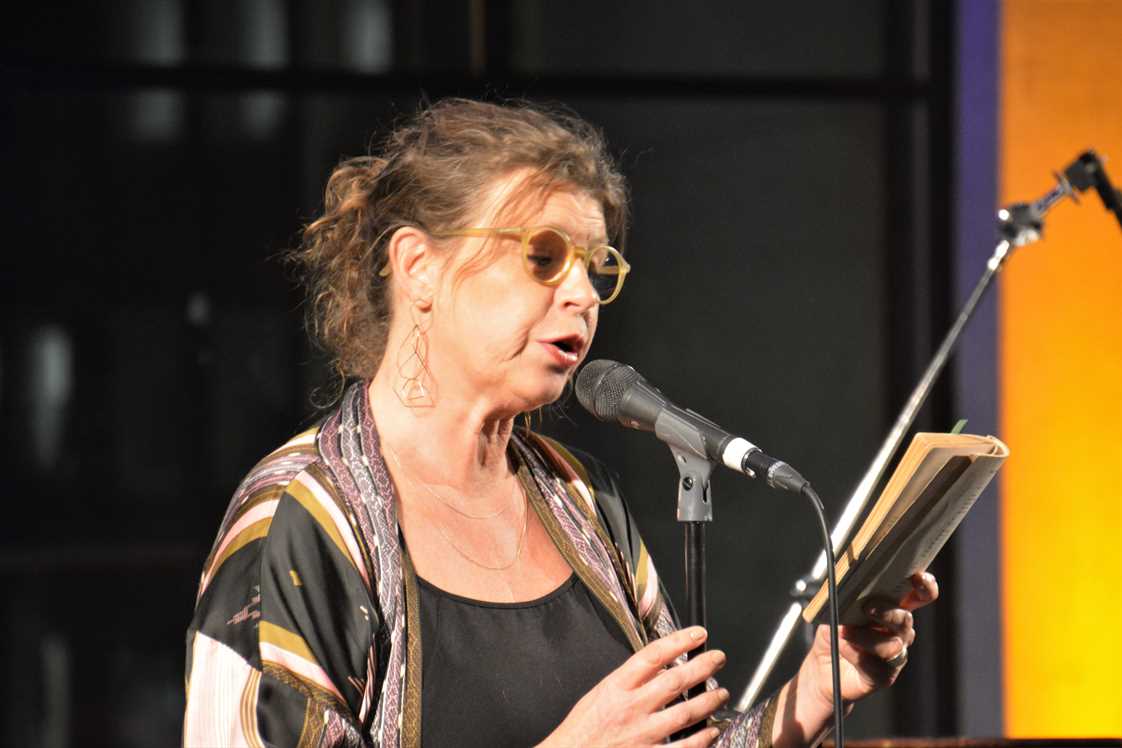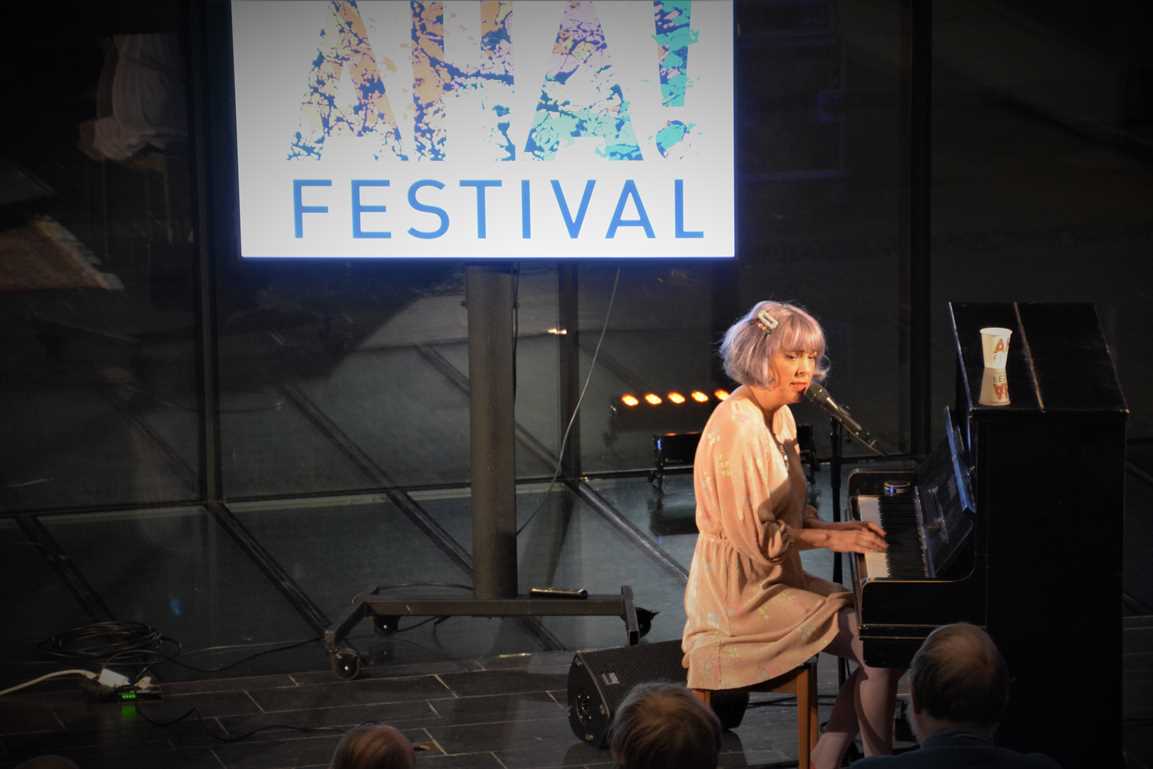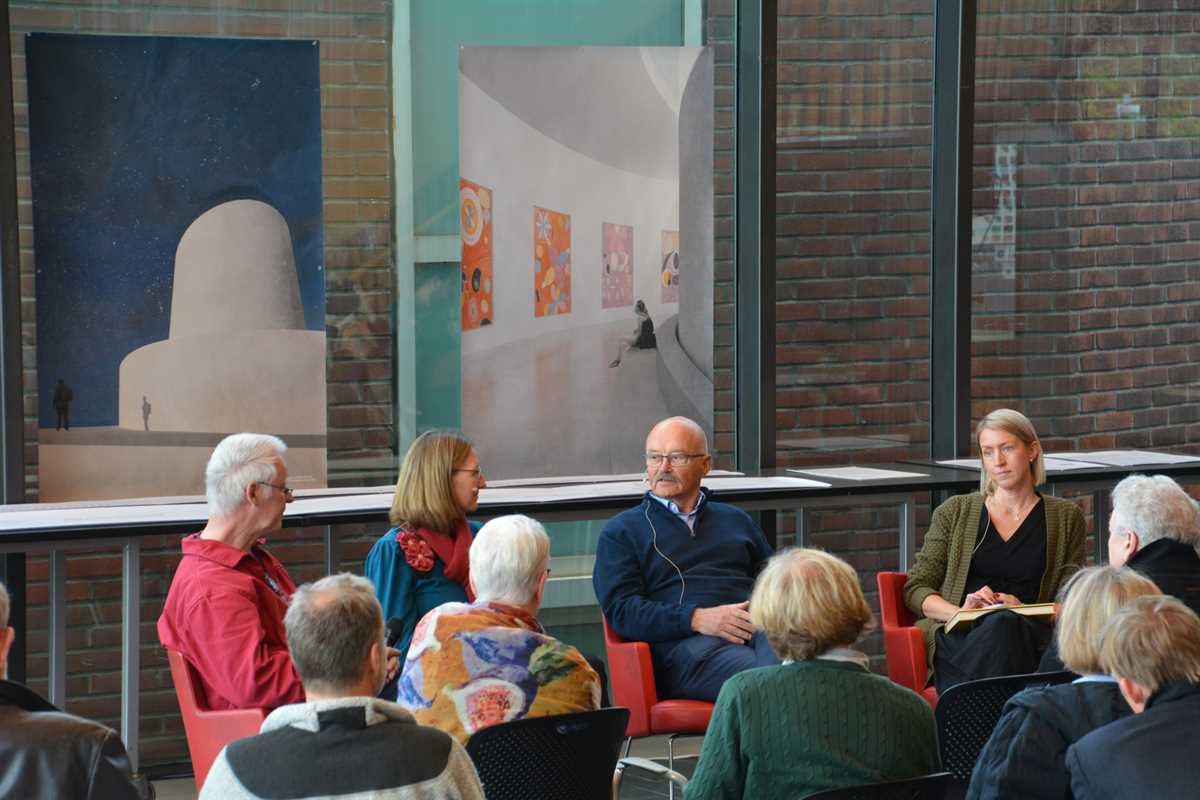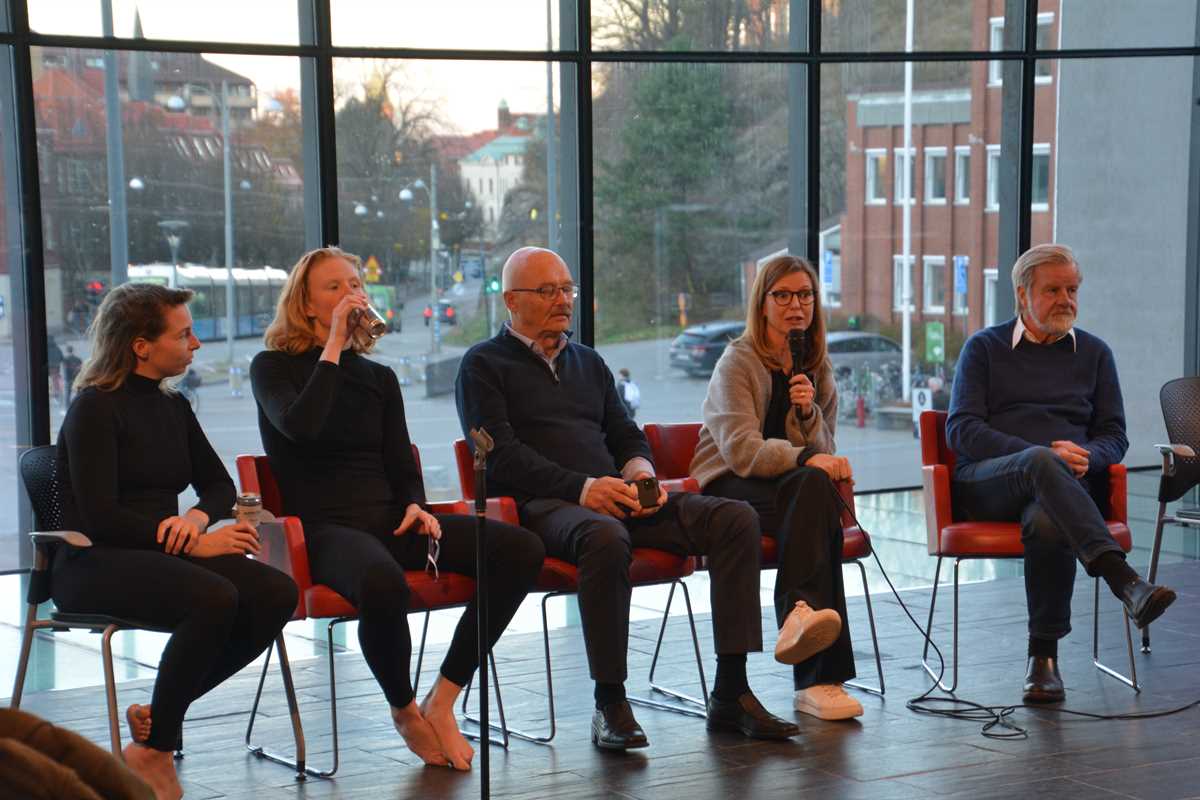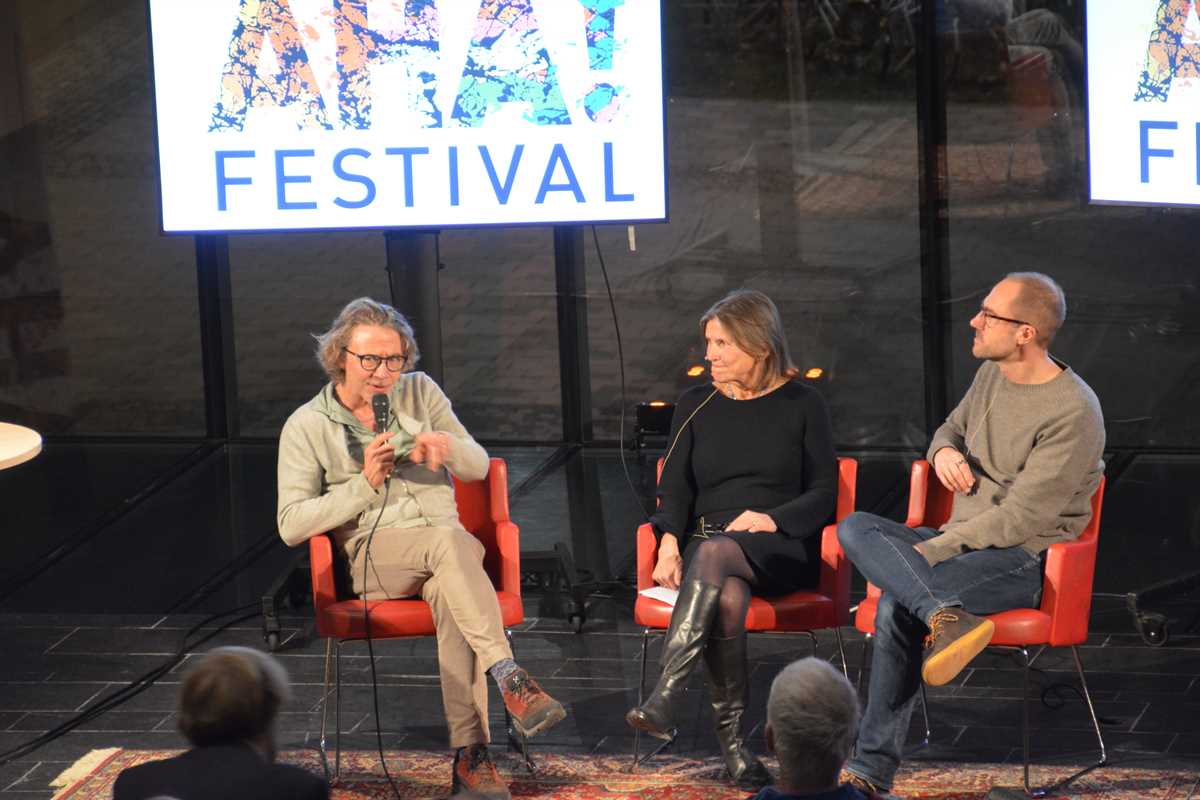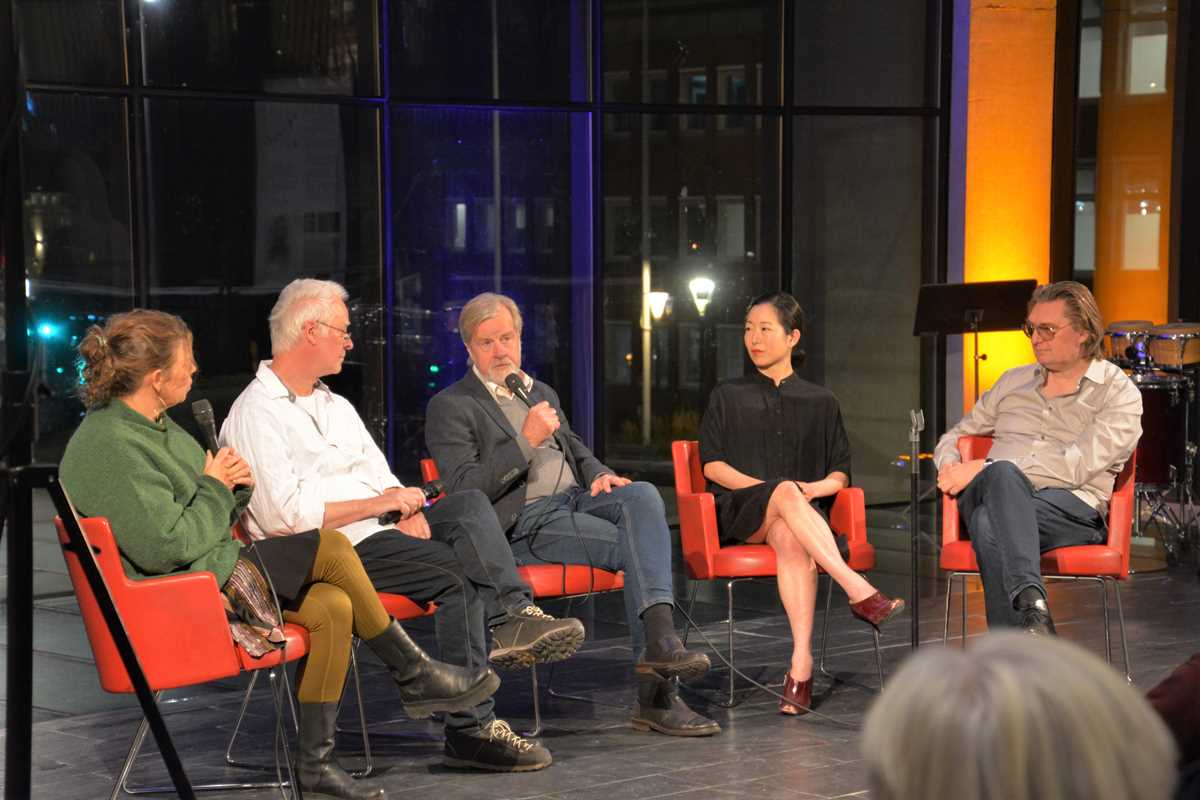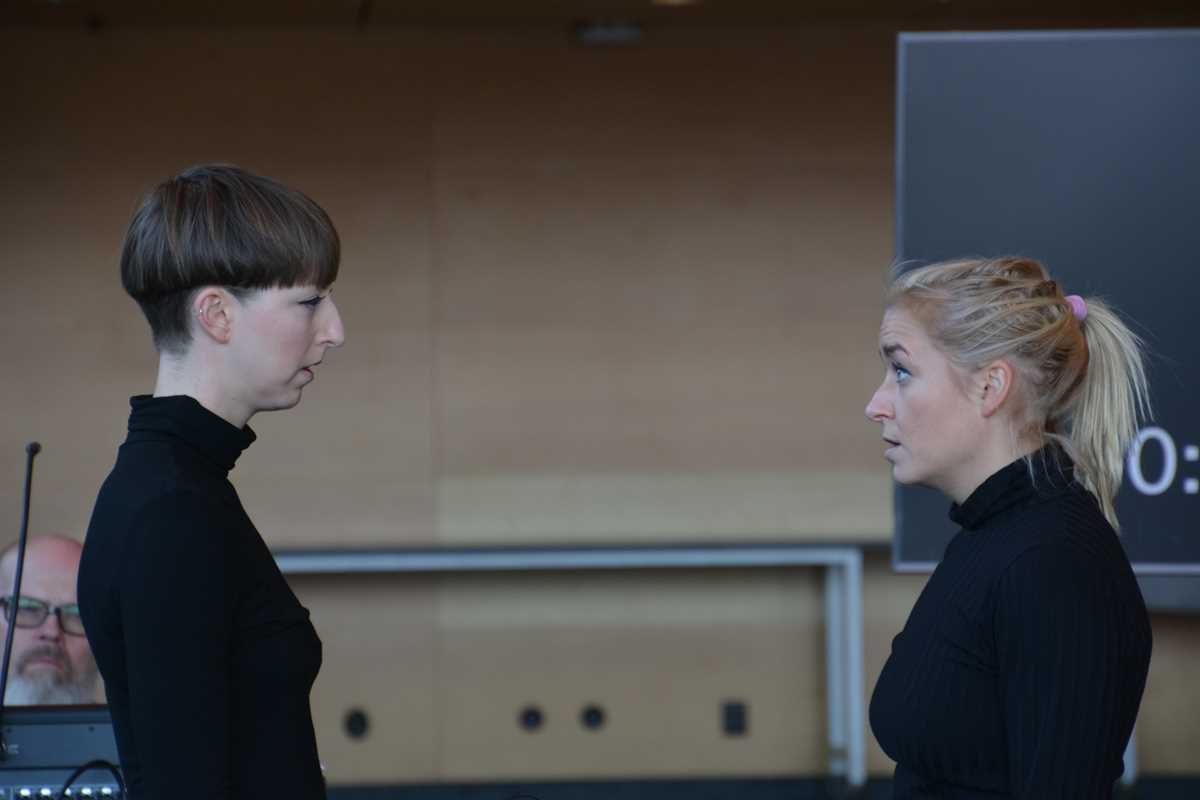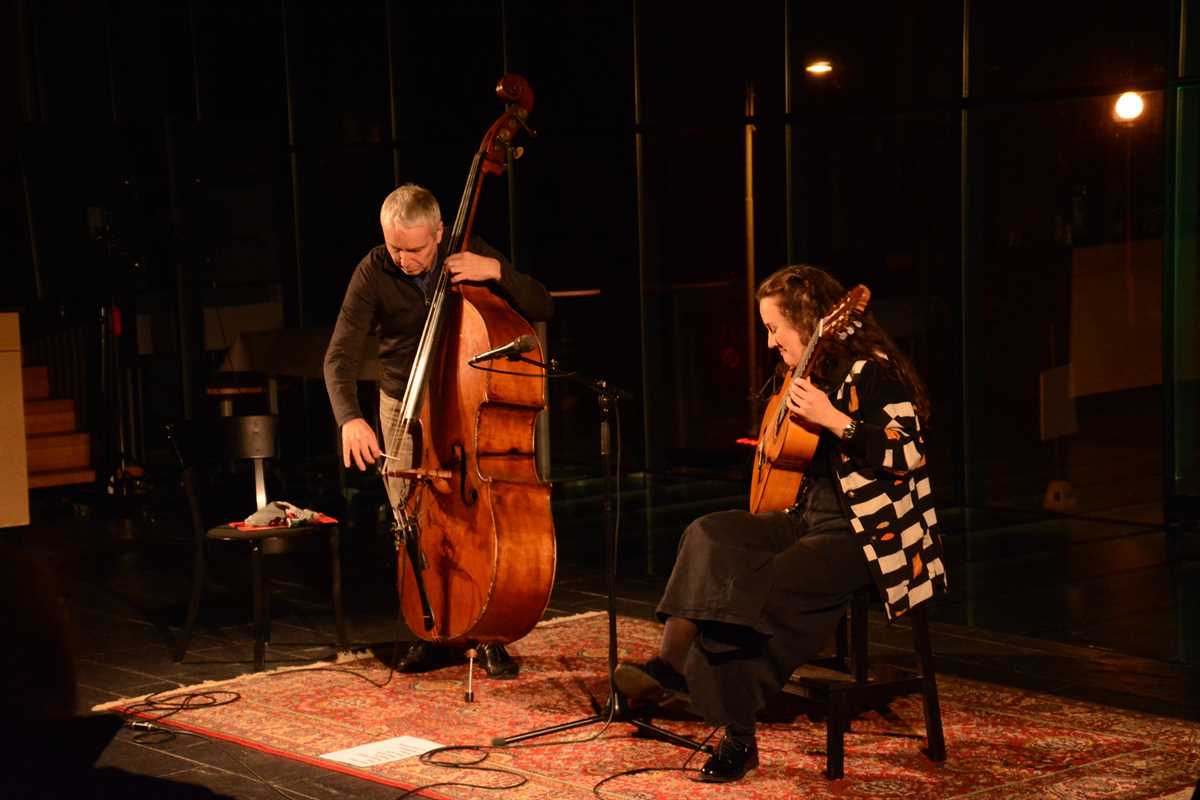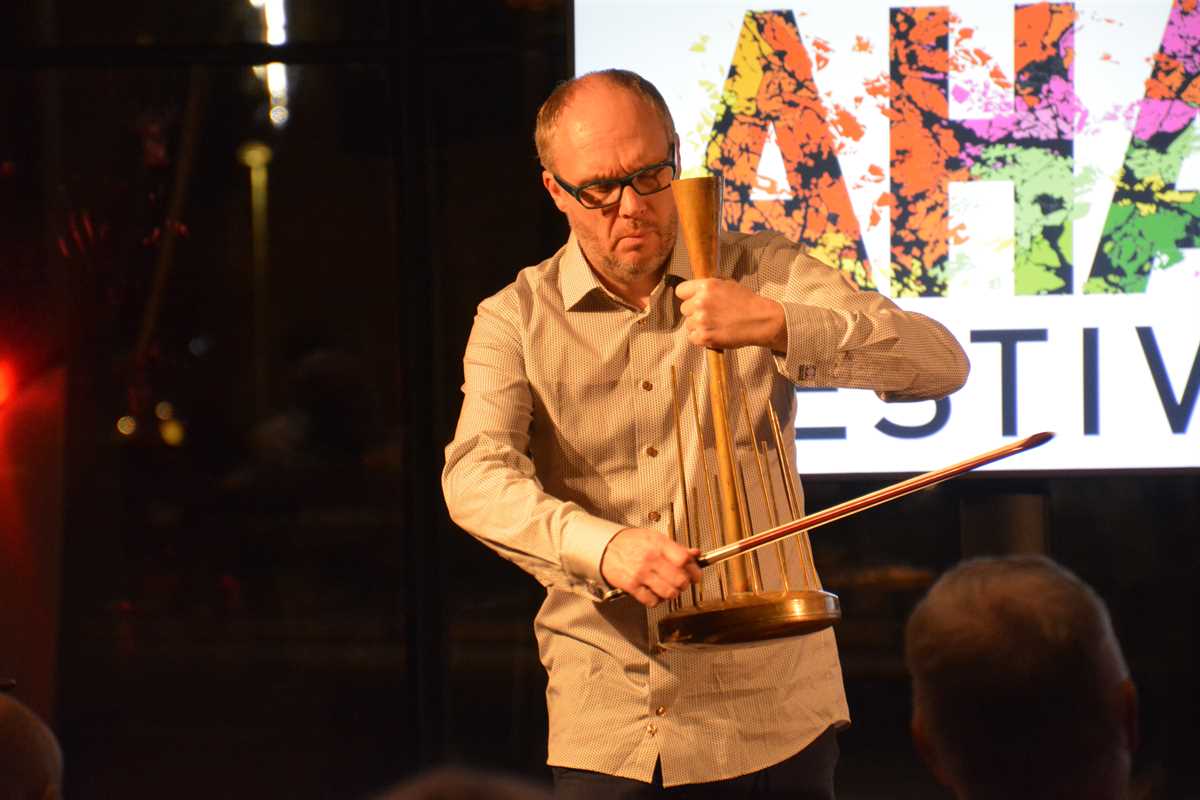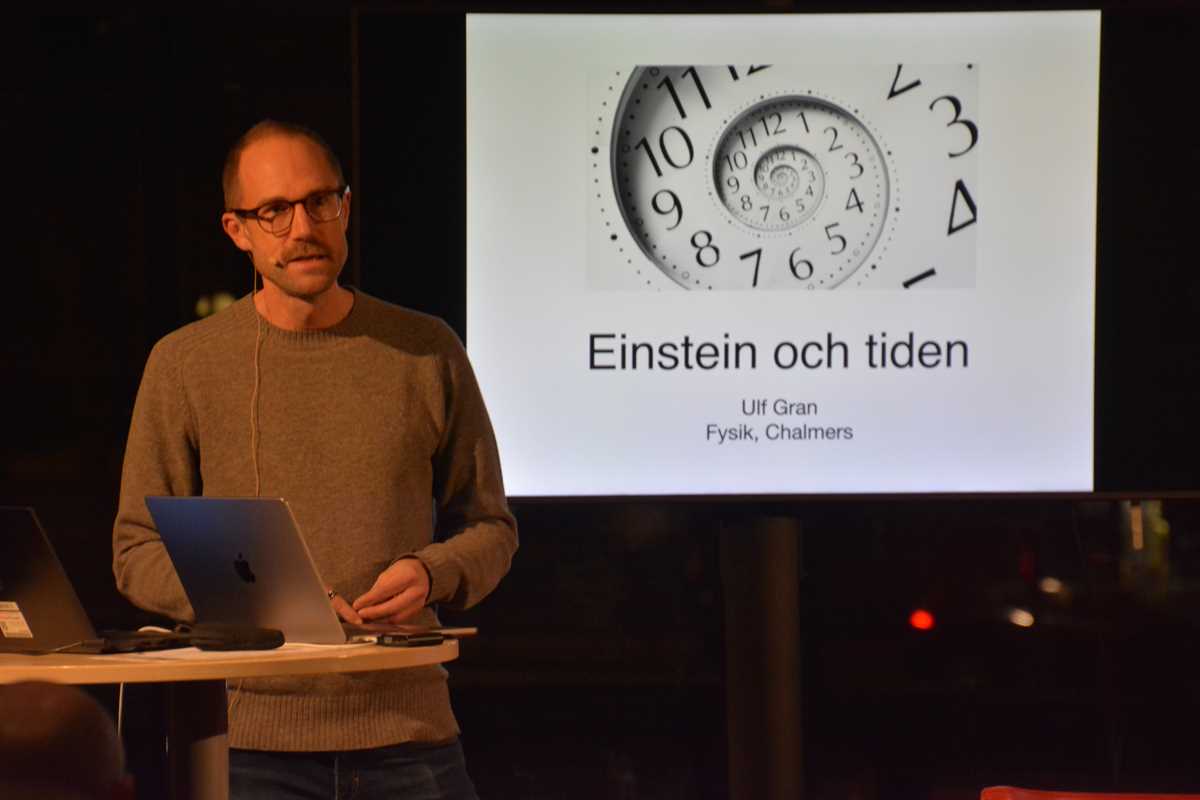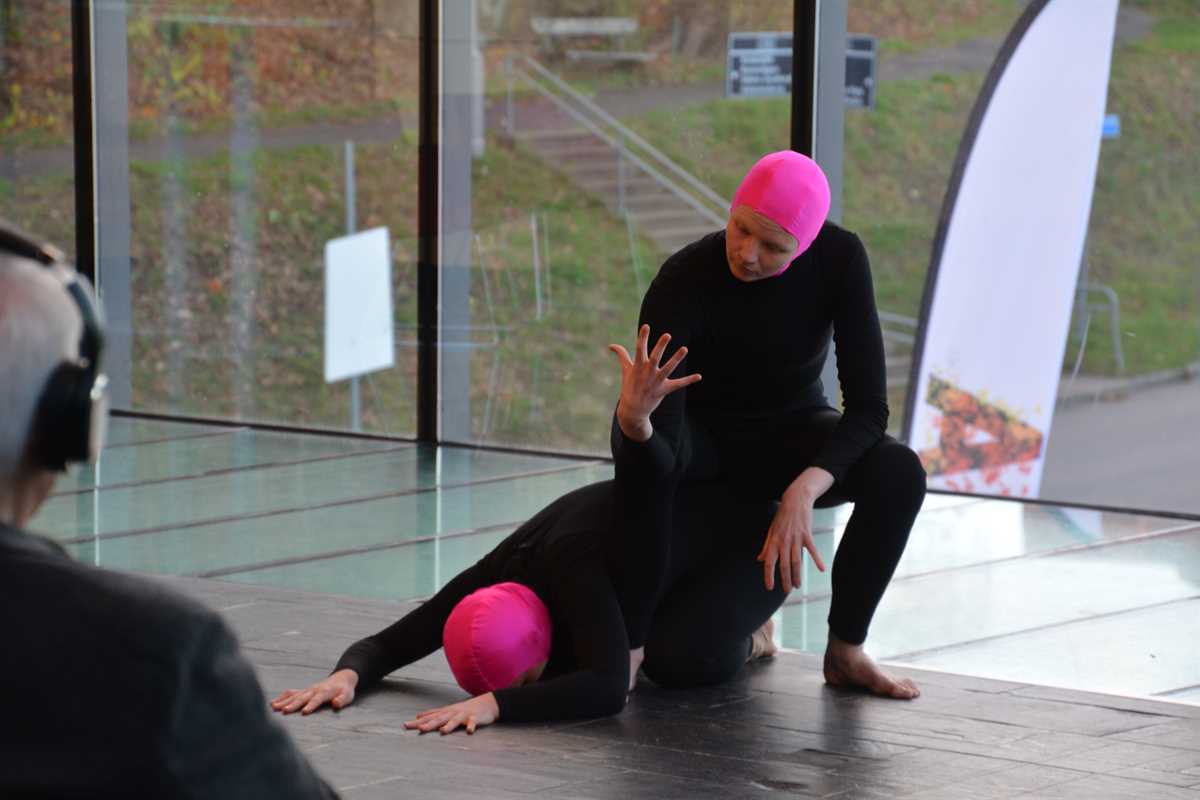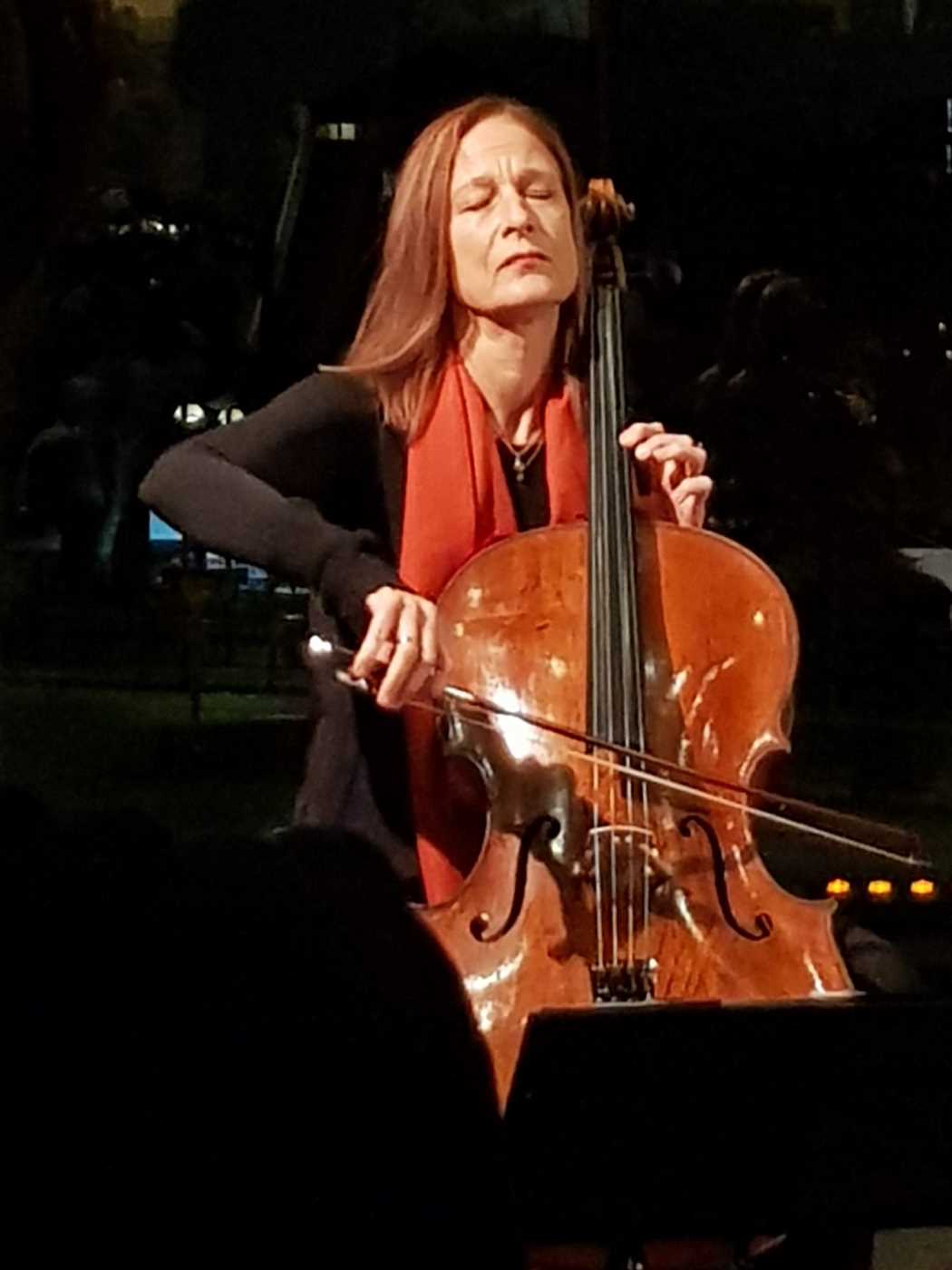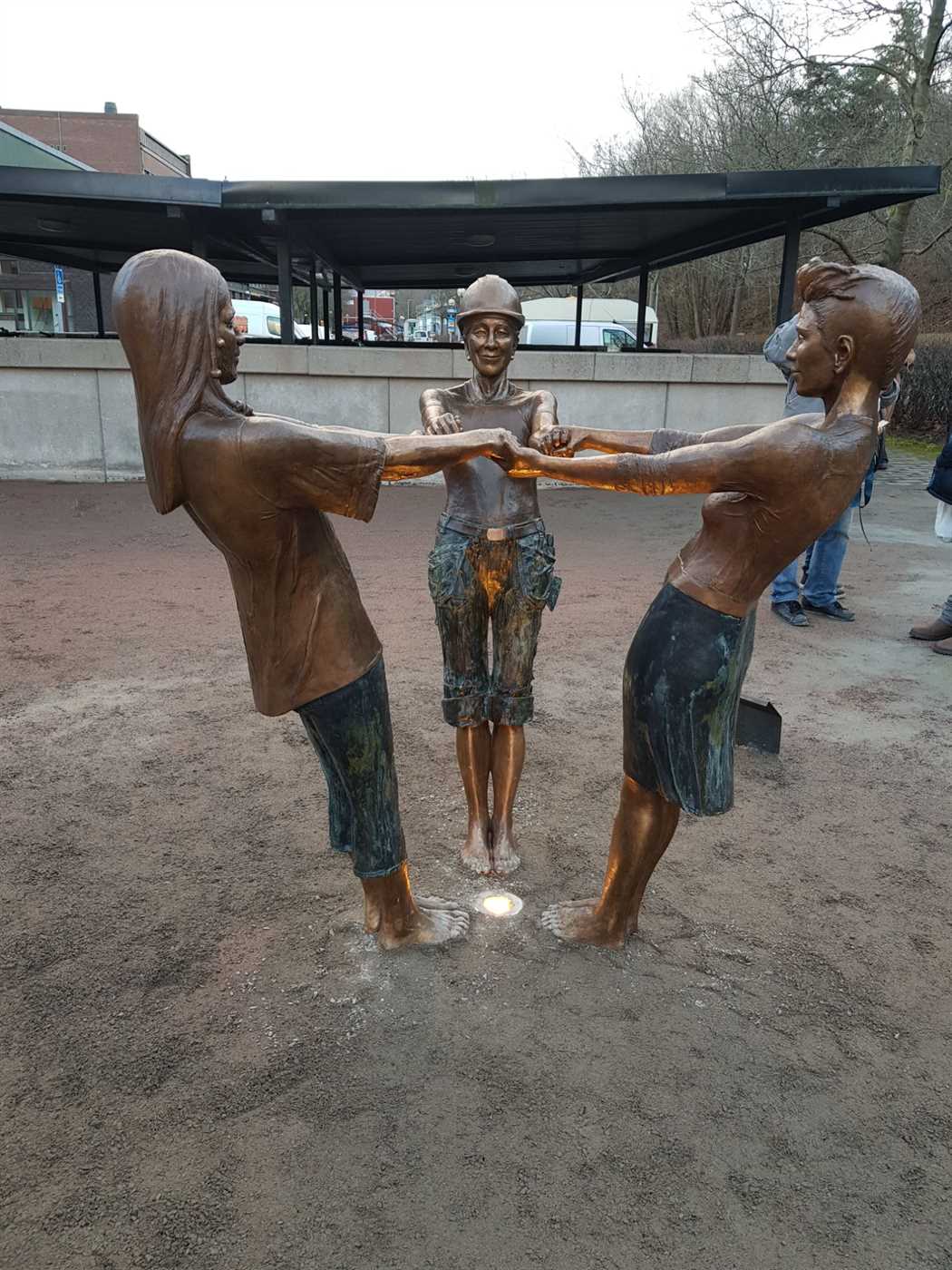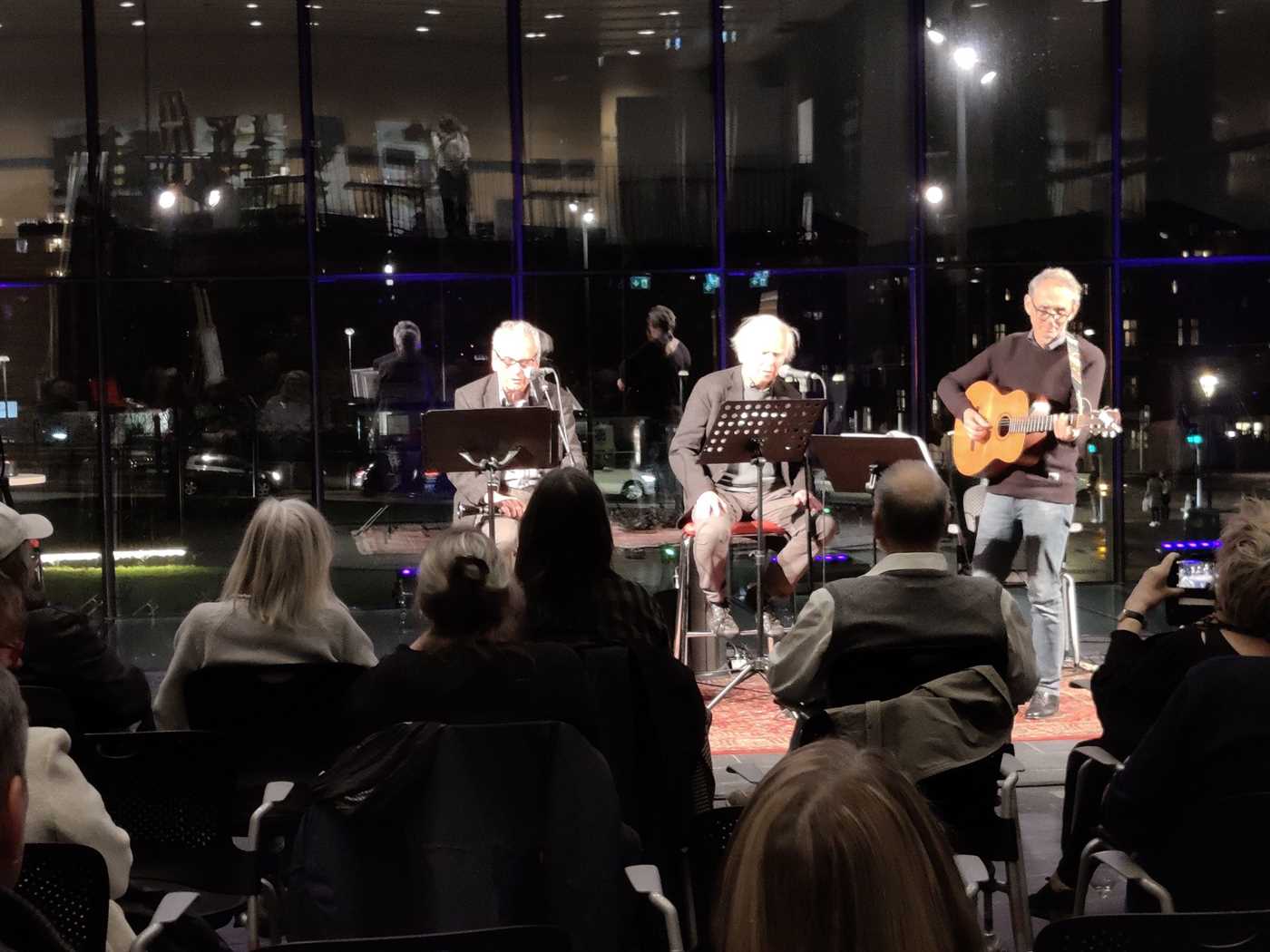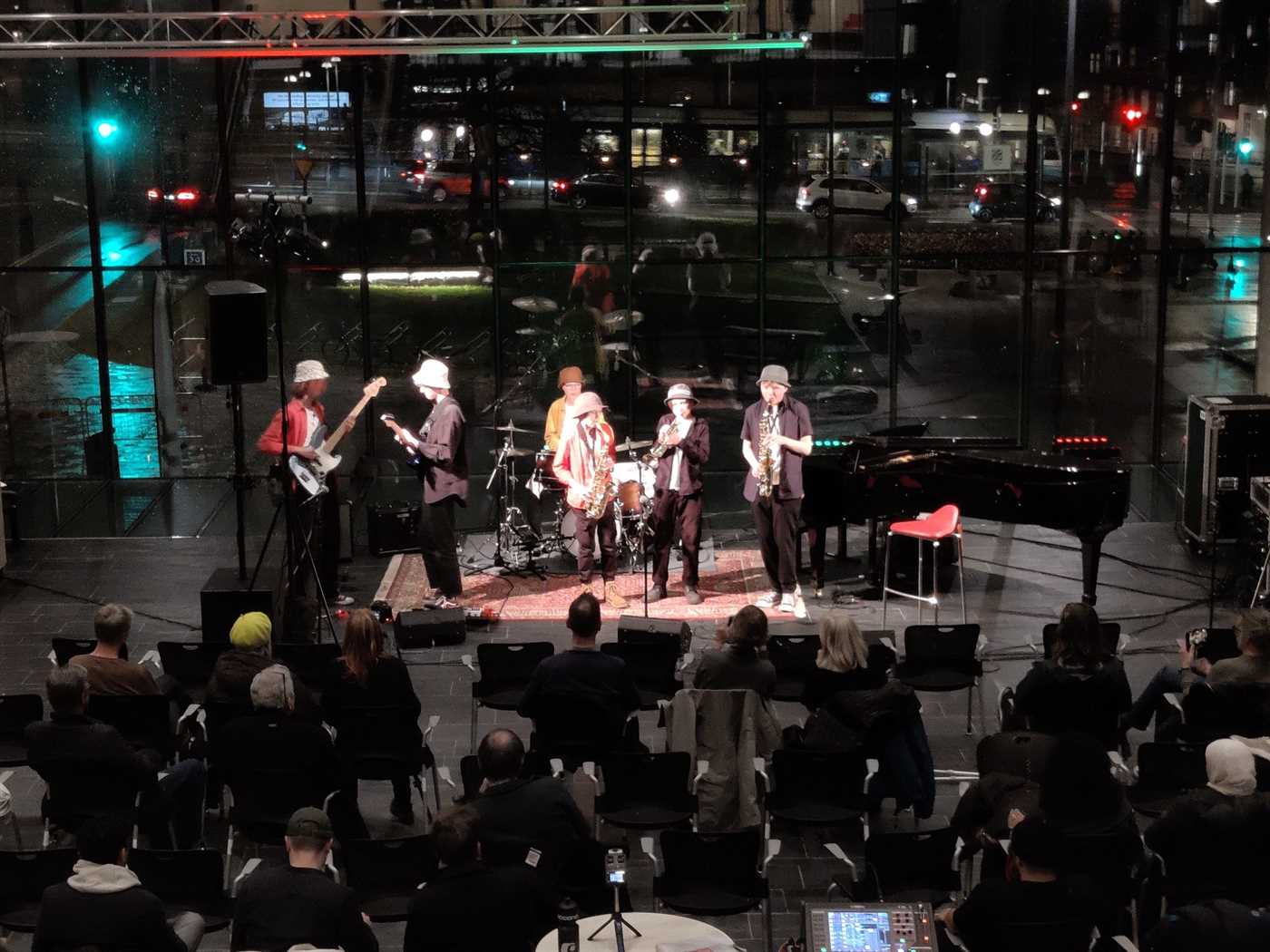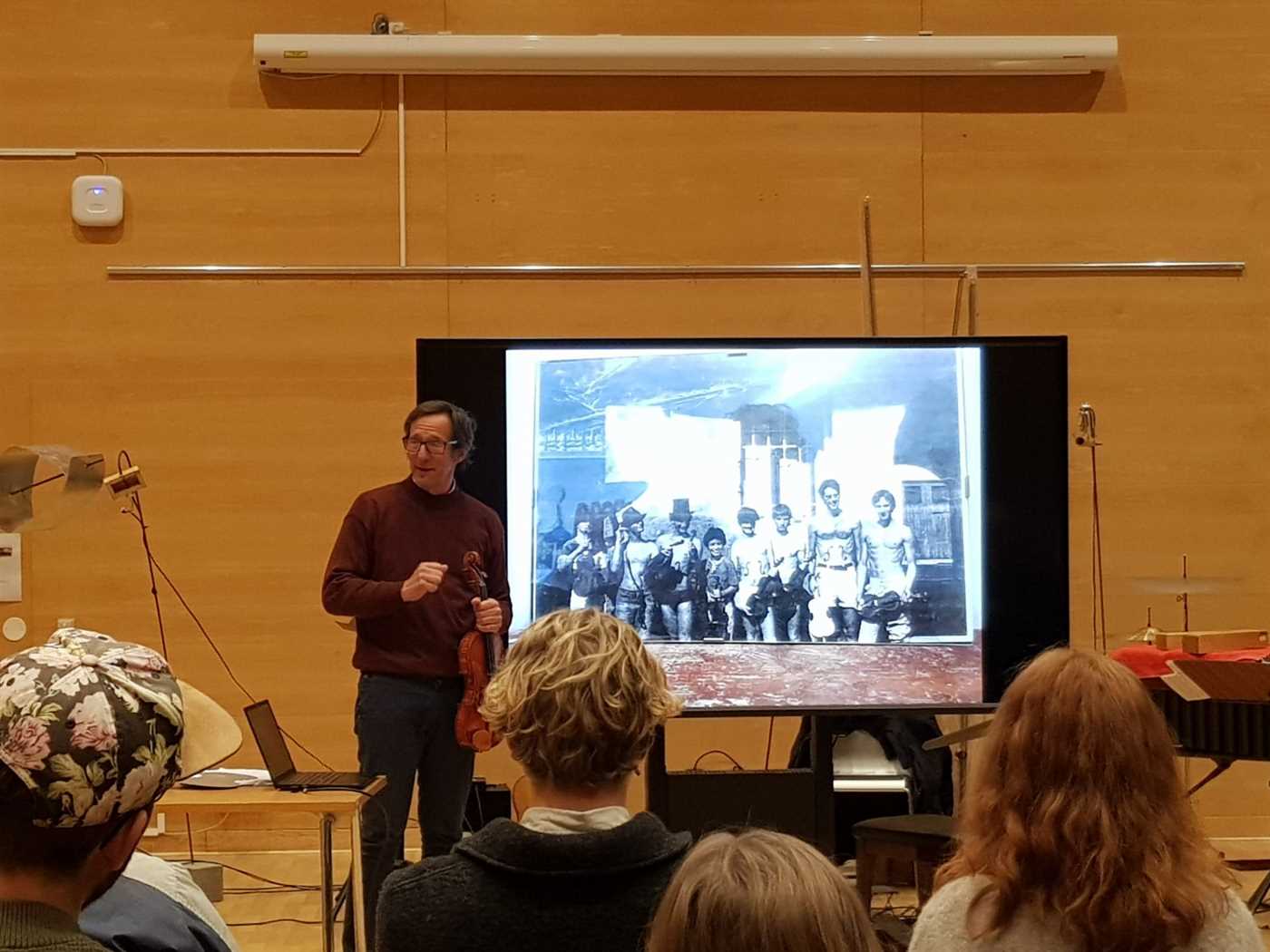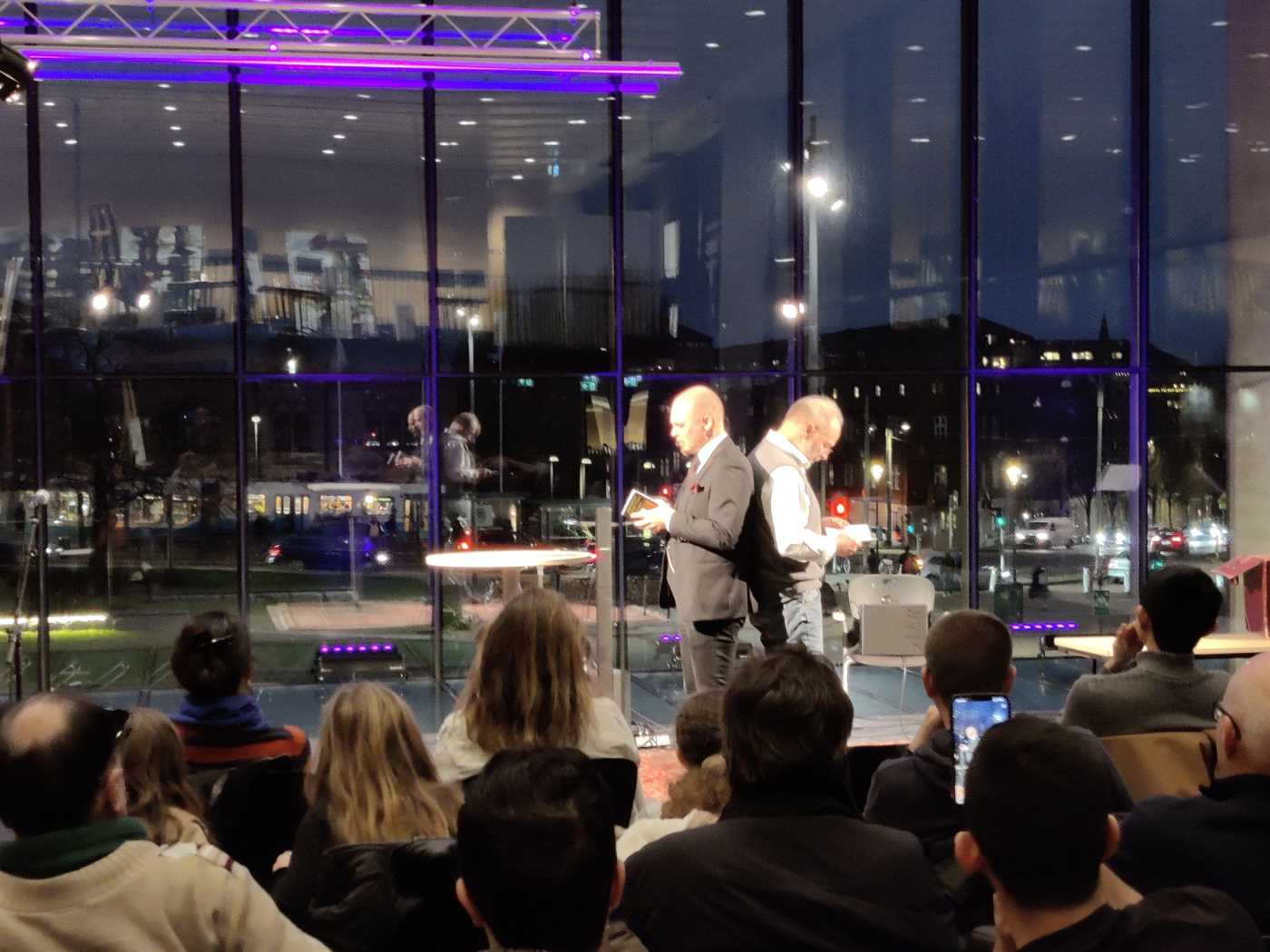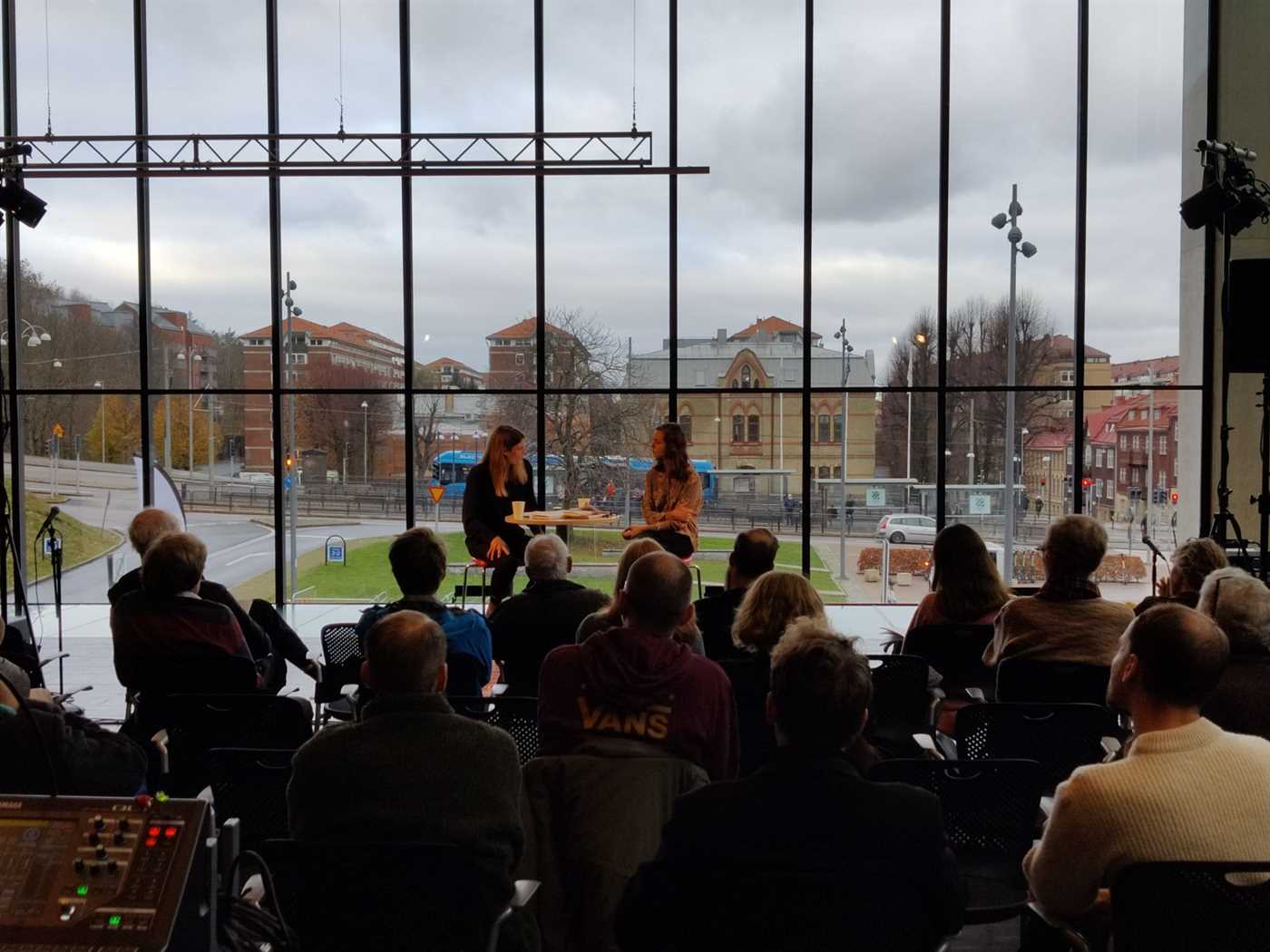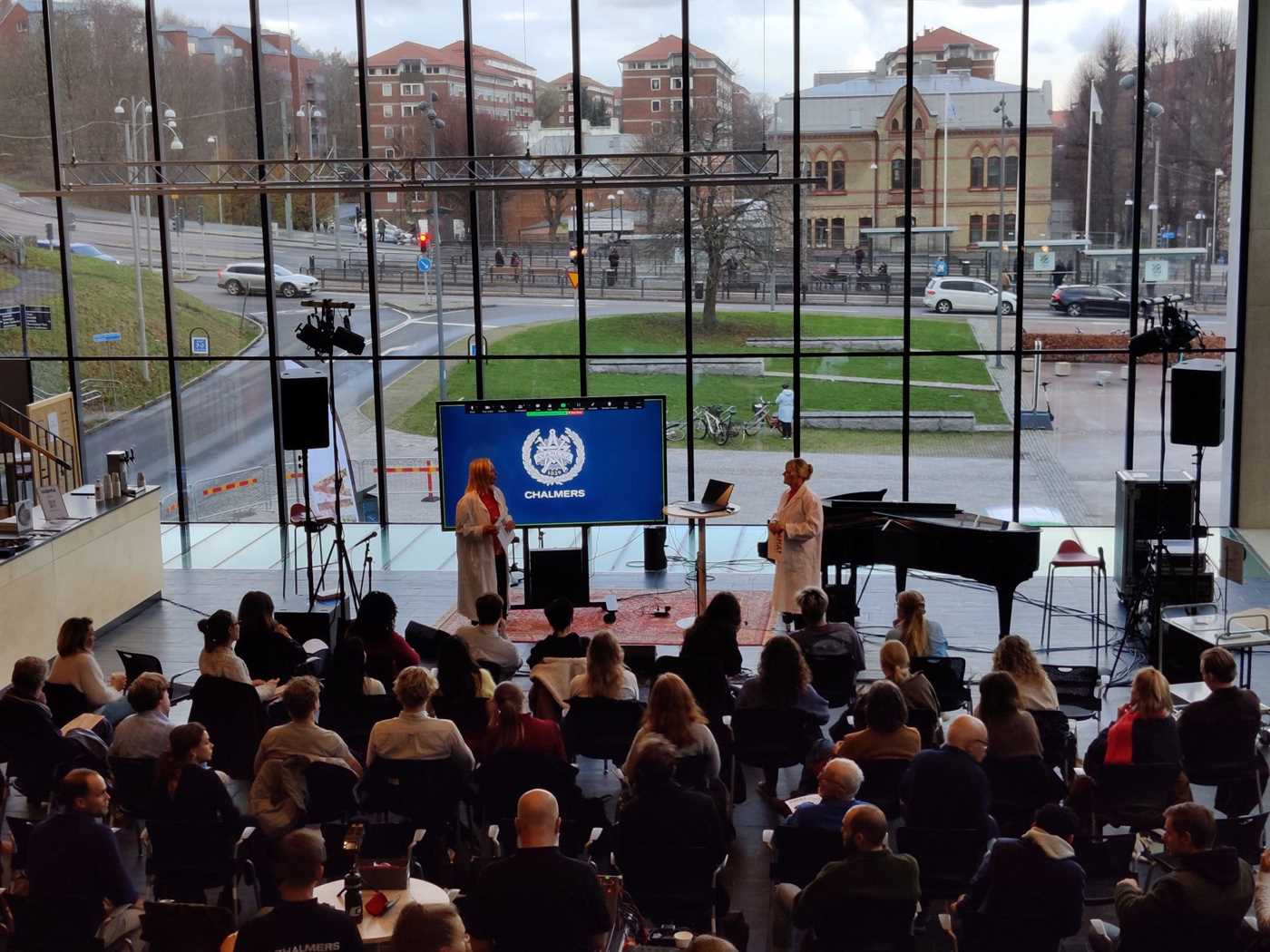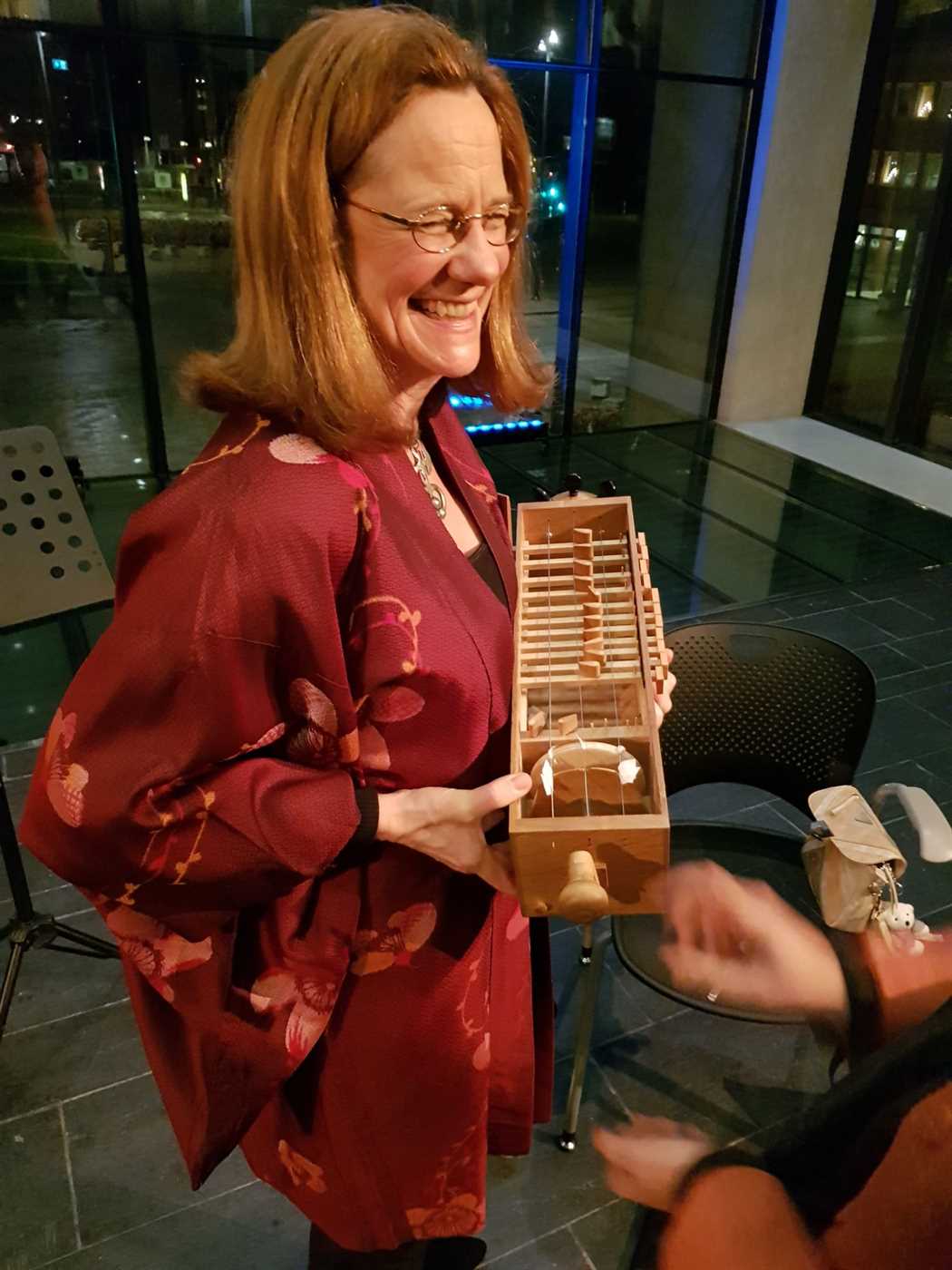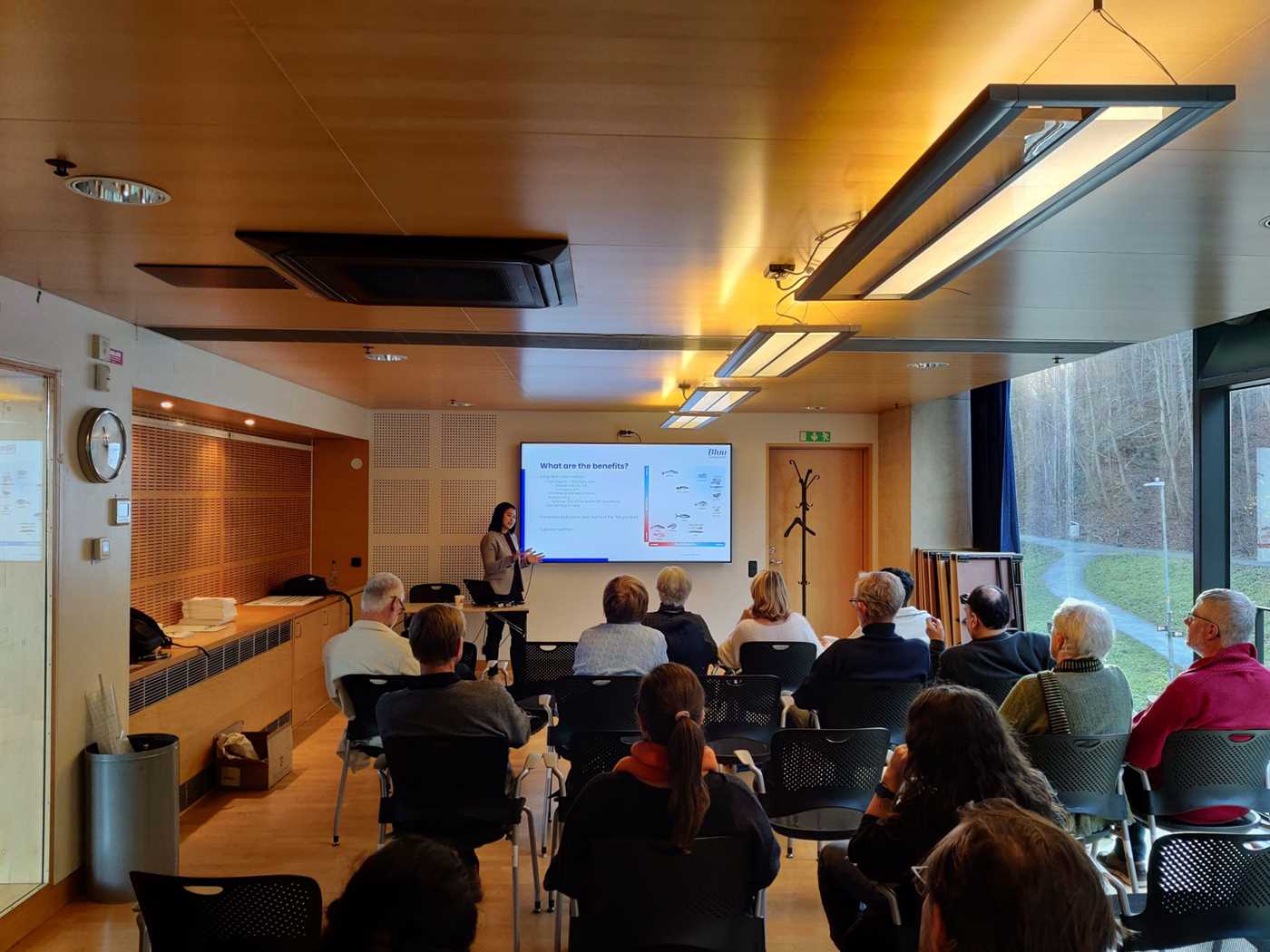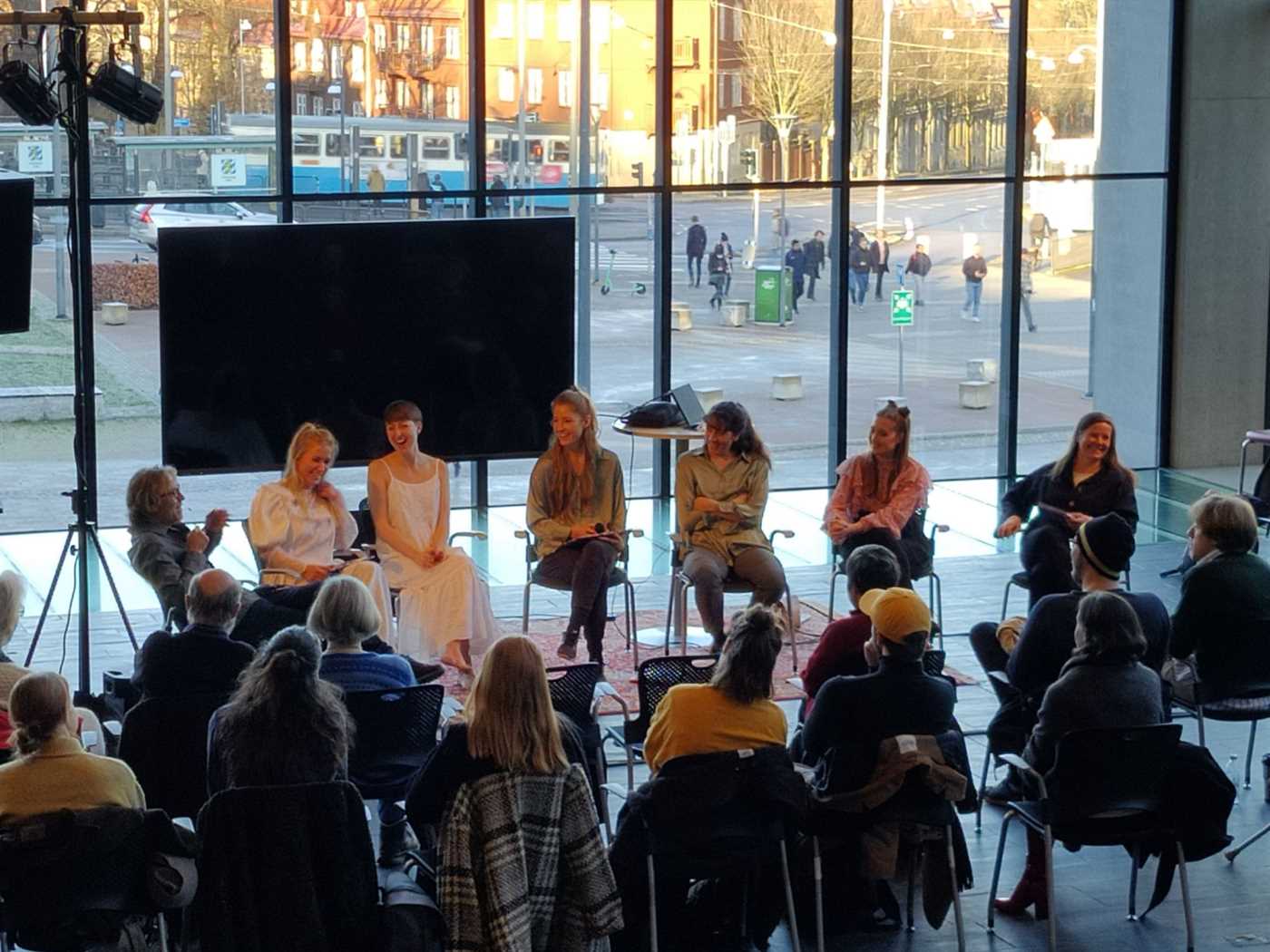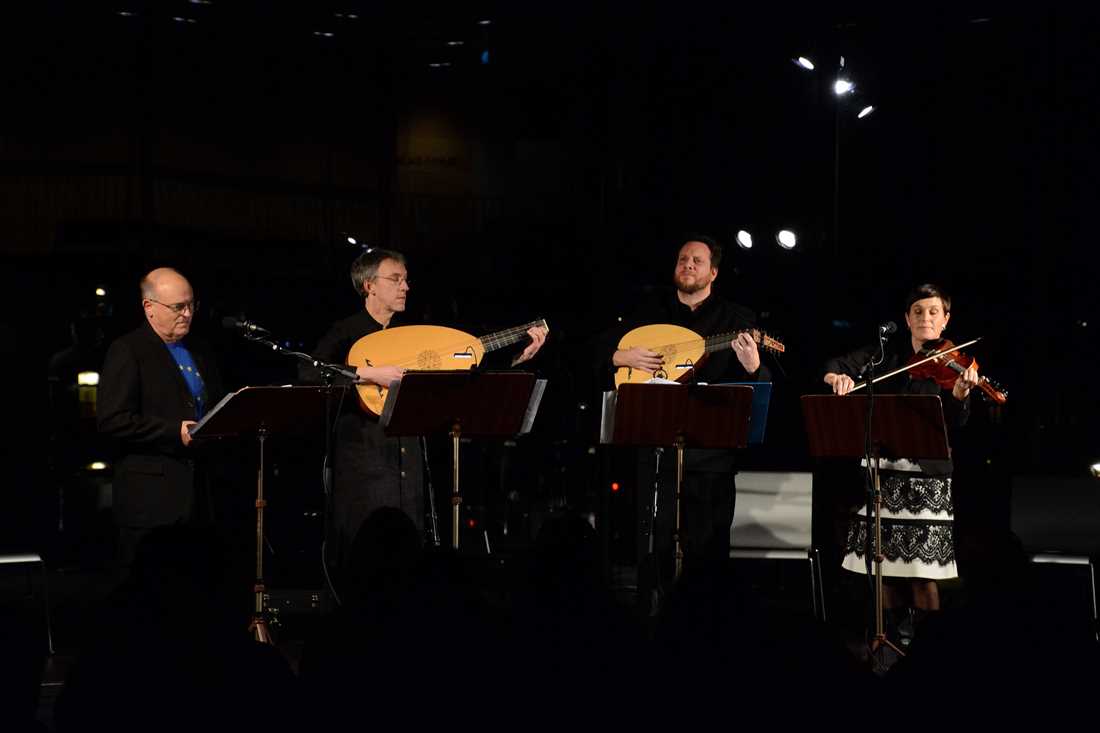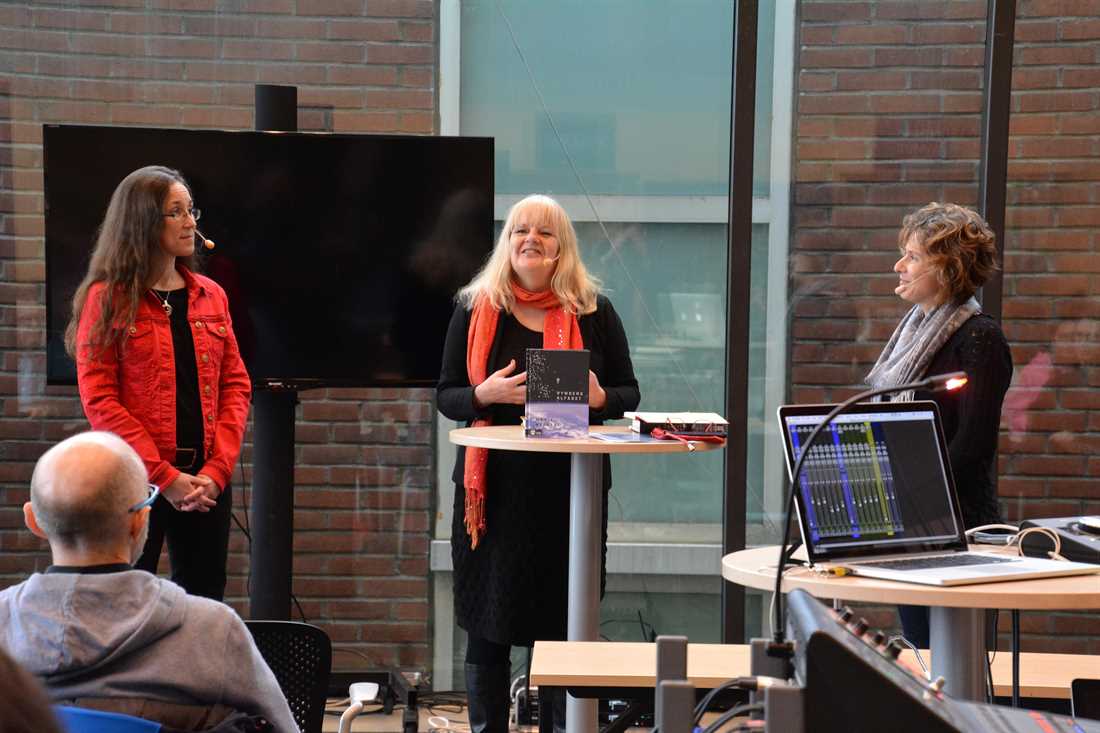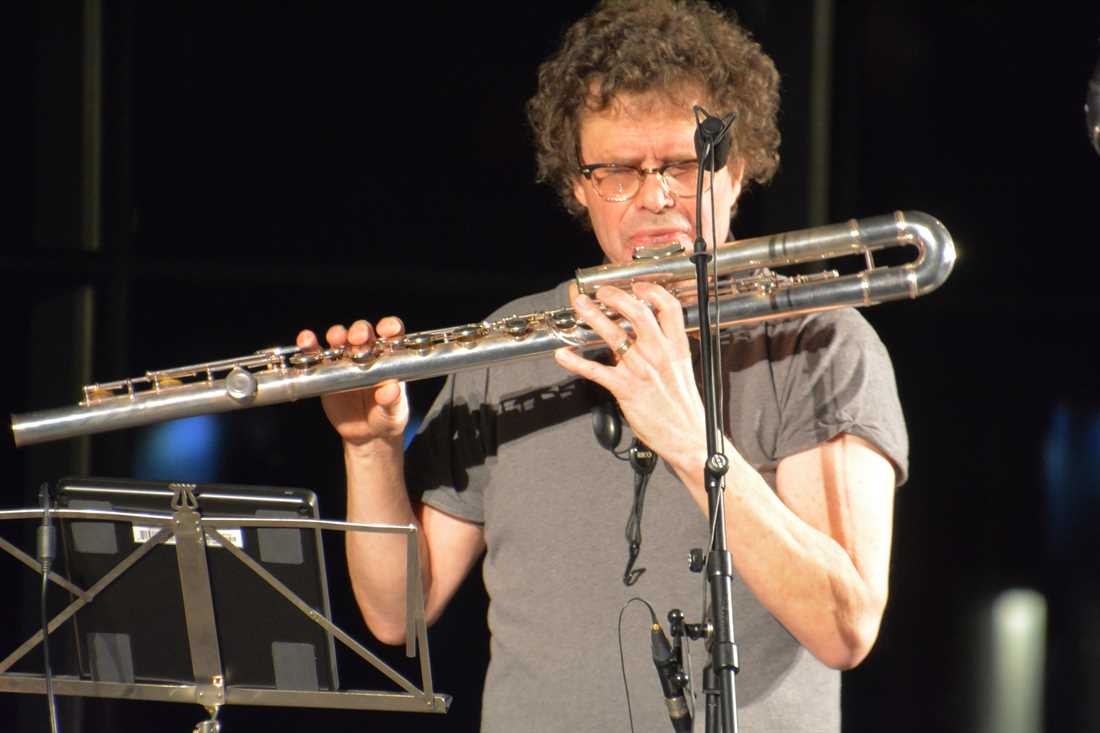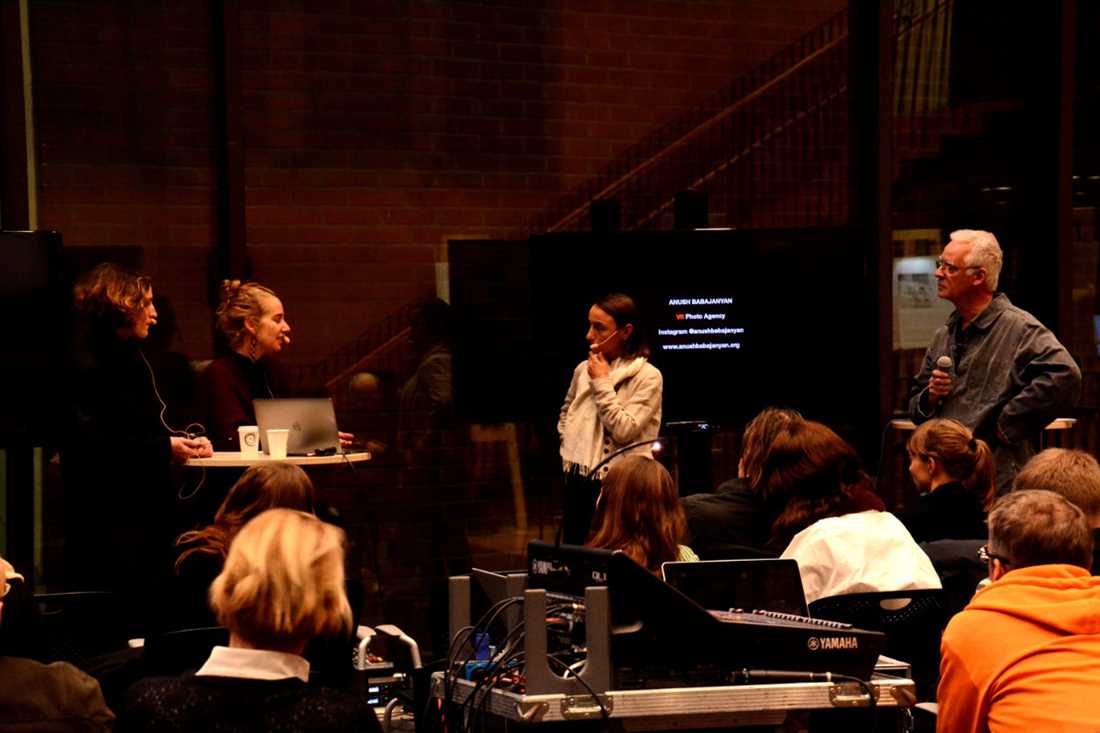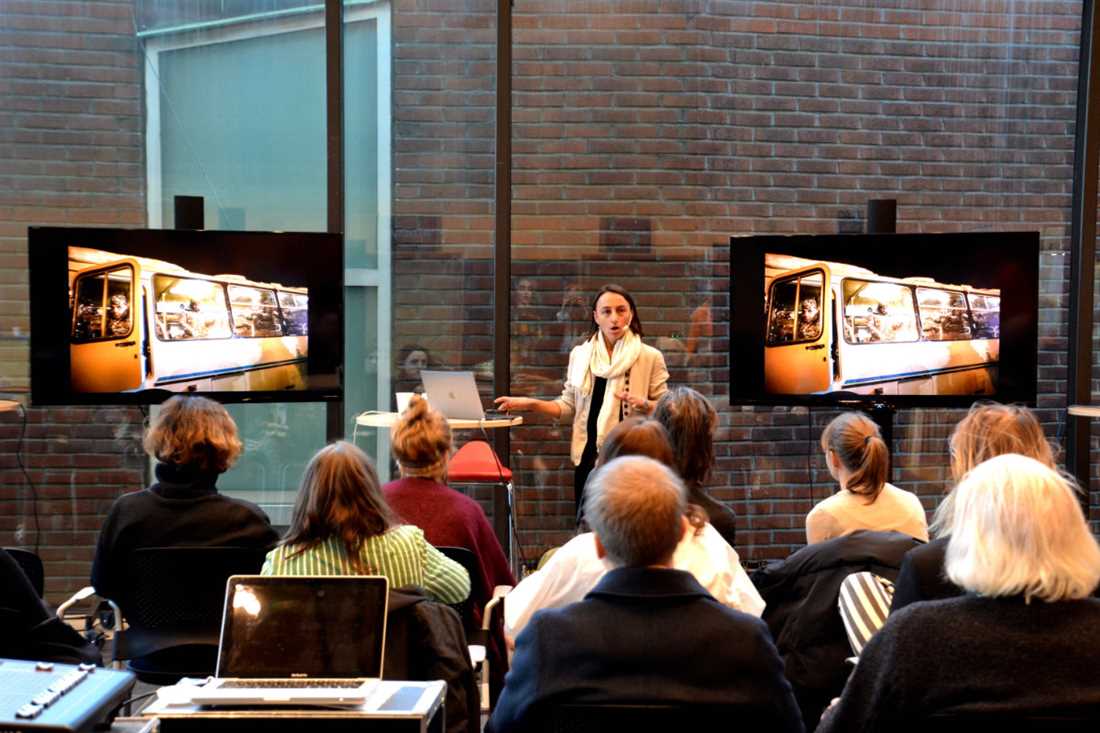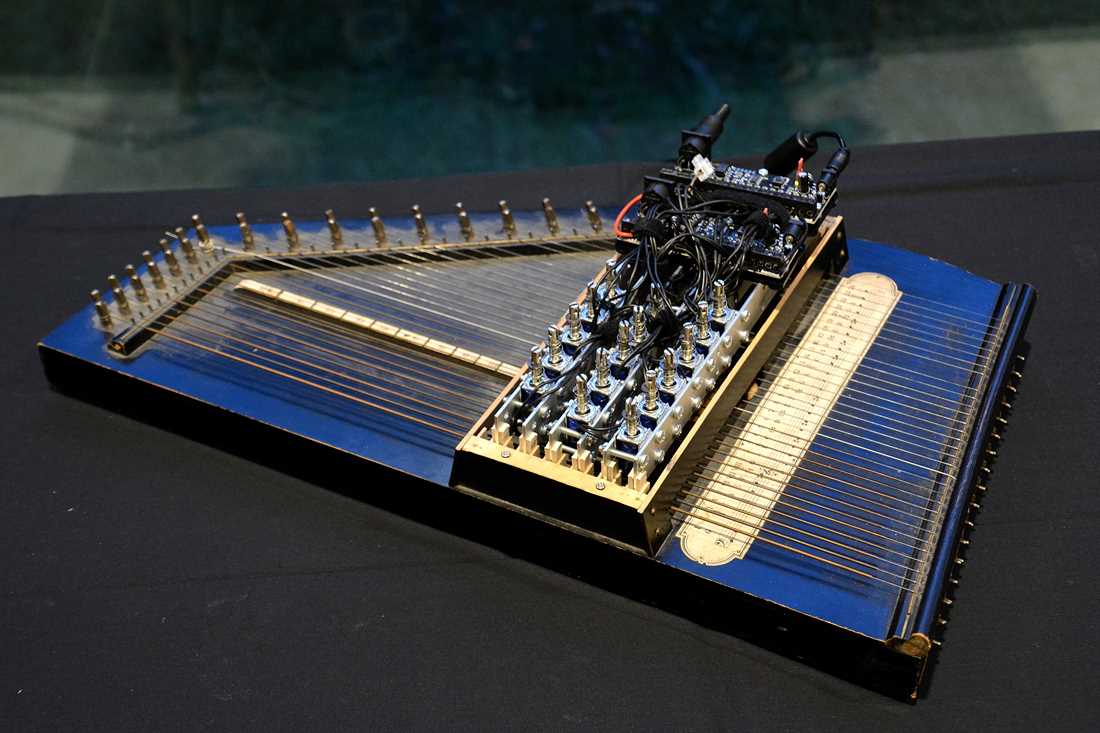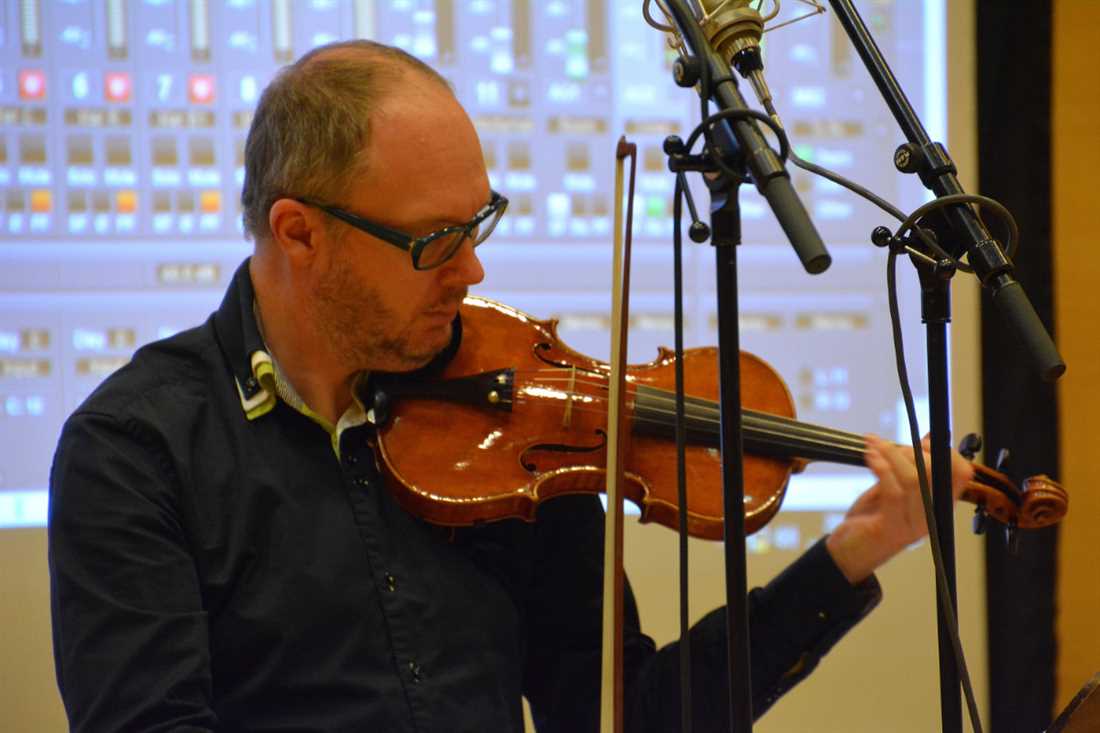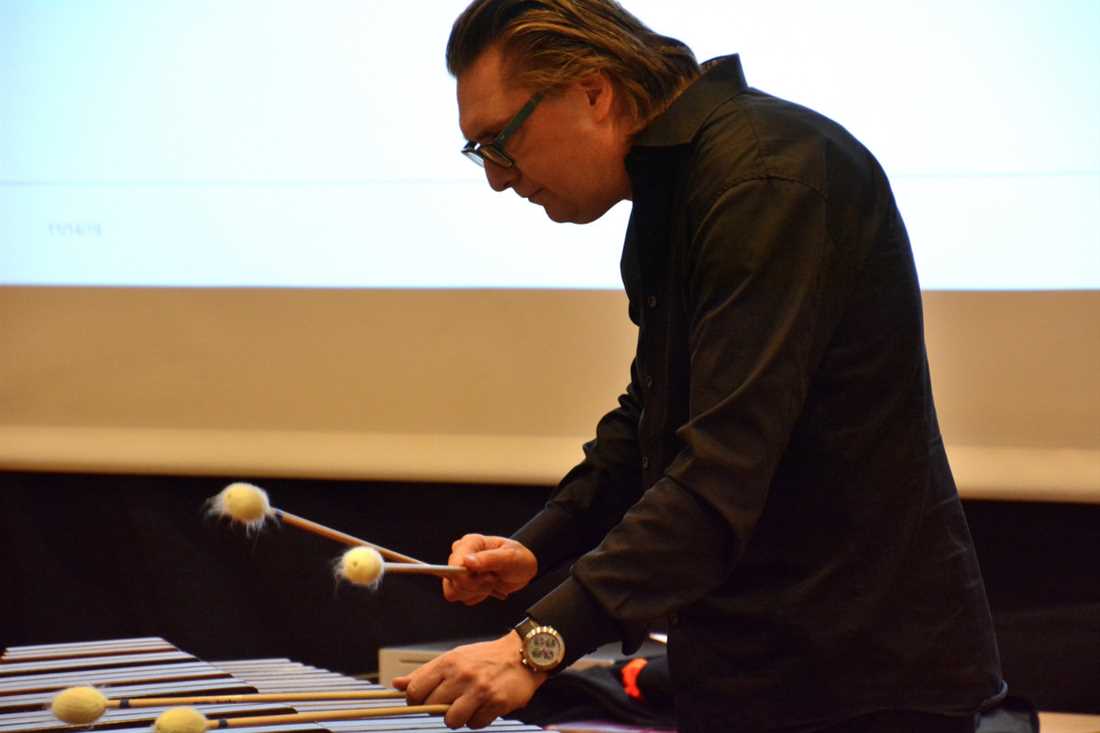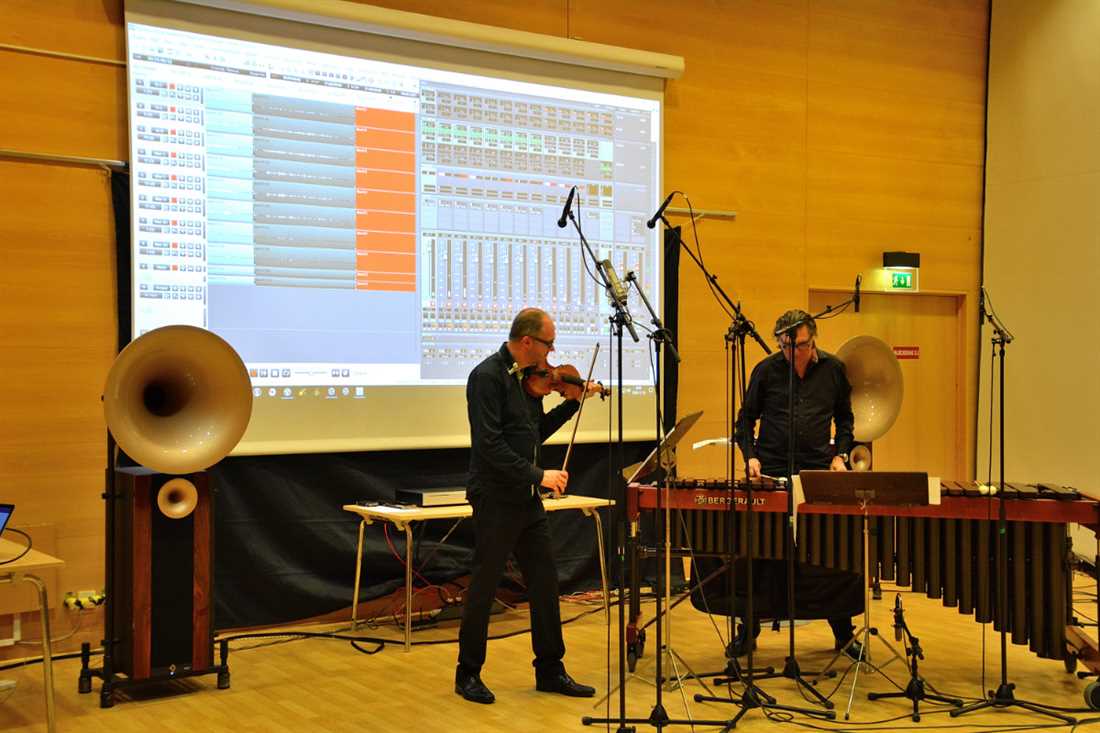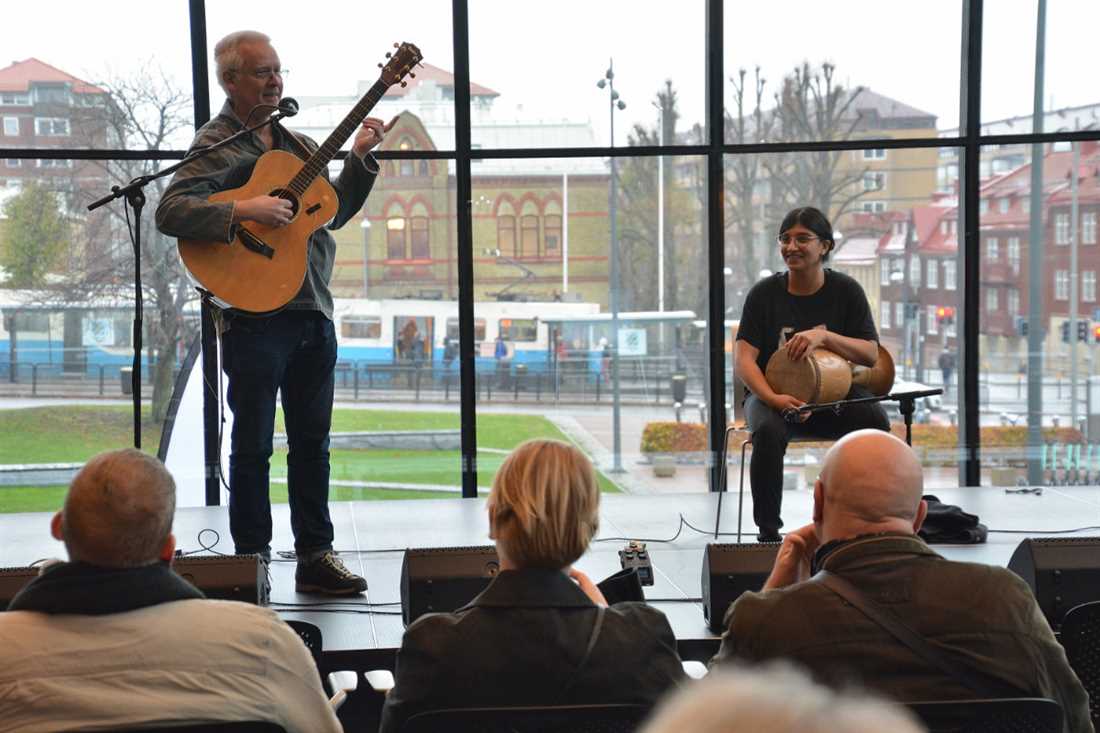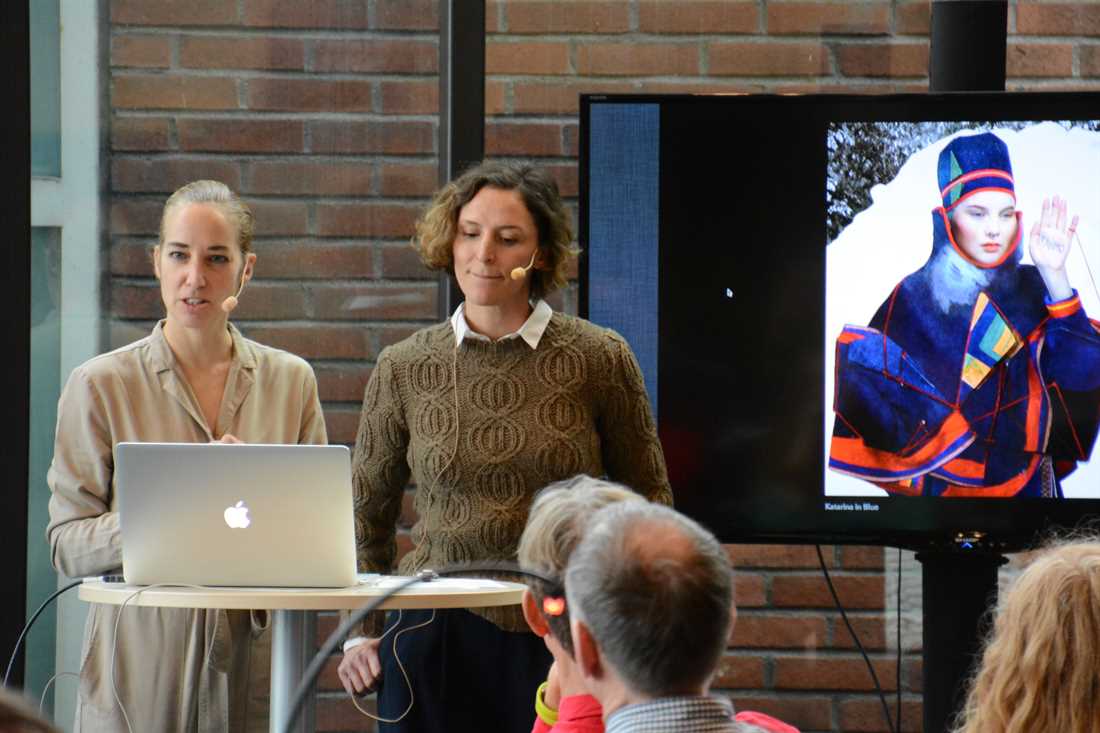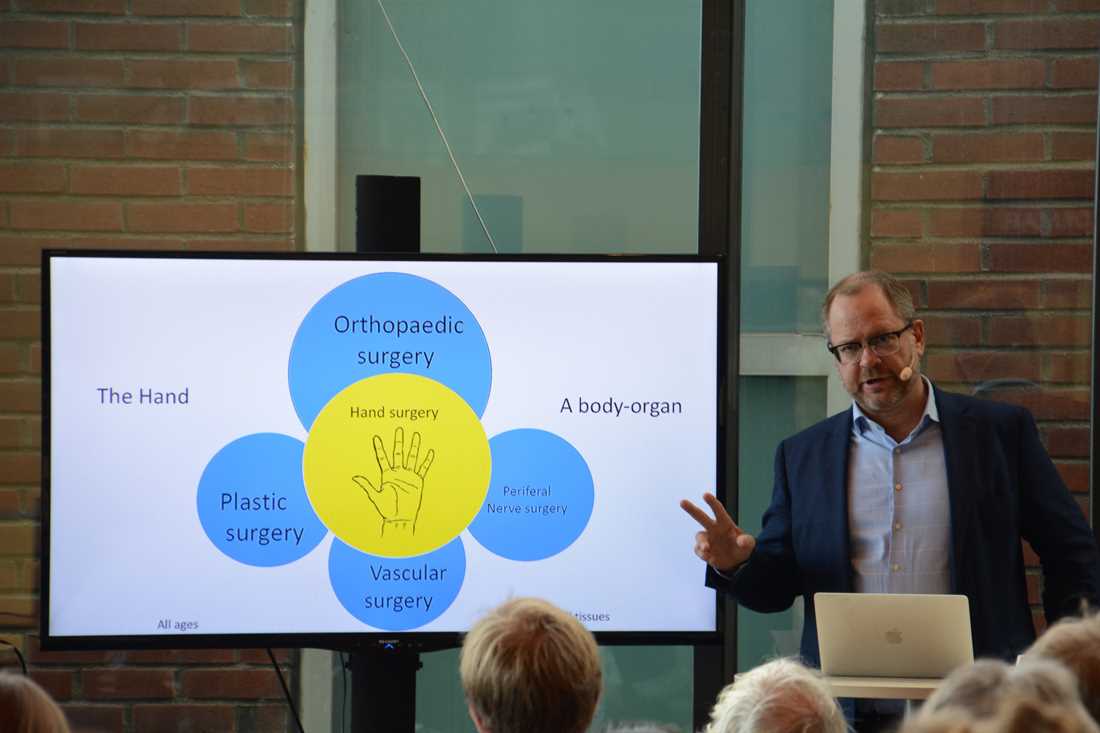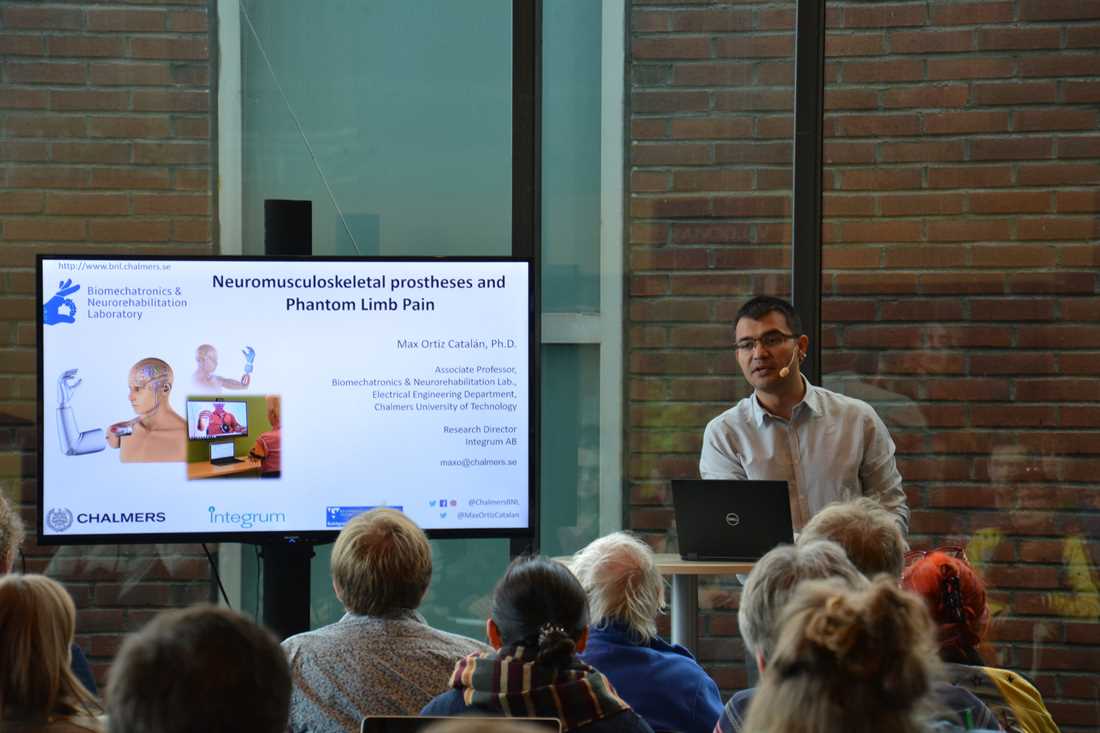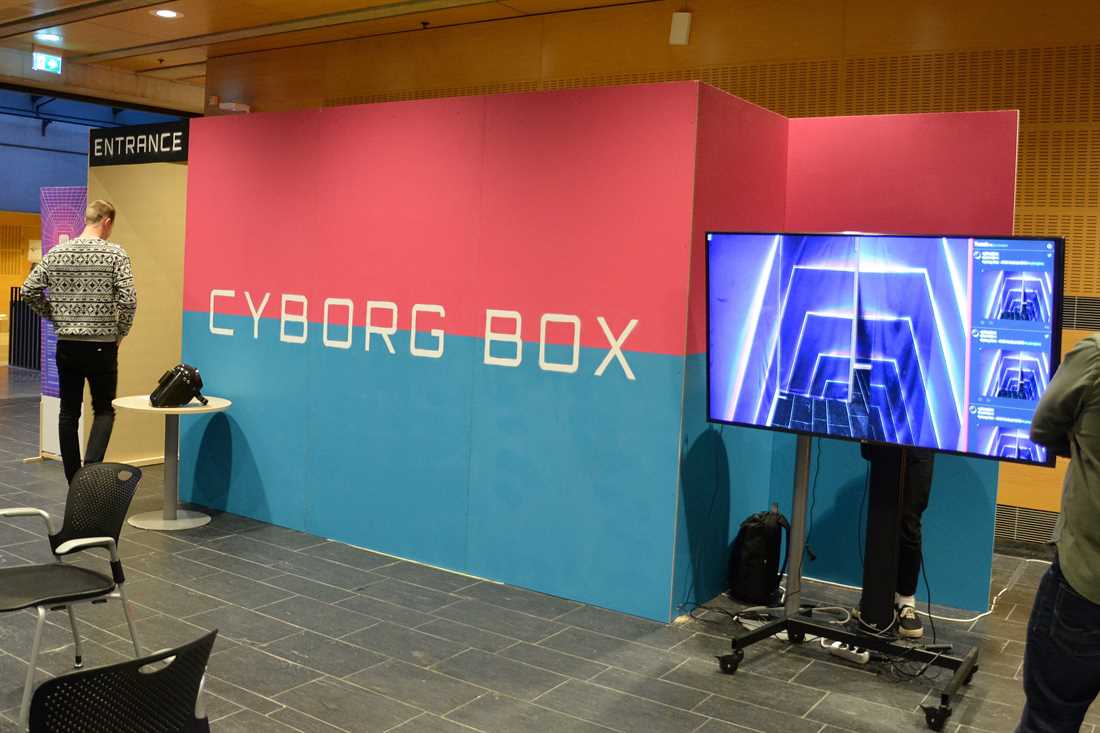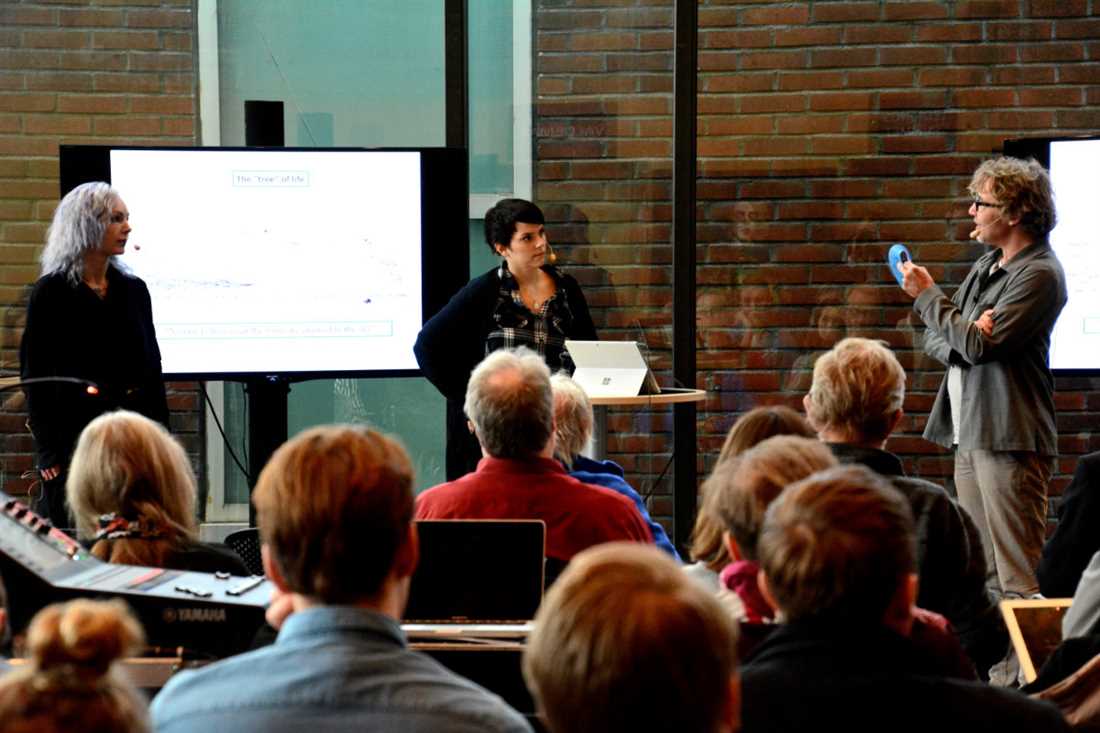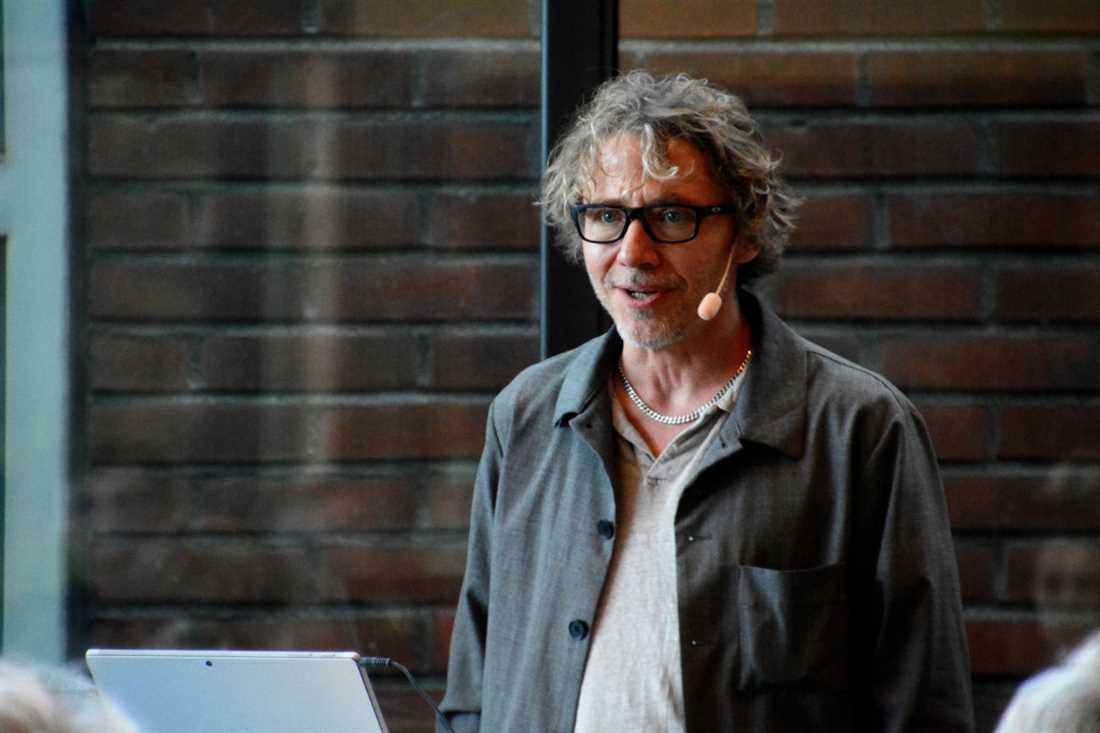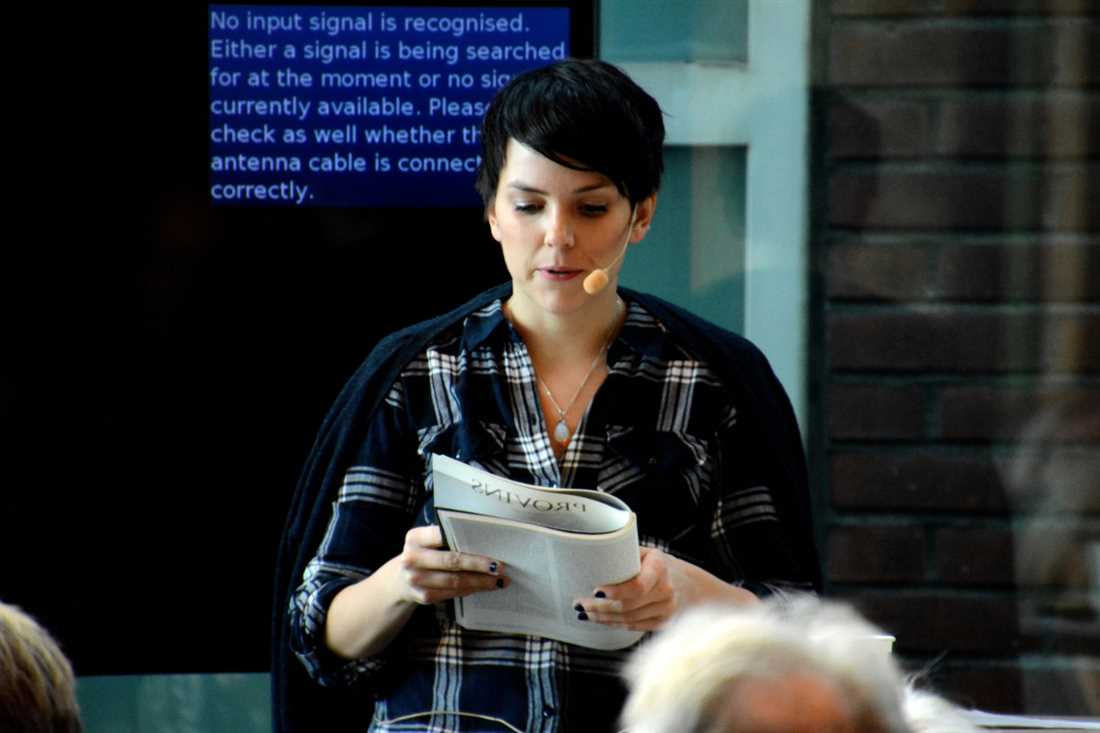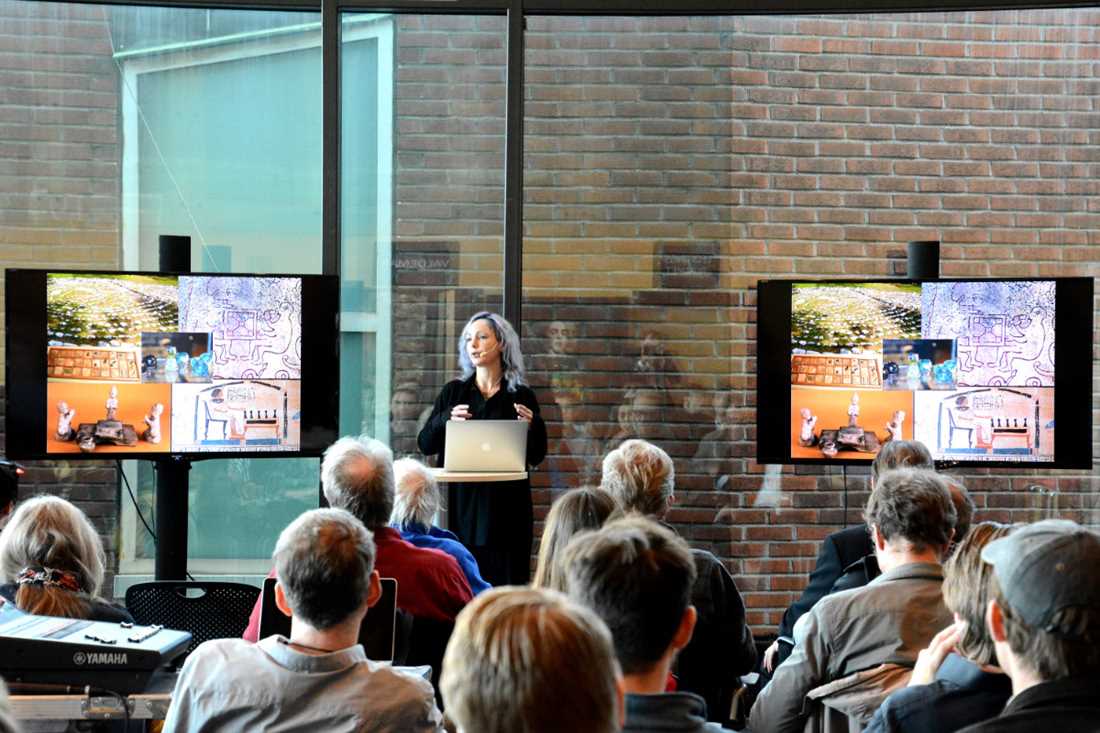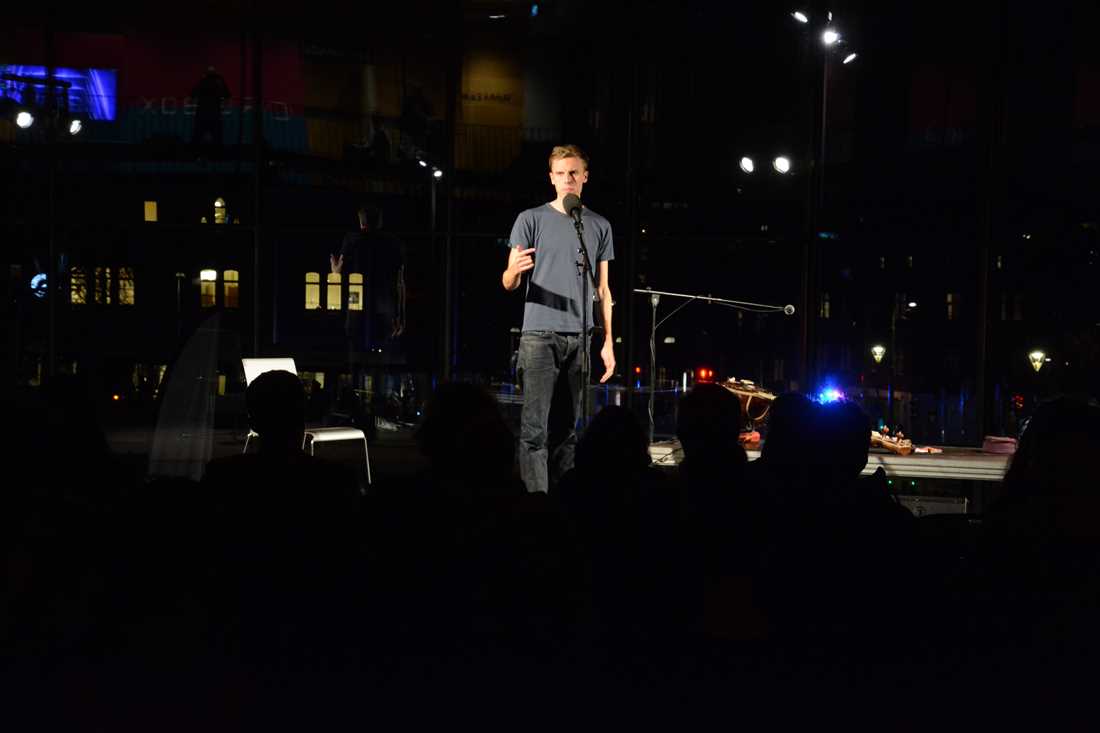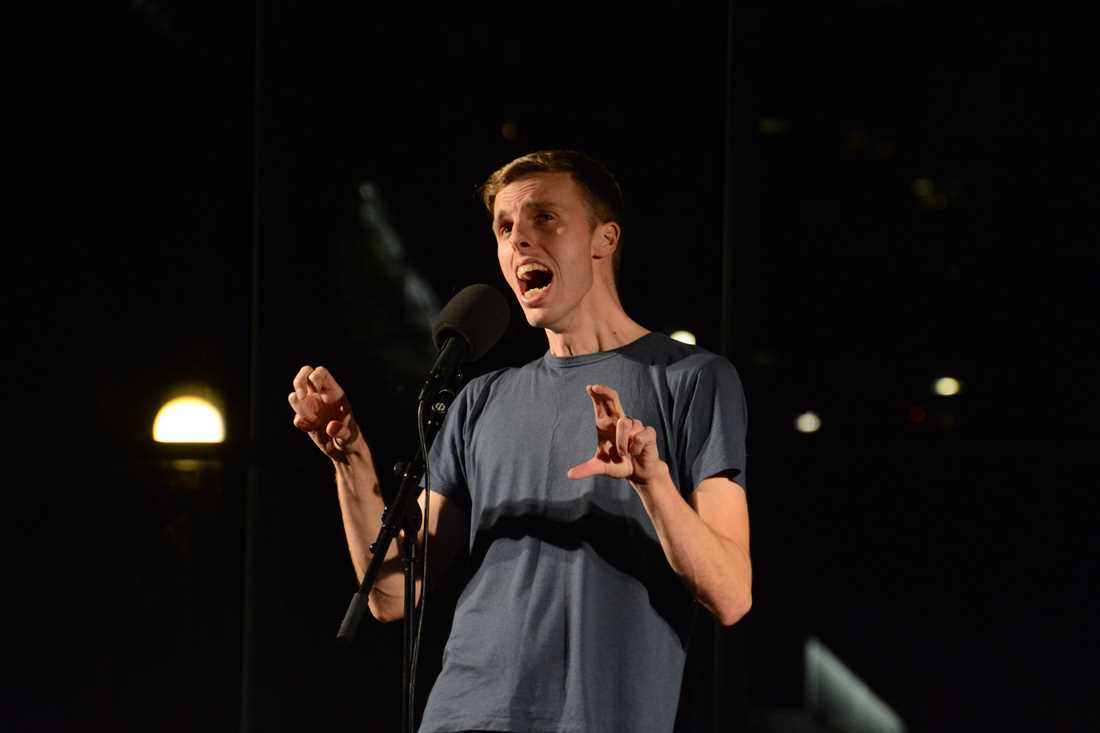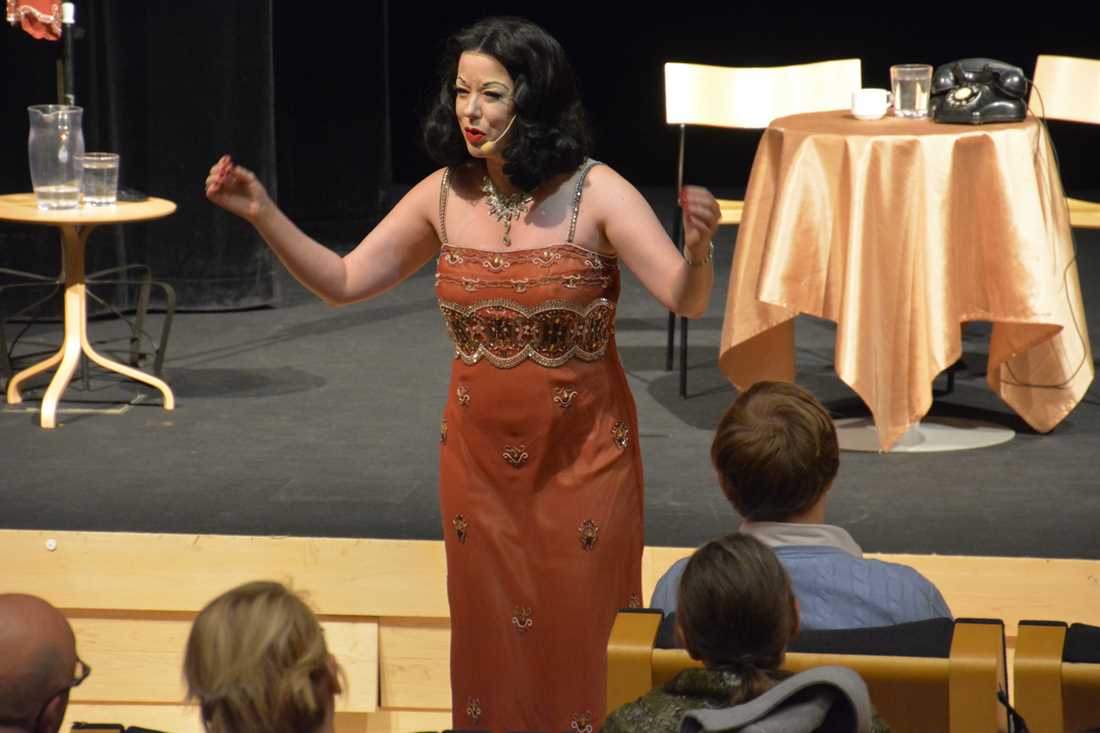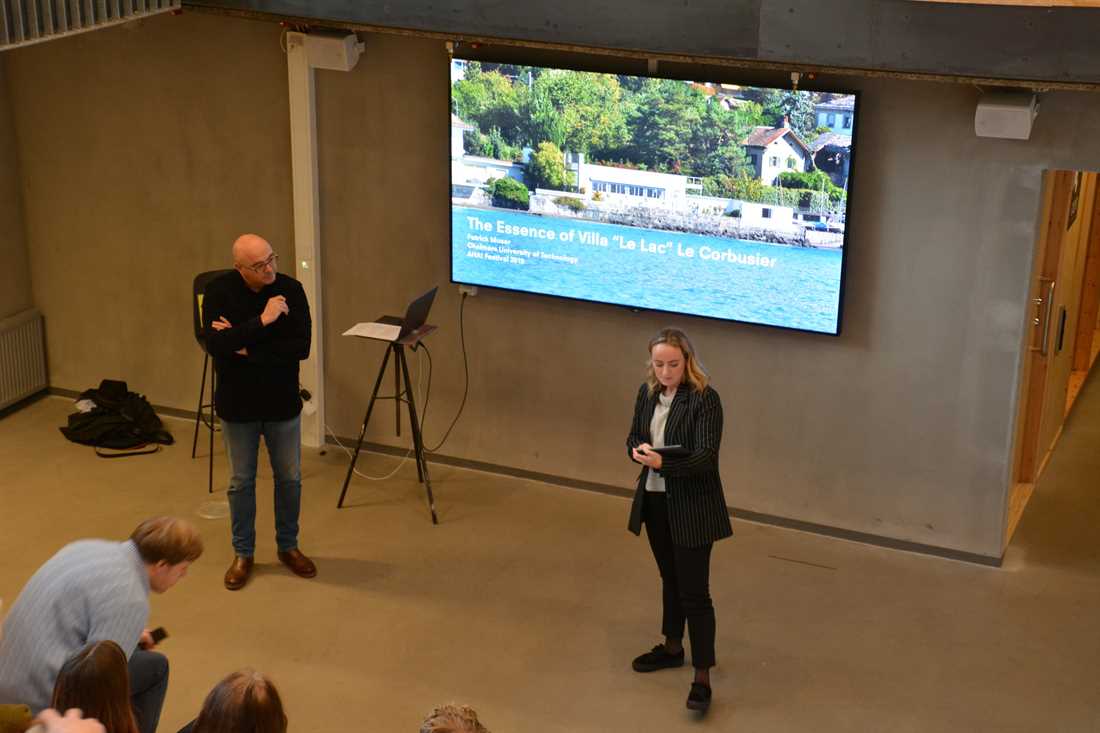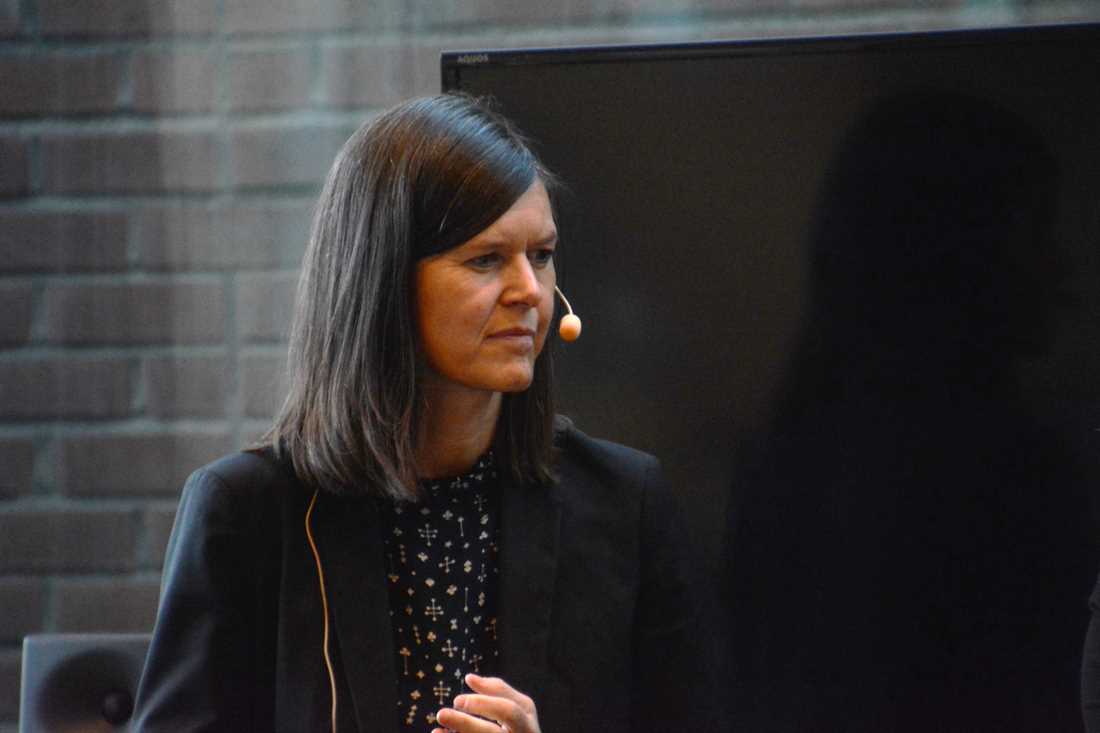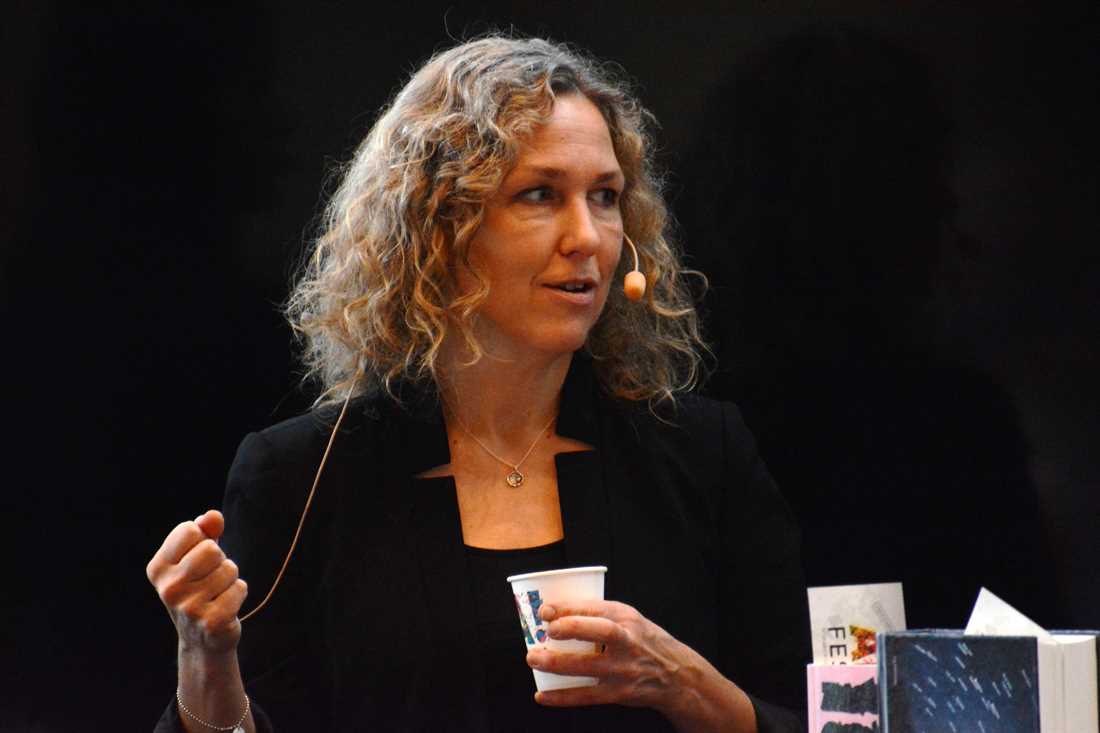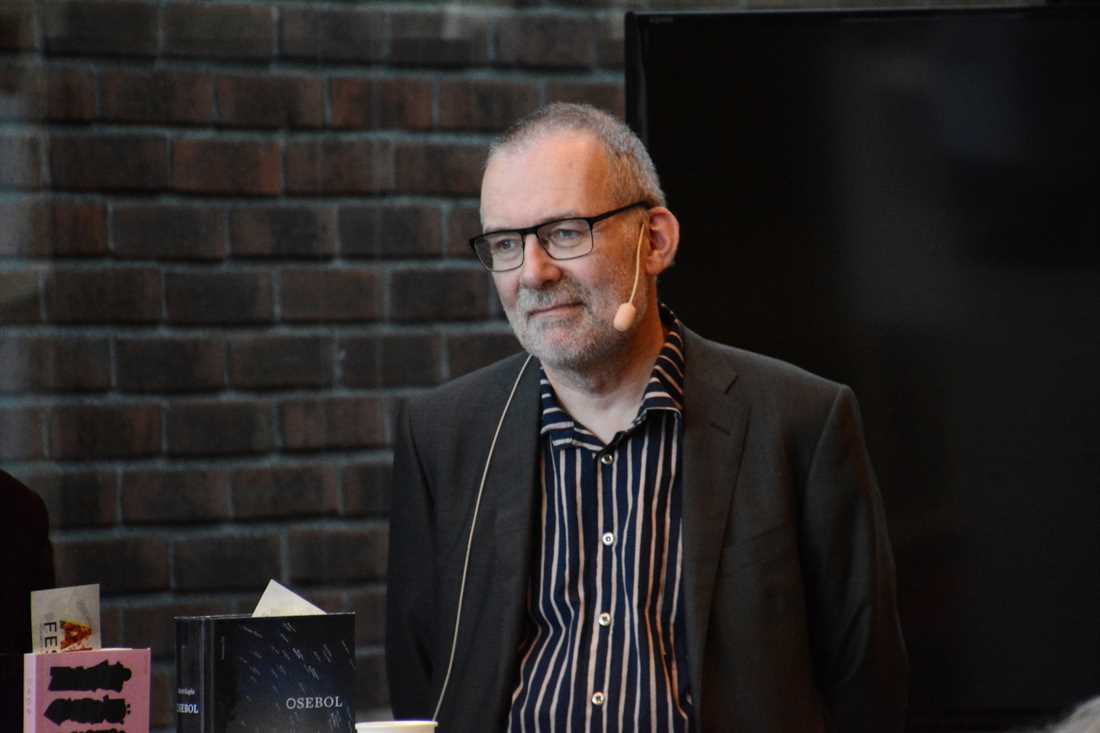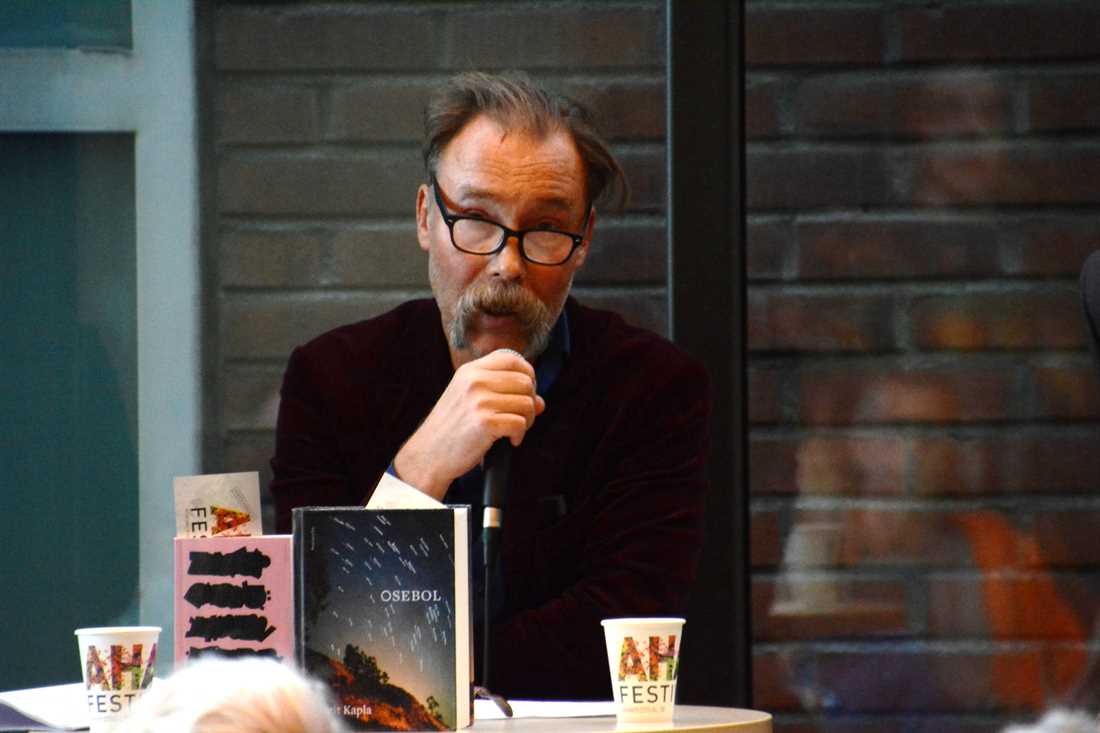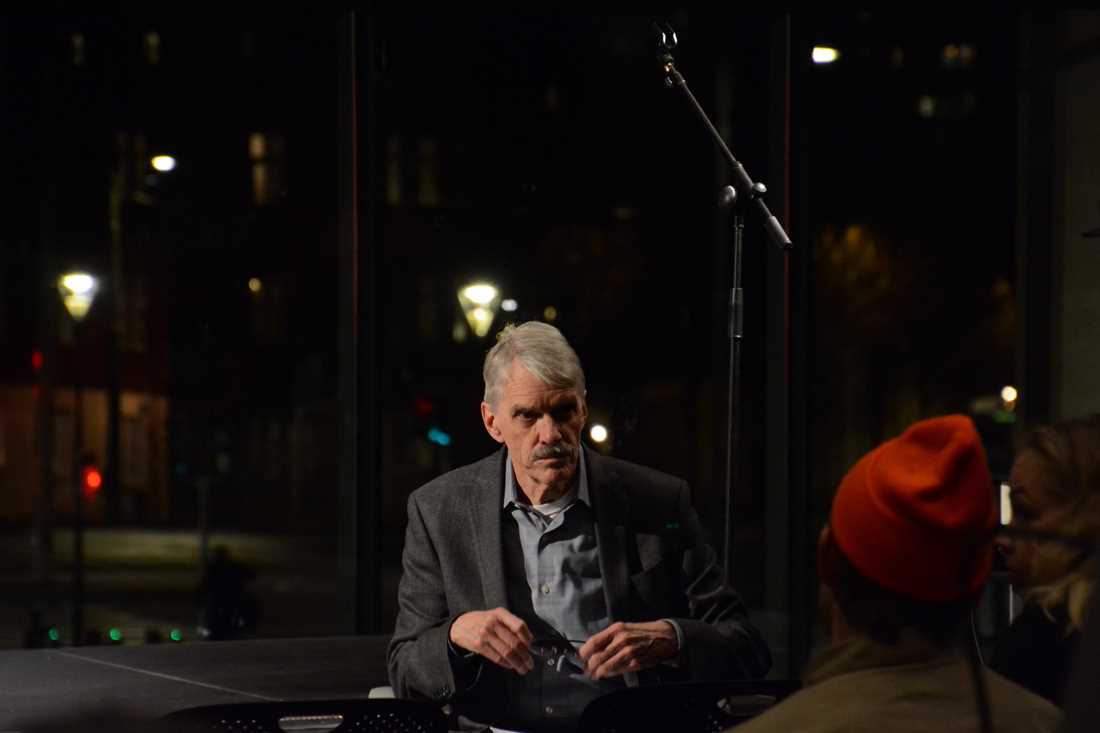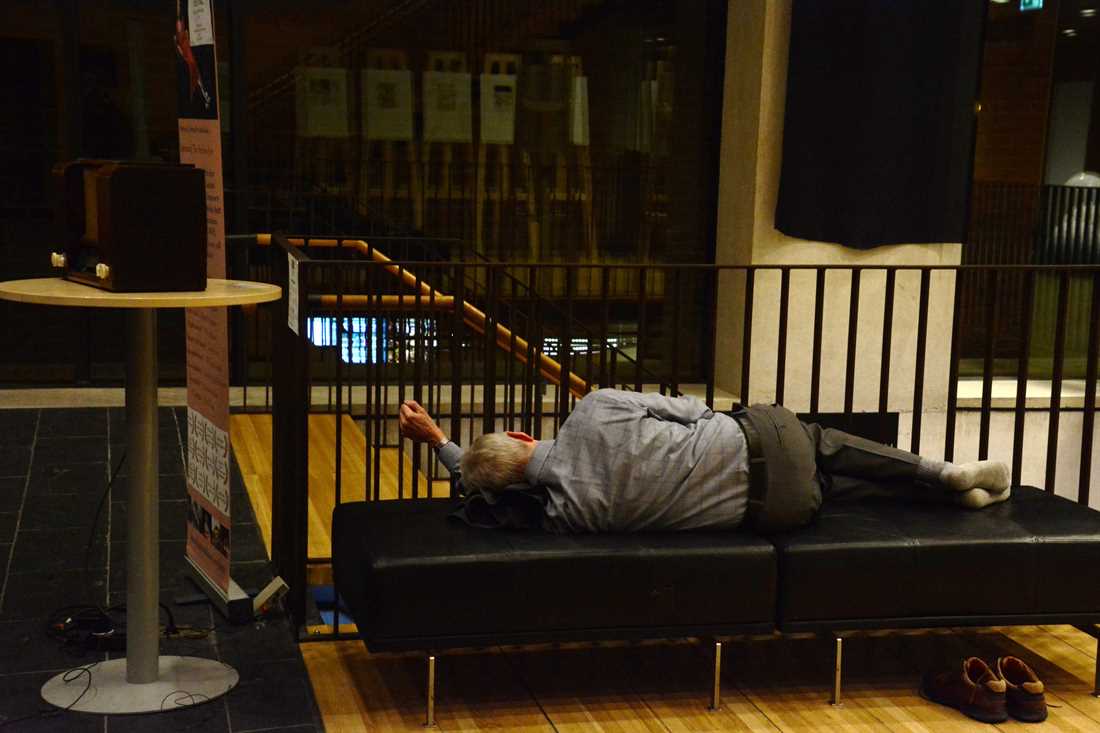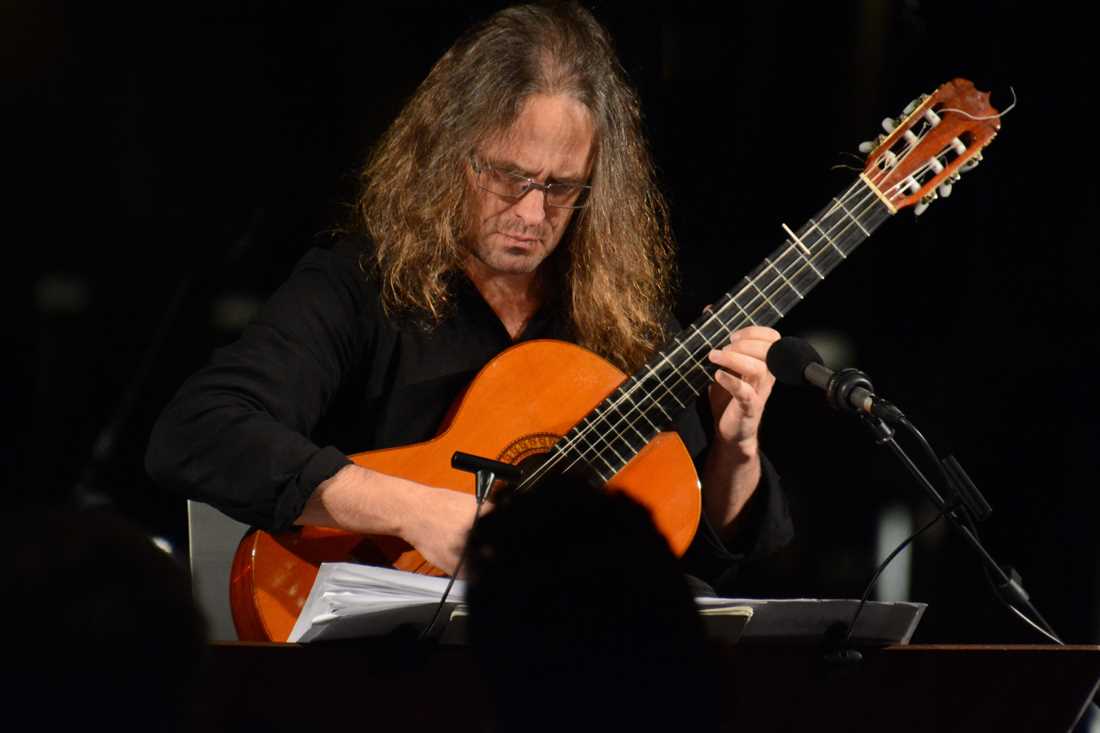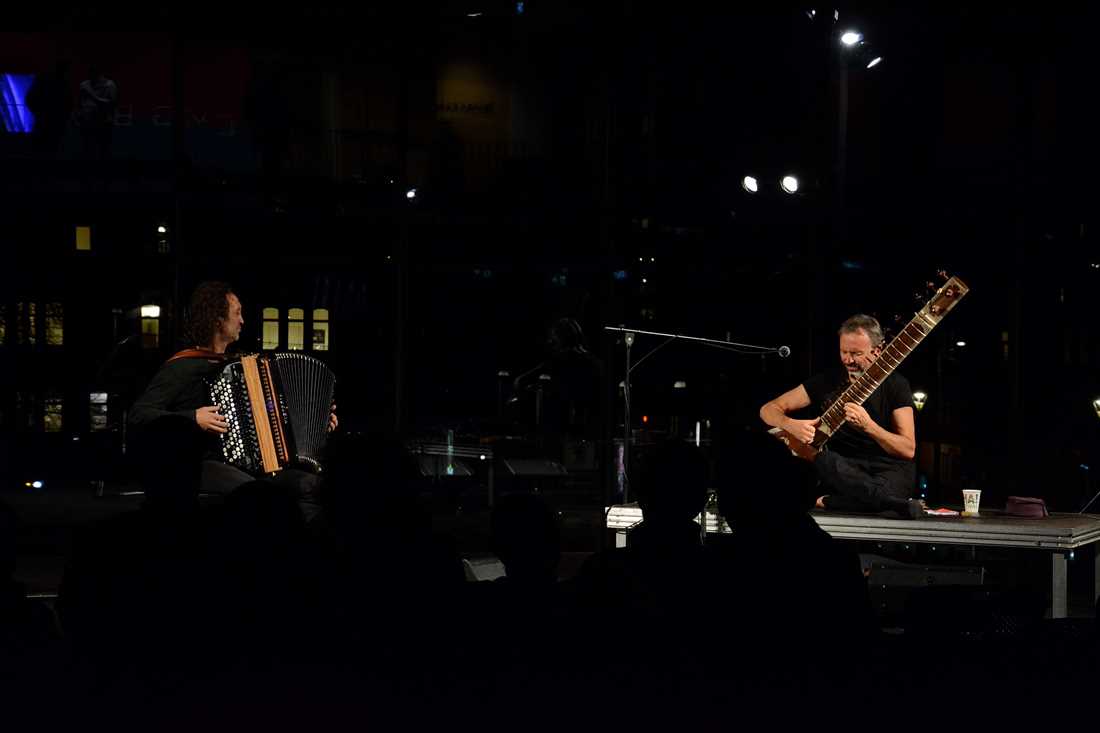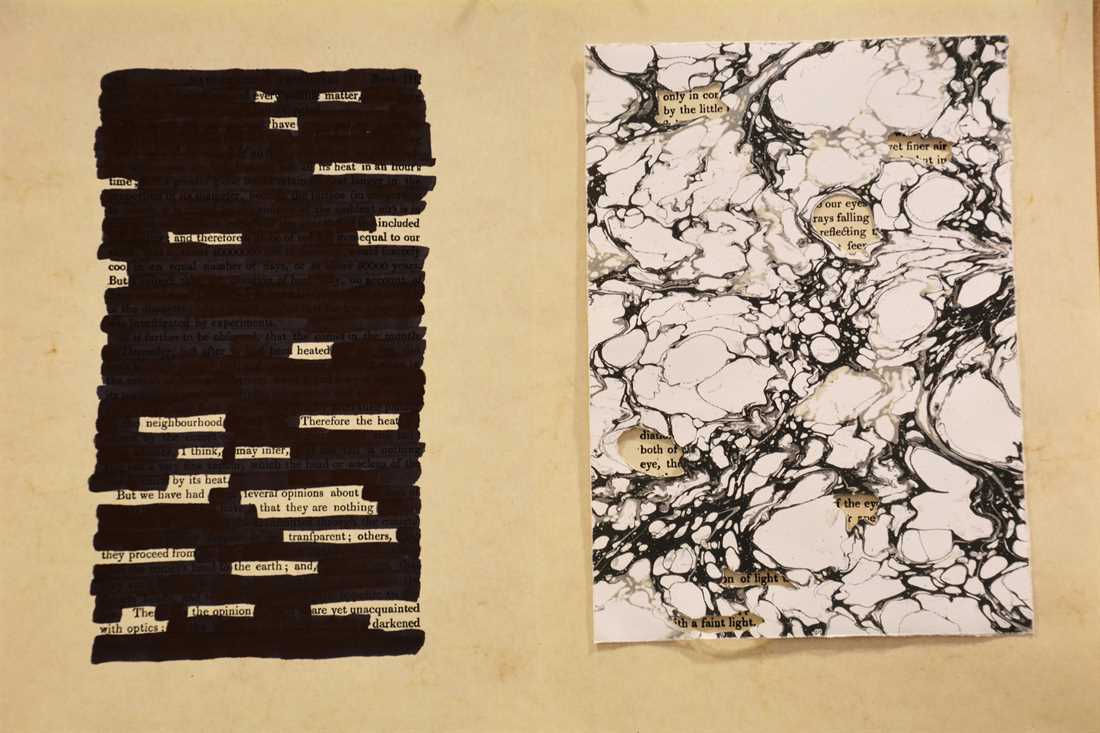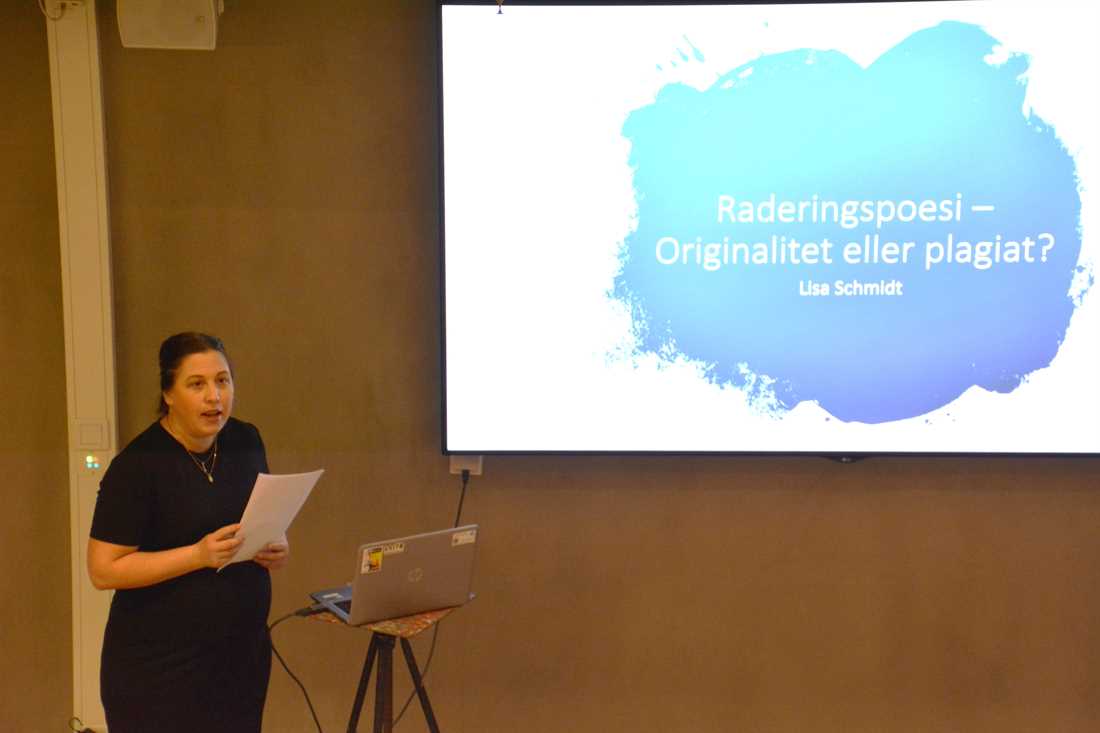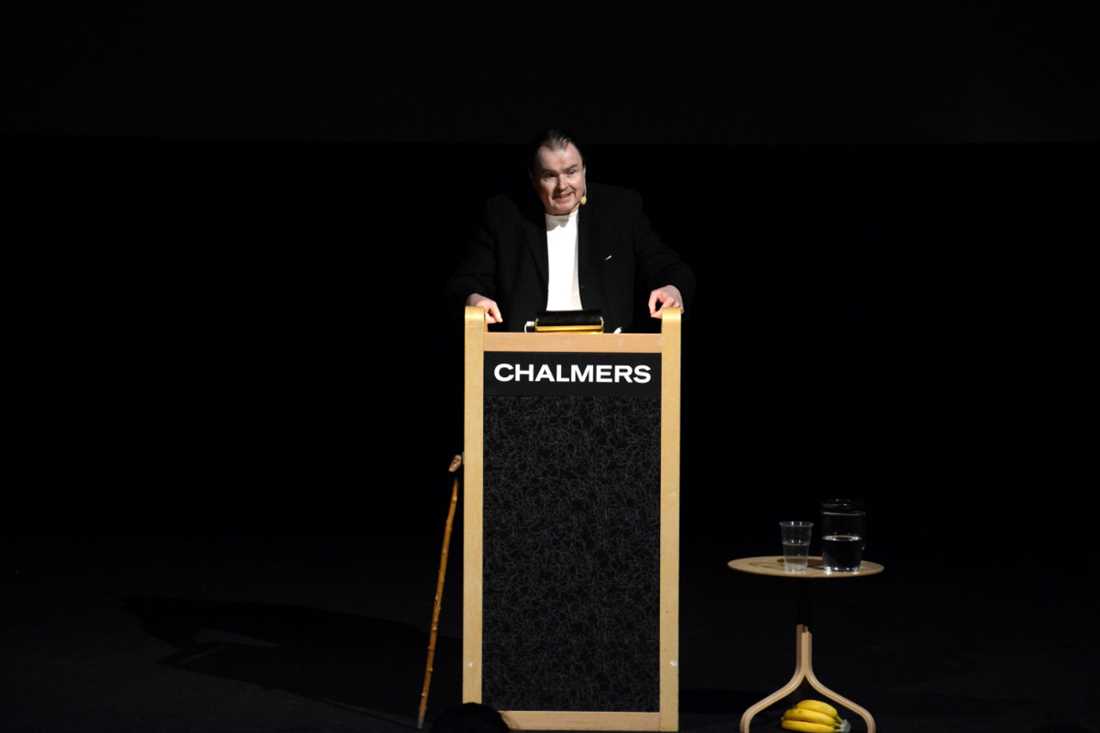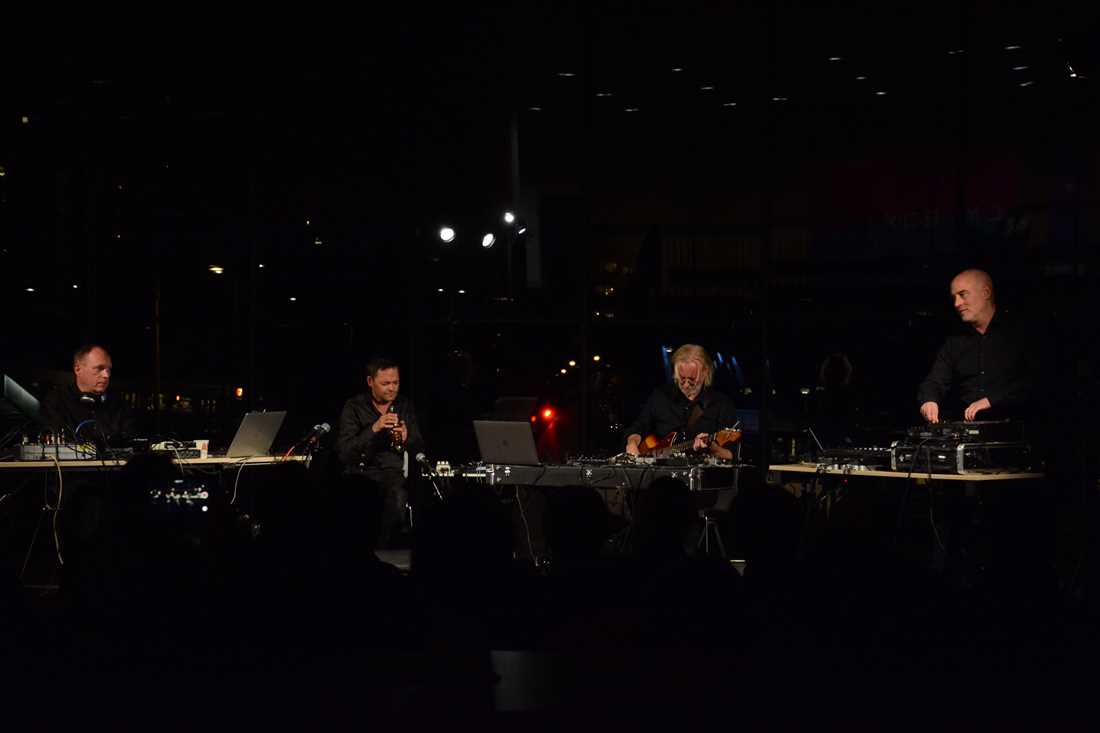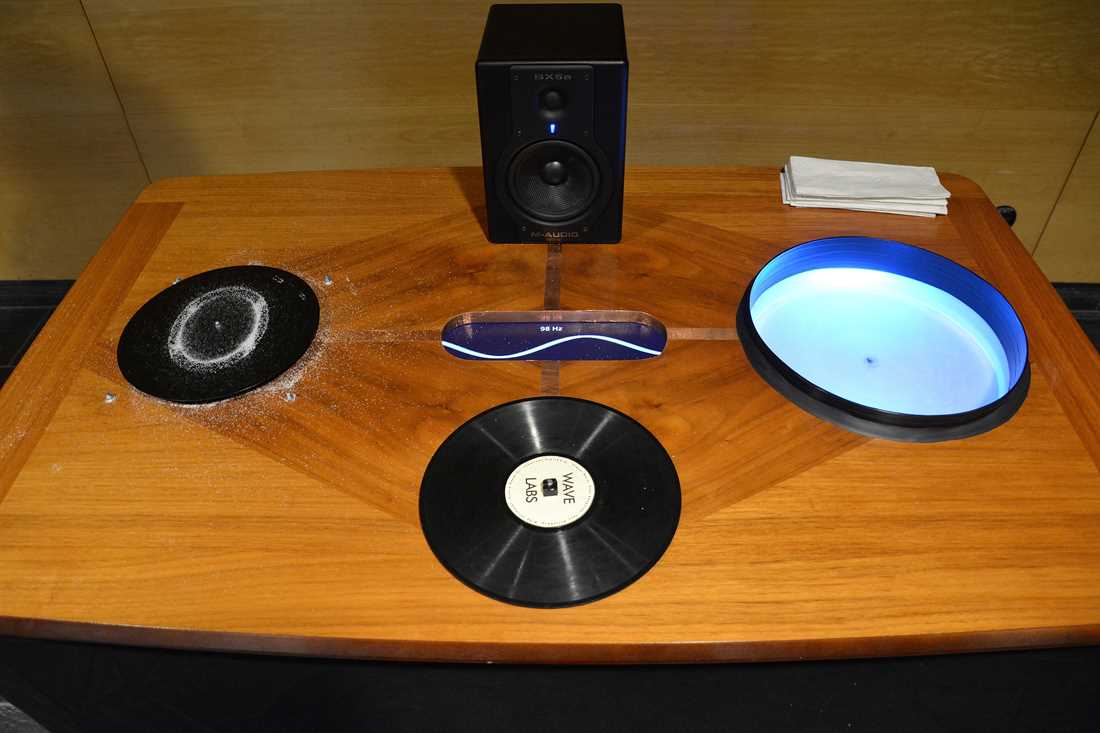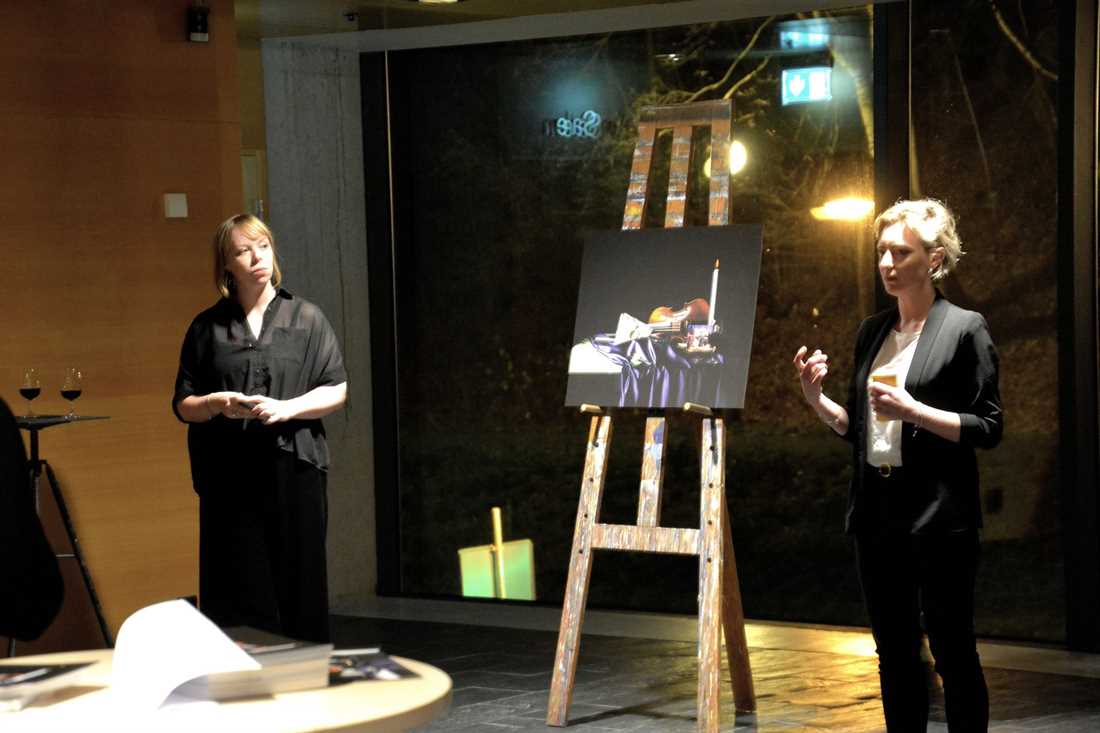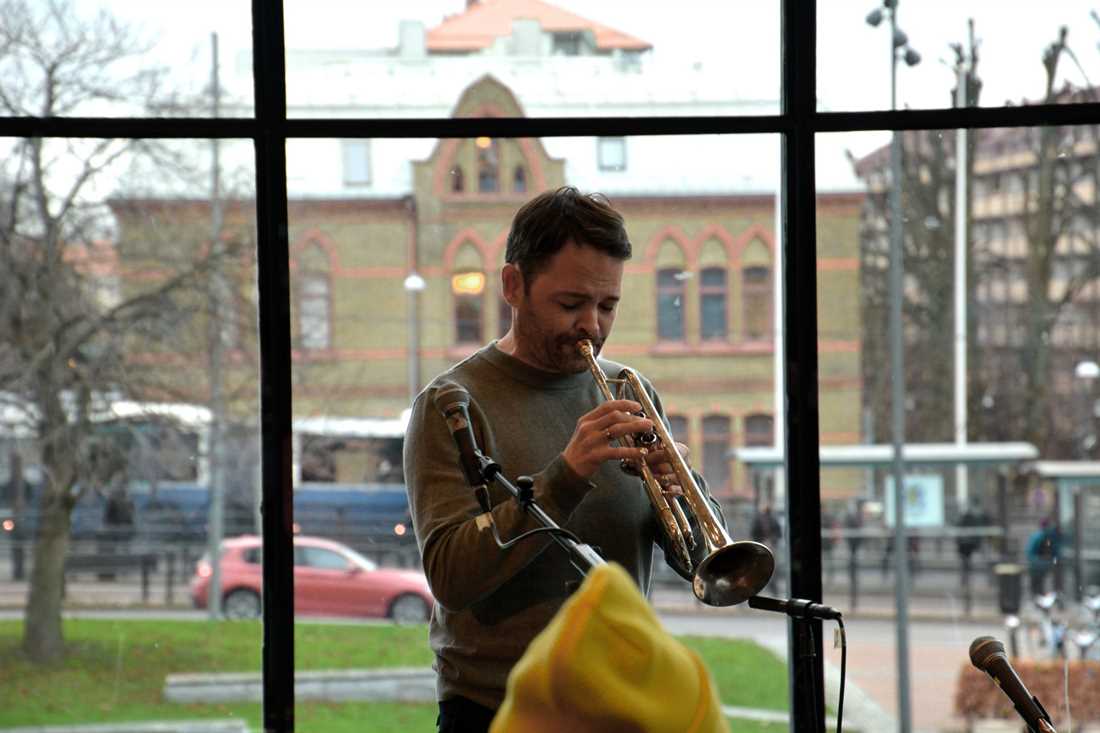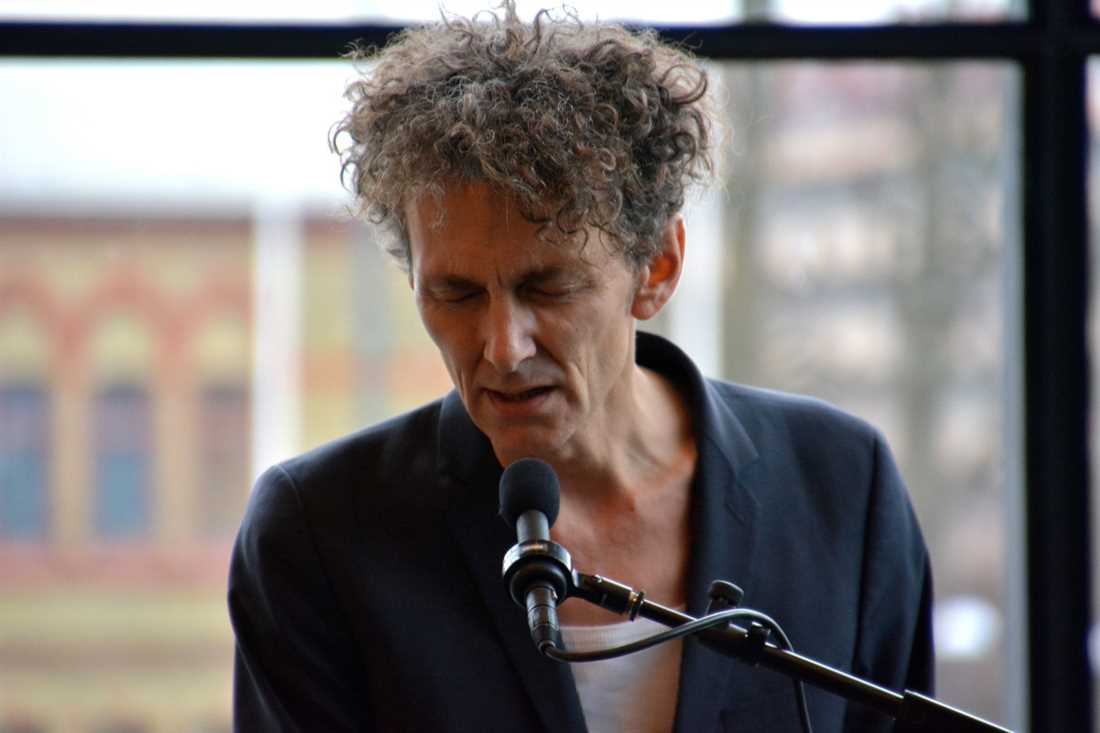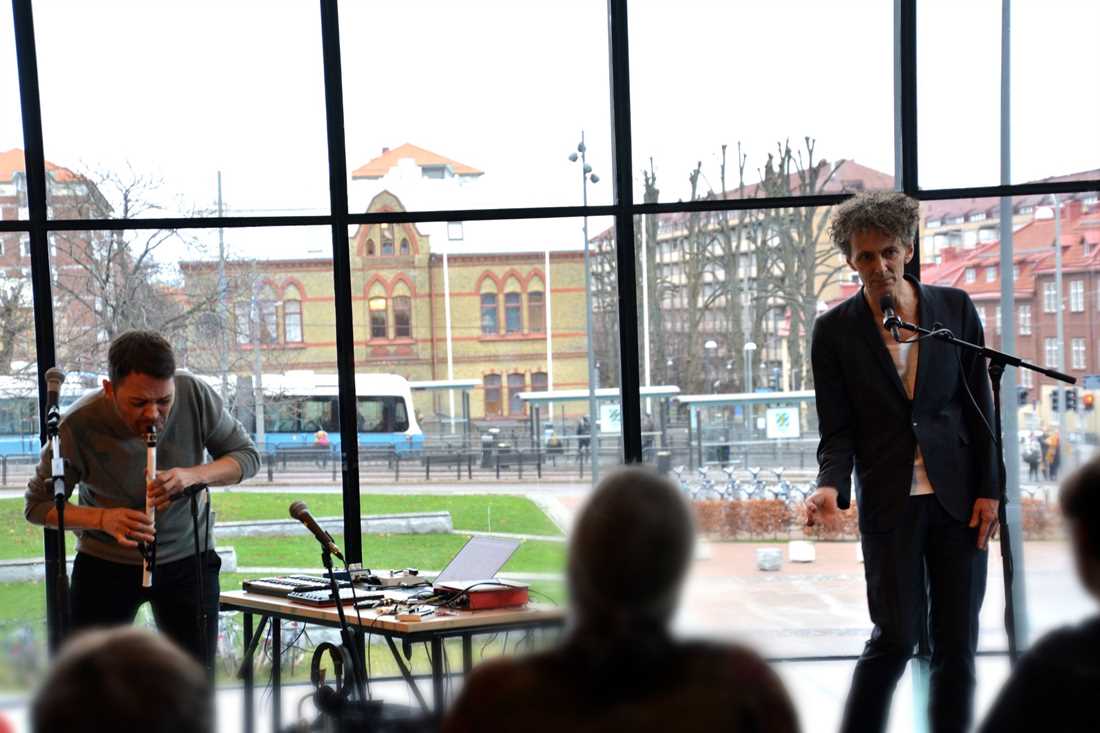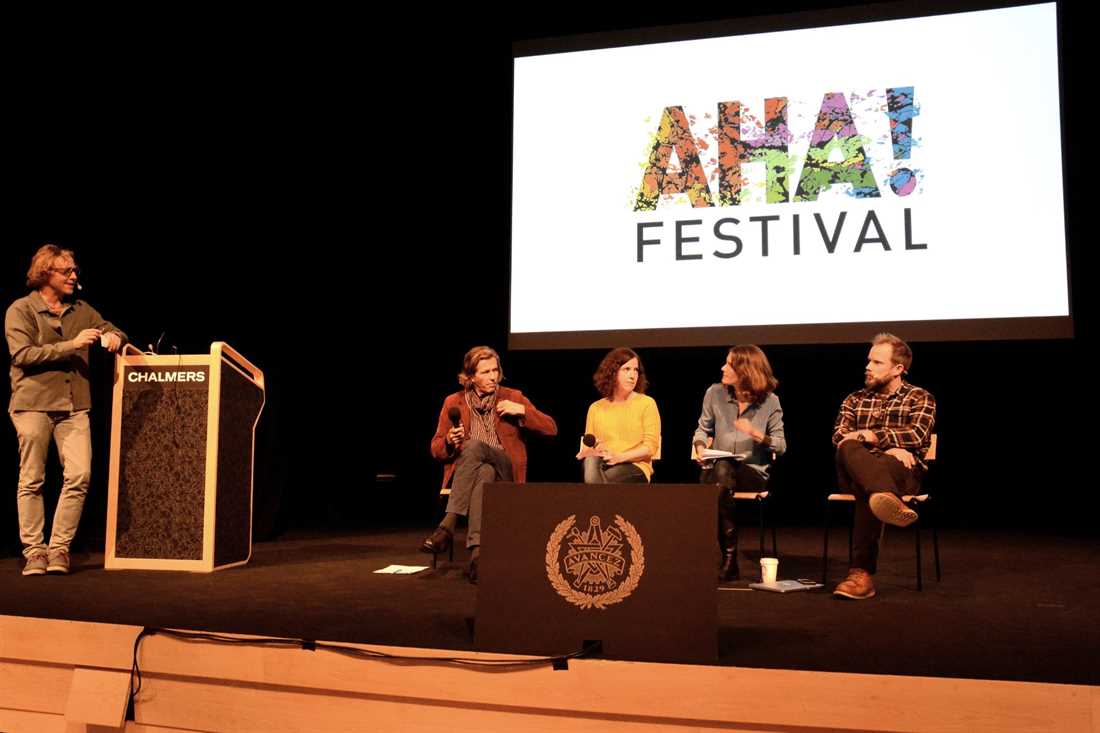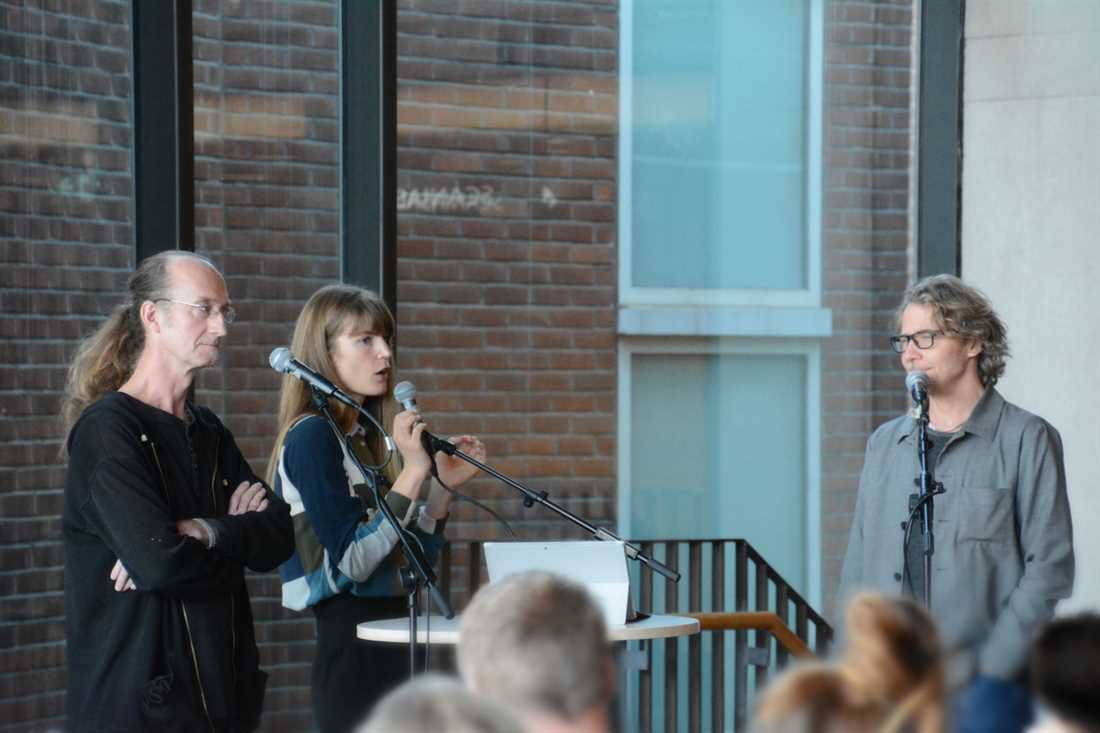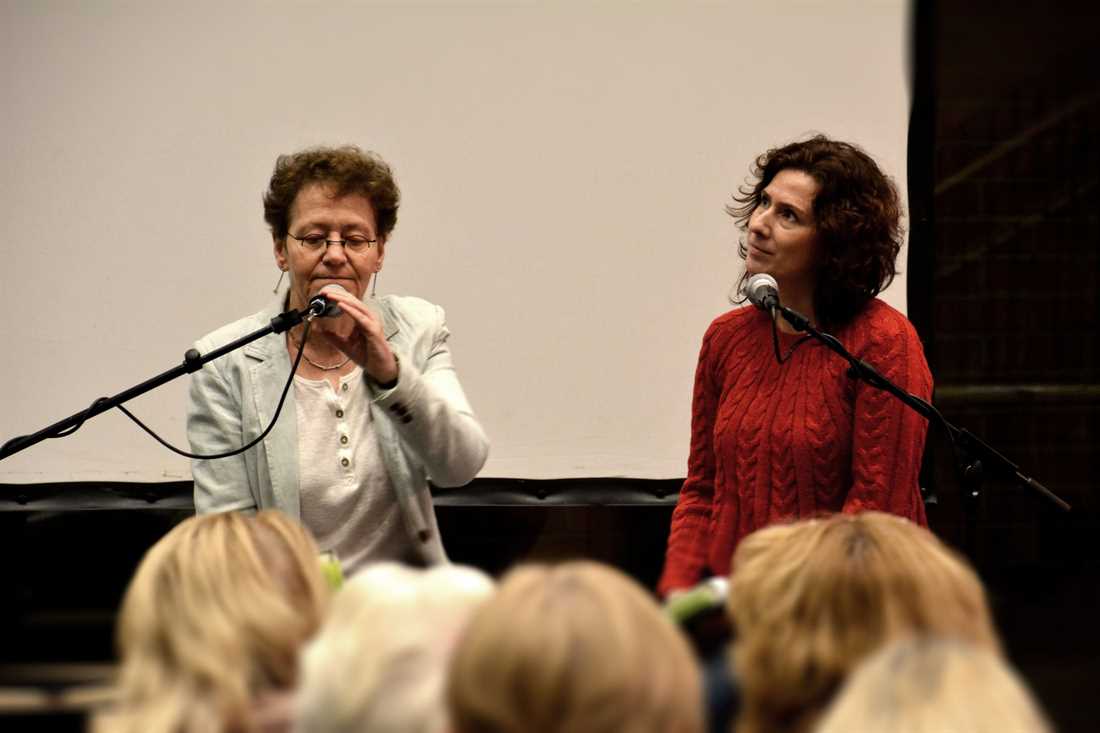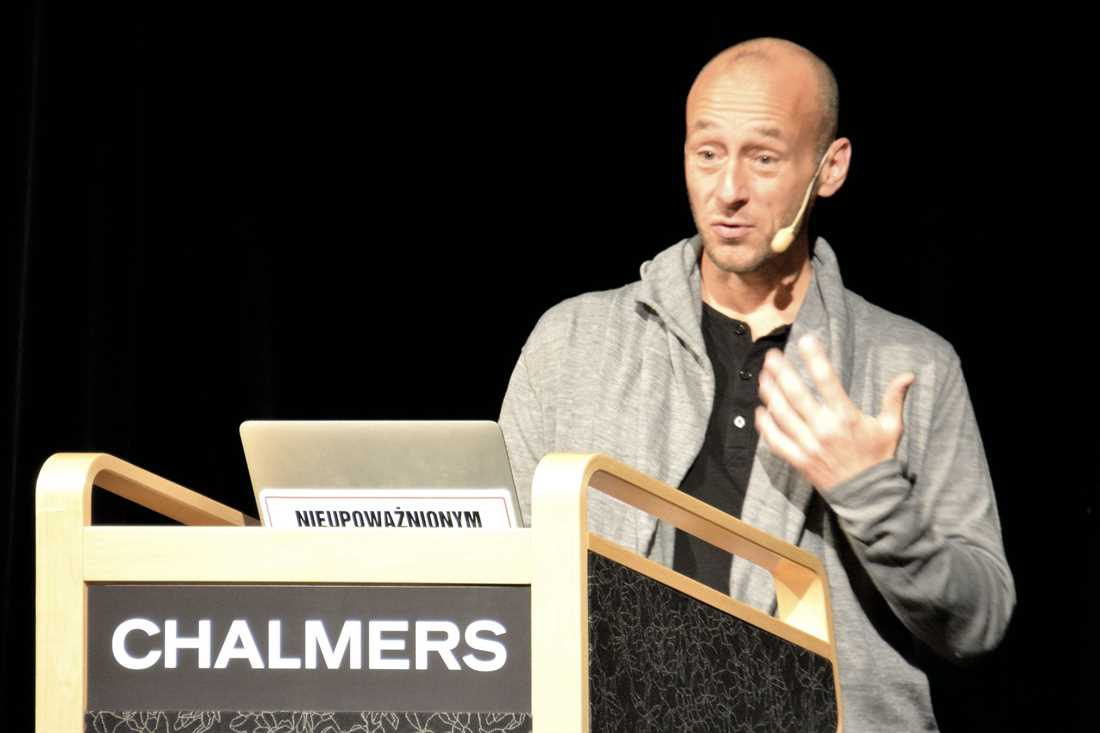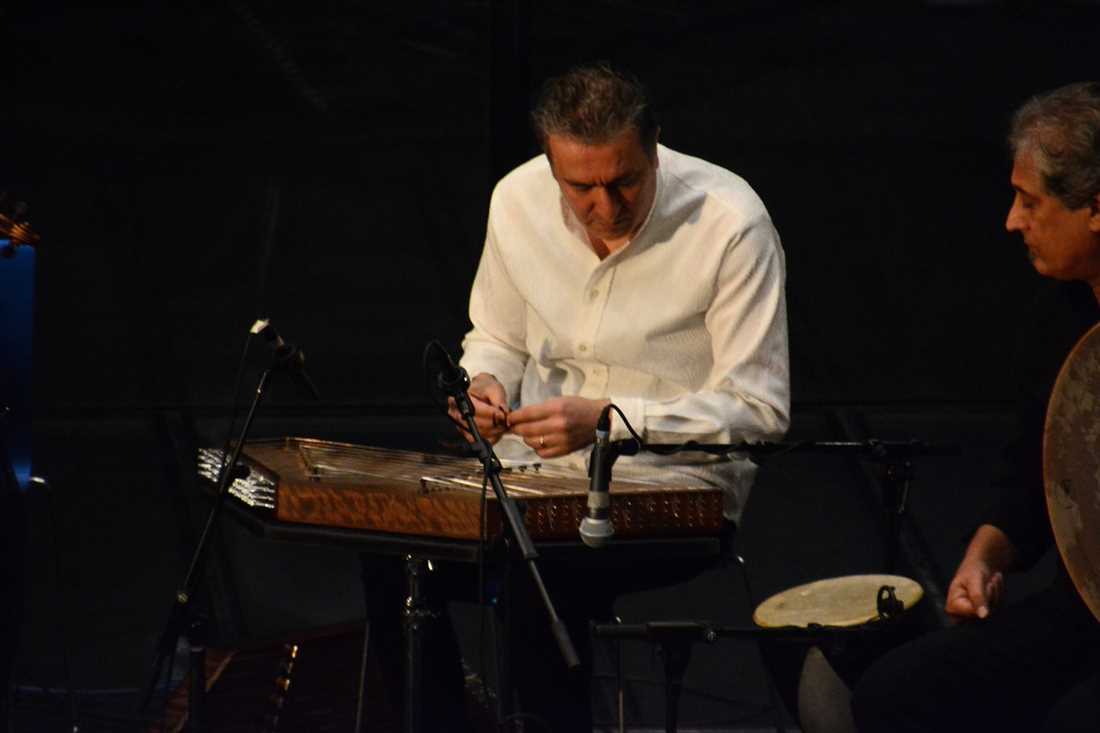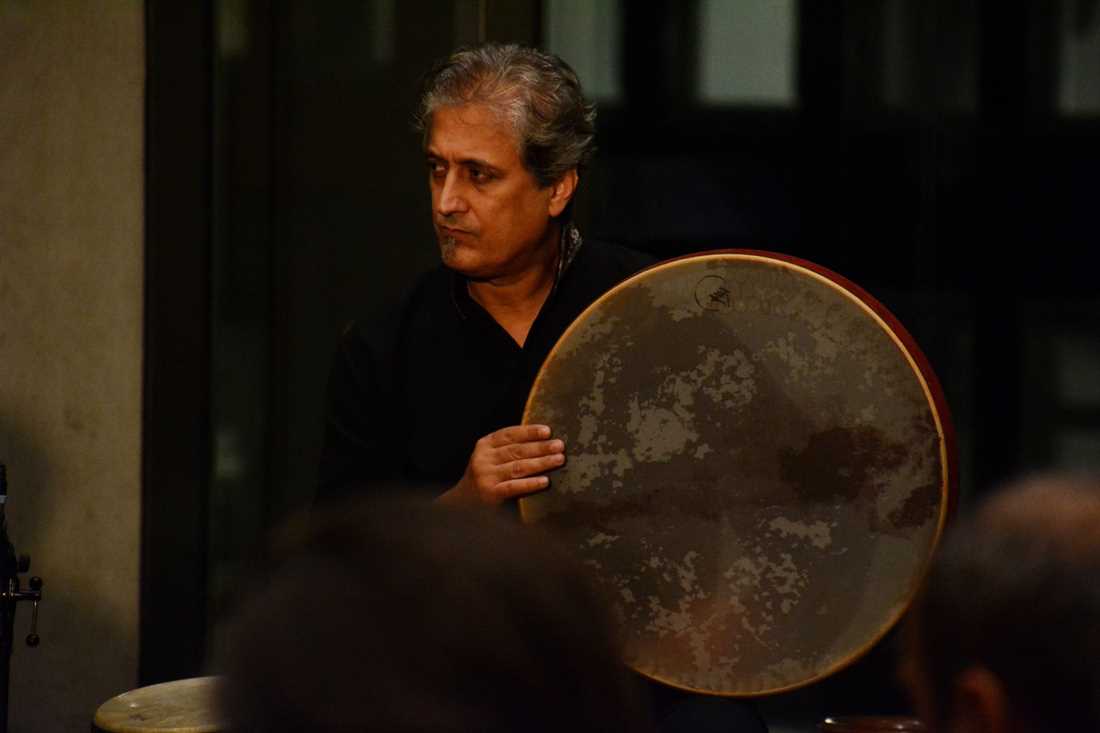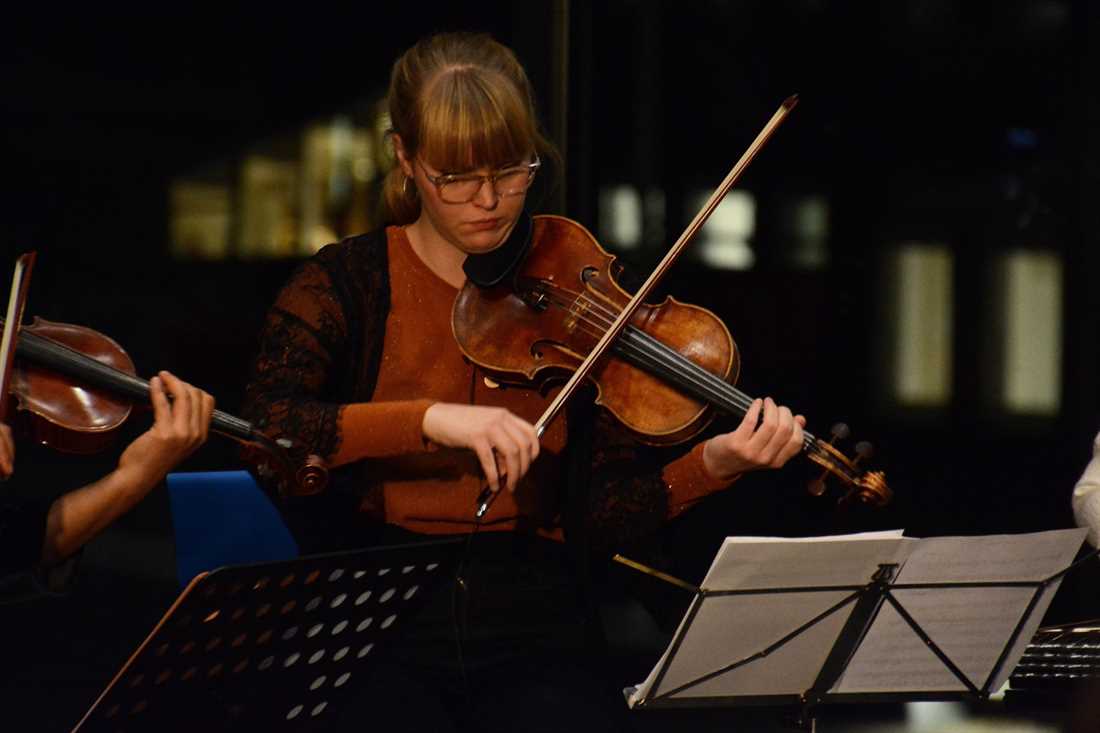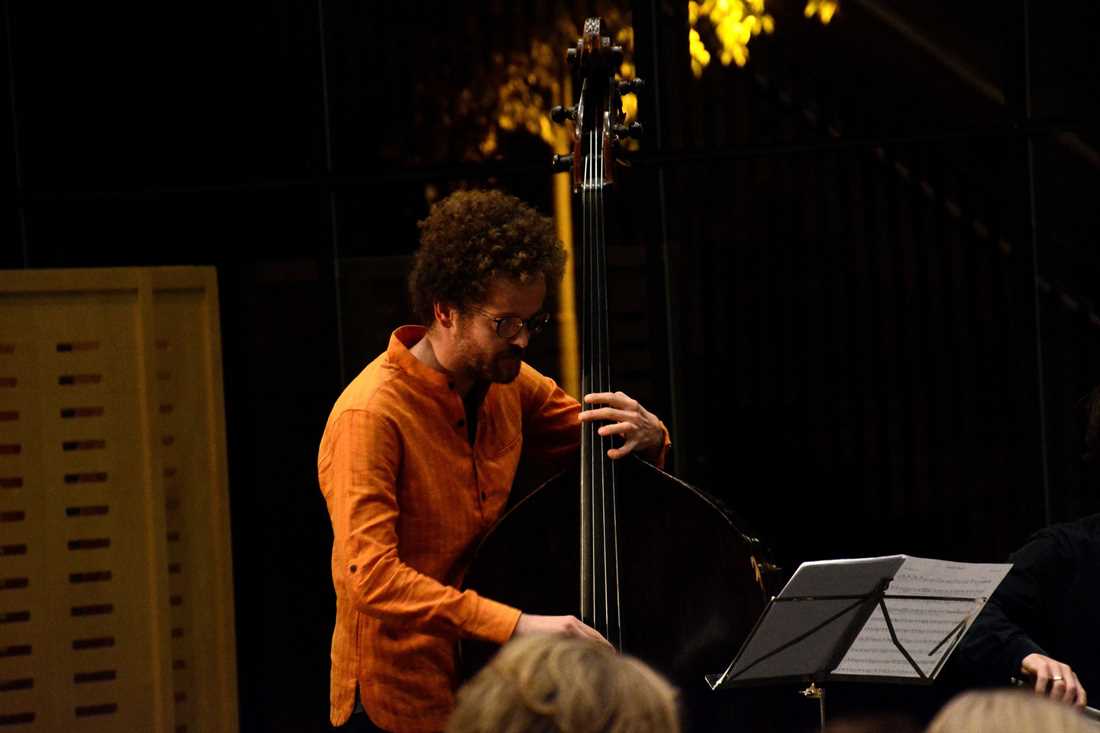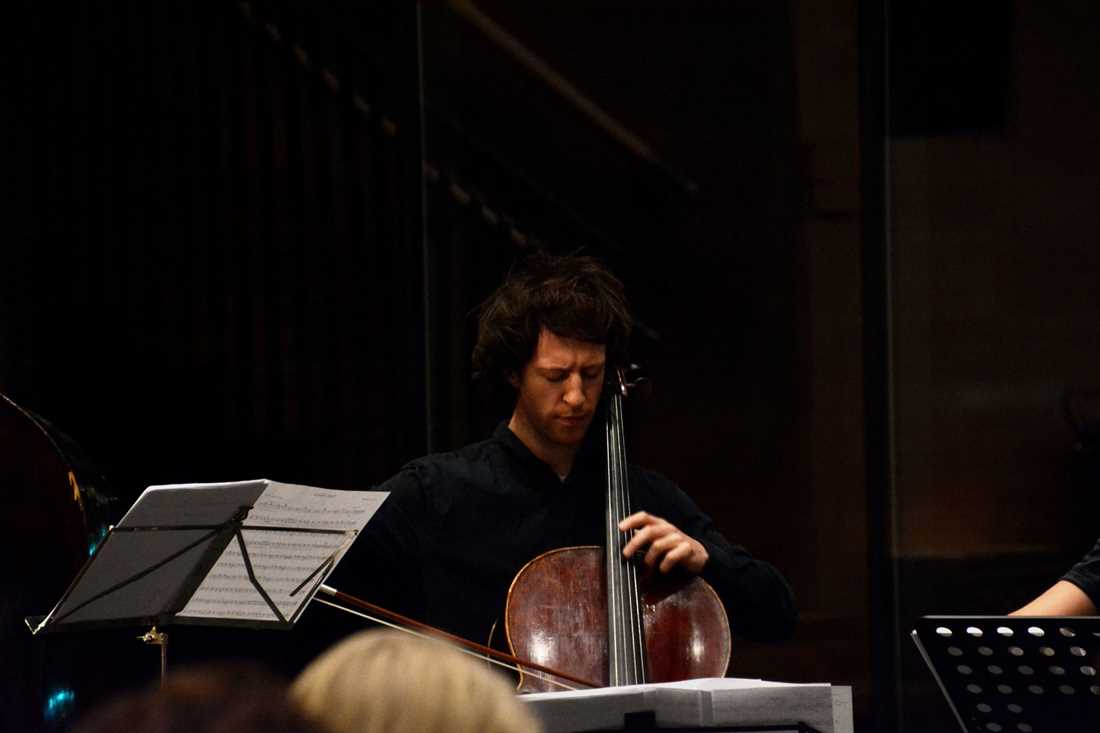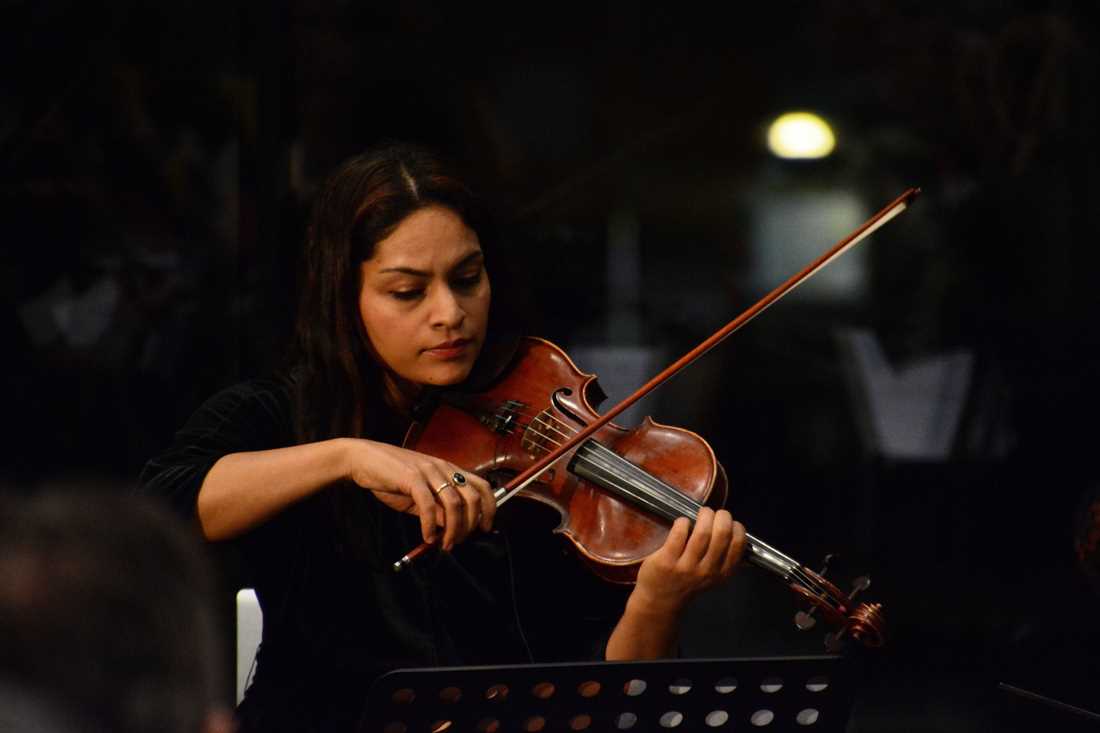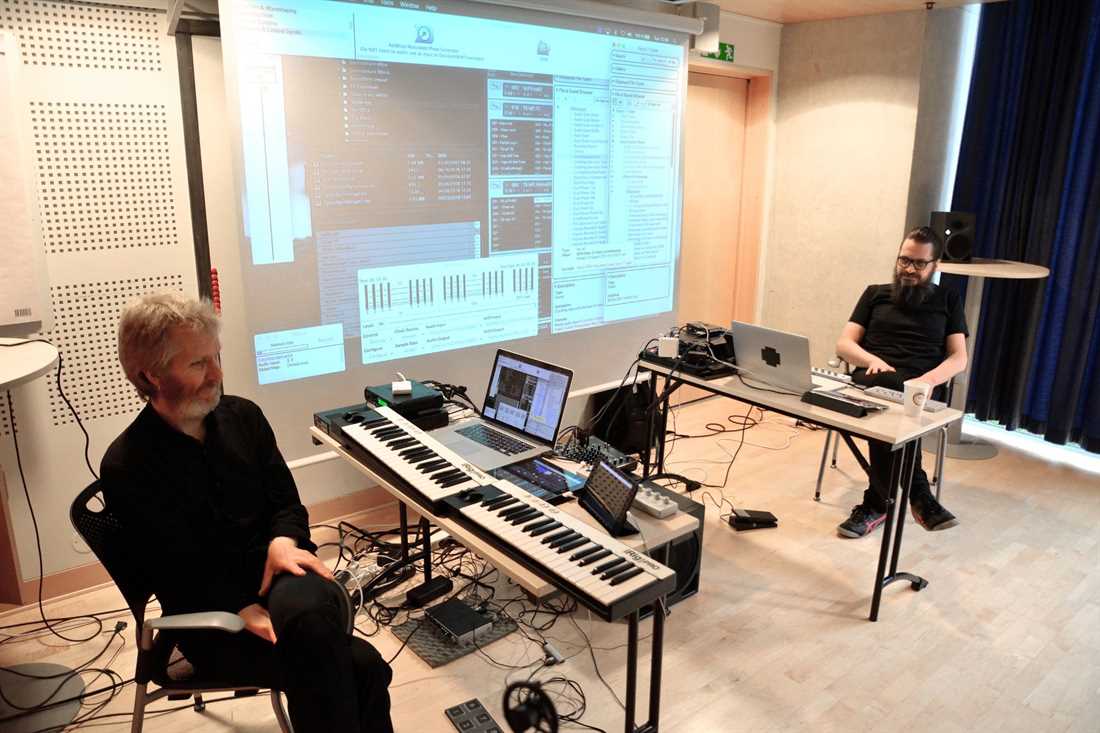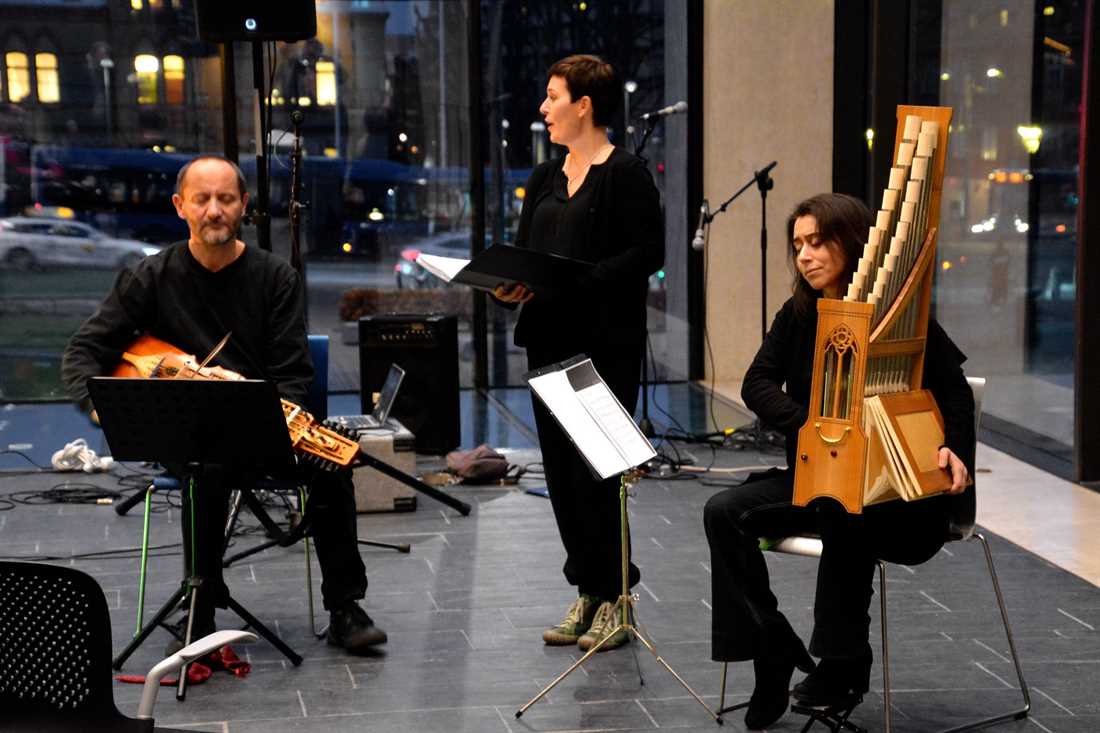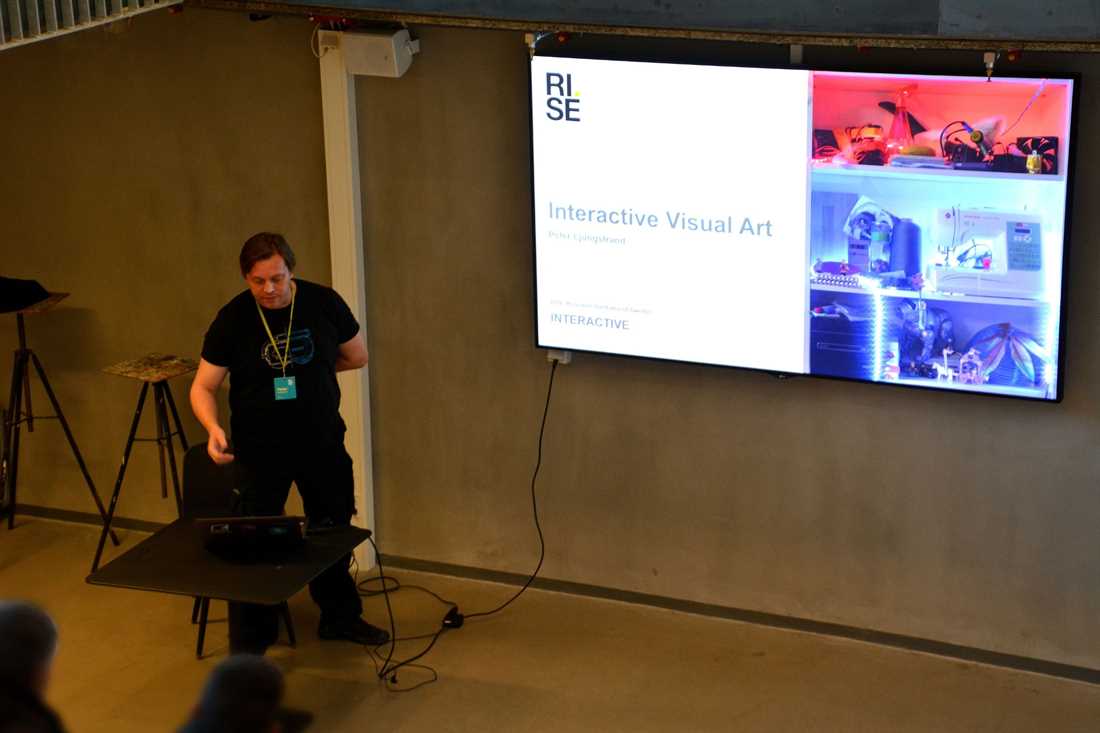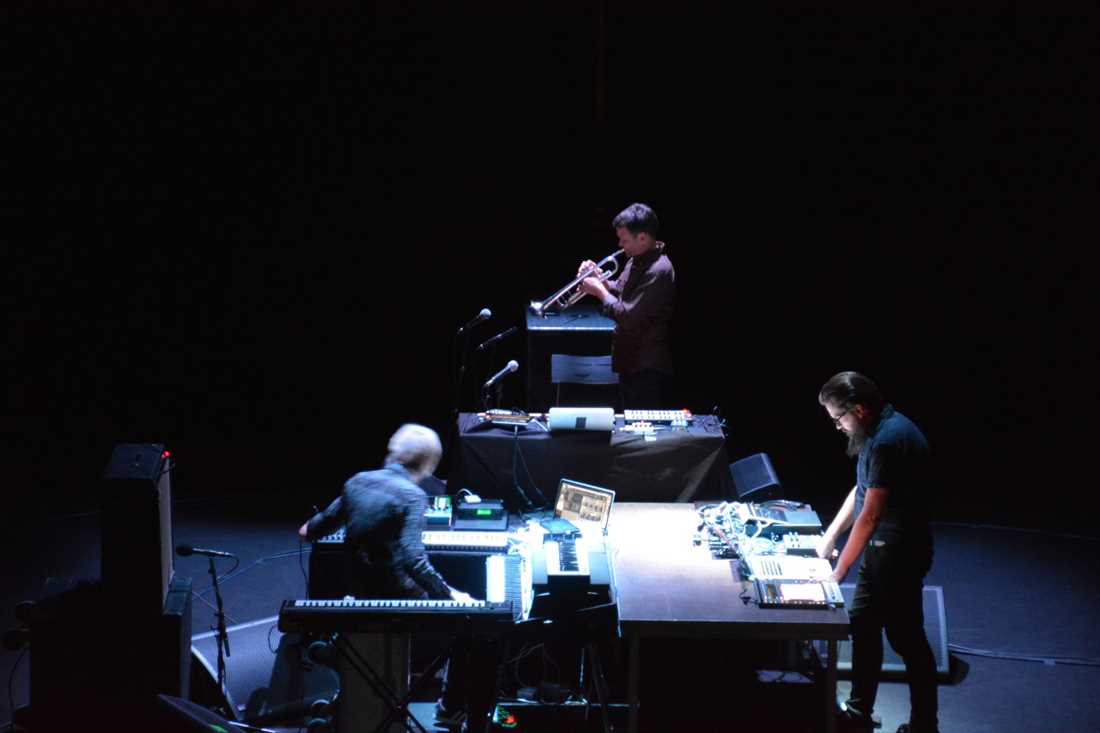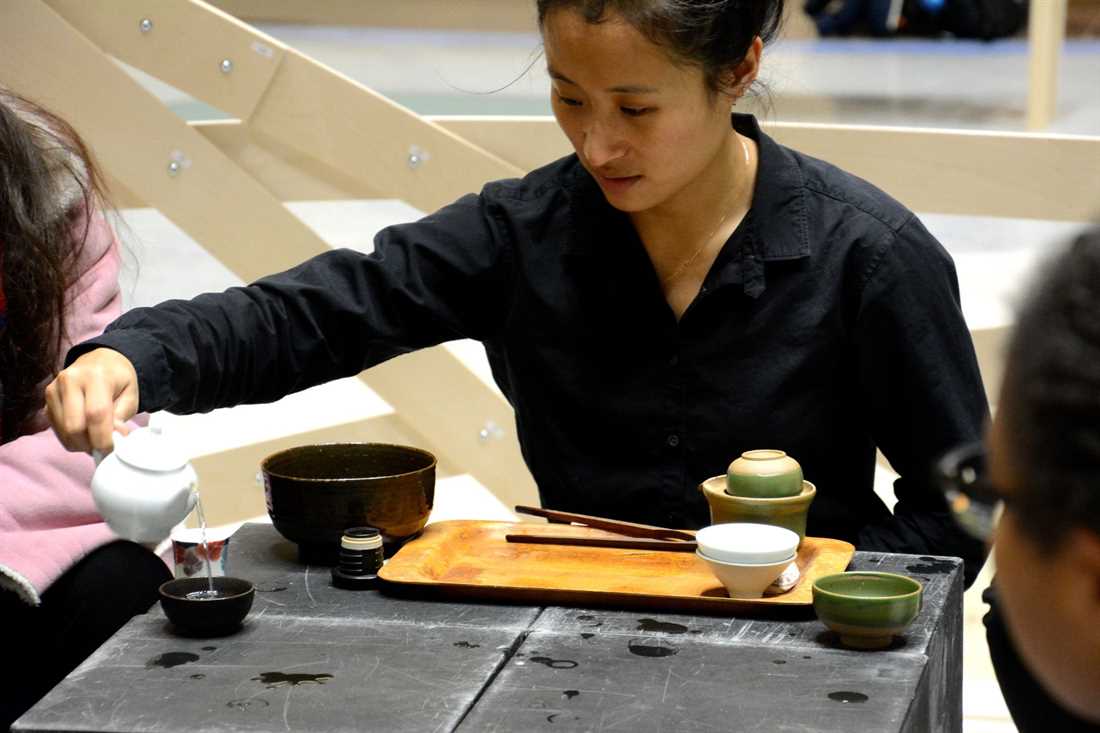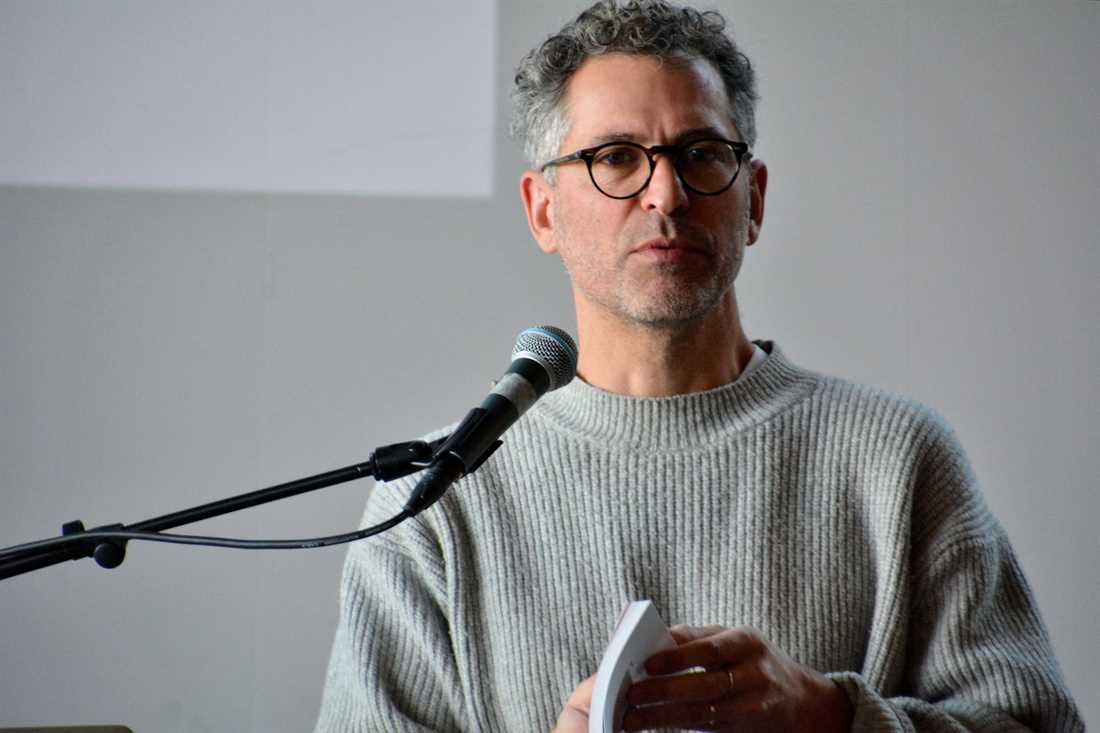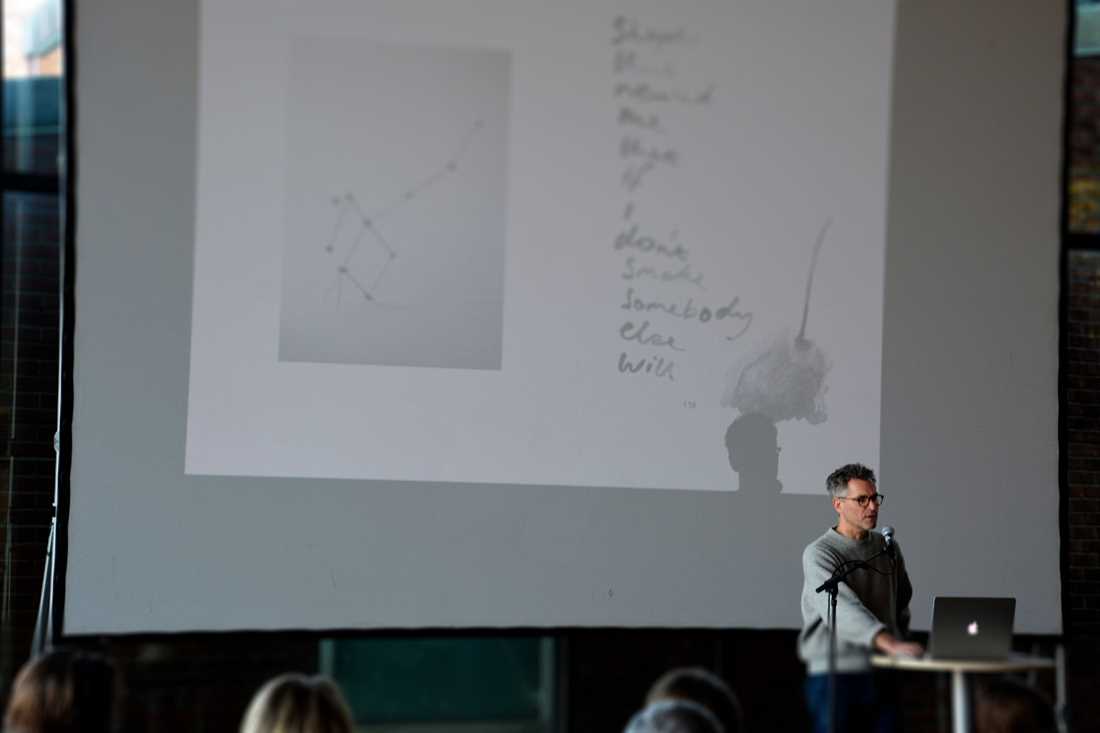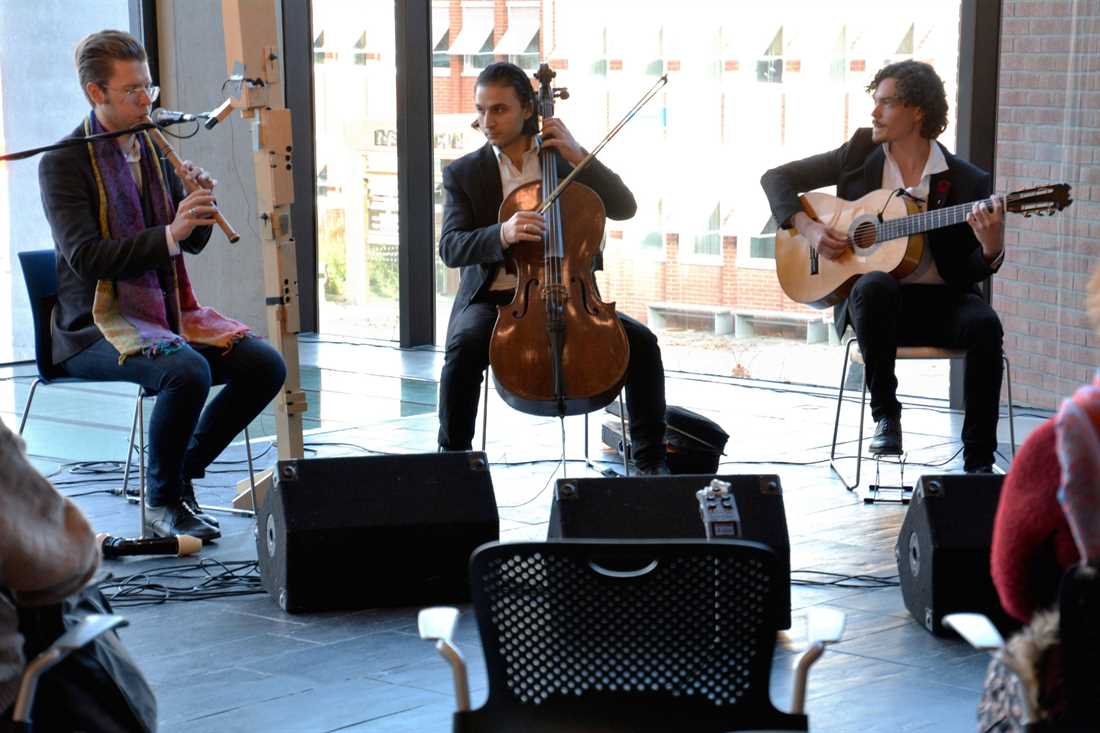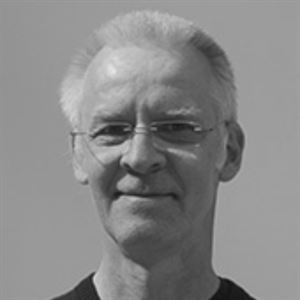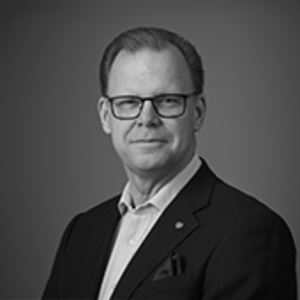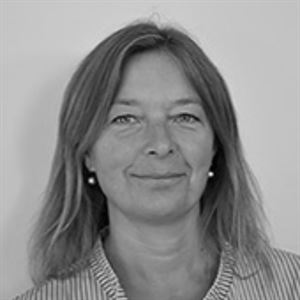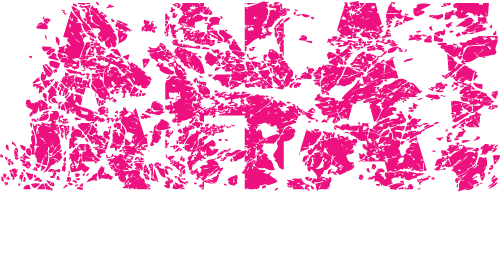
ART x SCIENCE
November 2-4 | 2015
‘Blessed be all metrical rules thatforbid automatic responses,force us to have second thoughts,free from the fetters of Self,’– from W.H. Auden's 'Epistle to a Godson'
Numbers
Numbers, a delightful net we cast over the world, a net that is non-human – and beautiful – because the net alone creates patterns and proportions and is a poiesis, “an action that transforms and continues the world”. Or is it the other way around, that the world is mathematical and in reality the net is woven into nature, woven by nature and therefore is found in sunflower seeds, seashells and mountain formations? How can we tell the dancer from the dance? Numbers and mathematical beauty seem foreign to us, but they also form the foundation of our actions and the buildings we live in and the thoughts we think. They may be enigmas, but in the meeting between art and science we catch a glimpse of numbers as an underlying element in our lives. Numbers are everywhere, they identify us, they know when we are born, and they know when we are going to die. Numbers are a system, like the alphabet, that grasps the ungraspable; gives form to chaos. St. Bonaventure wrote in the 13th century, “Since therefore, all things are beautiful and to some measure pleasing; and [since] there is no beauty and pleasure without proportion, and proportion is to be found primarily in numbers; all things must have numerical proportion.” Architecture determined by mathematics is an age-old idea, forgotten now and then but also, as now, returning. It can open a door into the beautiful world of numbers and make them tangible. The second AHA festival creates a platform for the meeting between math and architecture, art and science, in an attempt to make the world of numbers our world.
WHAT IS THE AHA FESTIVAL?
The AHA festival investigates the borders between art and science in a three-day event at the Chalmers University of Technology hosted by the Department of Architecture. An international festival intended to provide enlightening experiences, staging surprises, new thoughts and displaced perspectives that lead to alternative modes of thinking about the space between art and science. We invite scientists (physicists, historians, mathematicians, medical students), artists (dancers, musicians, painters, poets, chefs) and not least architects, who reside in these borderlands and wish to share their vision and work. The key intention is to celebrate both art and science as key knowledge building devices.
Program
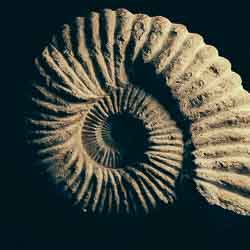
Day 1: Proportions
Monday | 2015-11-02
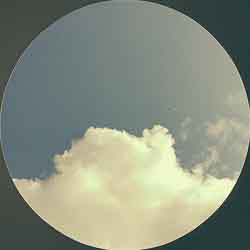
Day 2: Poiesis
Tuesday | 2015.11.03
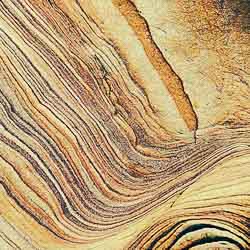
Day 3: Patterns
Wednesday | 2015.11.04
* All events are free of charge. / ** A SCHEDULE and MAPof the Campus can be downloaded. / ***The programme is subject to change
Cabinet of Numerosities
Astrid Grunnet, Sara Nässén
performance
ENTRANCE LOBBY ARCHITECTURE LIBRARY
Monday 9:30-10:00
Selected books have been placed on display at the Architecture Library on the festival theme - ‘Numbers.’ Tickle your curiosity, come take a peak and read through our cabinet of numerosities! Sara Nässén introduces us to the collection of selected books which will be on display in the architecture library, both in the weeks leading up to the festival and during the festival.
Seats: unlimited
Ett skepp kommer lastat. . .(a ship comes loaded)
Jonathan Geib
performance
entrance lobby
Monday 10:00-10:30 *
A ship comes loaded…: a Swedish children's game in which players recount, in accumulated succession, the imagined contents of an incoming ship. The metaphorical abundance and unknowability of the latter drive this cross-institutional, multi-disciplinary collaboration and PhD research case study on the theme 'neighbors'. A constellation of workshops with children explores indirect dialogues between neighbors via architectural interfaces and perspectival reversals of researcher and subject.
Seats: unlimited
Cecil Balmond - Numeric Frontiers
Tyson Hosmer (Cecil Balmond Studio)
seminar
A-SALEN
Monday 10:30-12:00
Cecil Balmond is widely considered to be one of the most significant creators of his generation, pioneering the crossover between advanced art, architecture and science. “My practice has the aim of traversing boundaries between mathematics, art, architecture and engineering; exploring new opportunities of complexity. An emphasis upon ‘diverse forms’ is at the heart of this investigation. It is an artistic approach embracing the history and memory of an area to evoke a ‘sense of place’, while enhancing a site’s unique characteristics in dynamic ways to spark imaginations.”
Seats: places limited to room size - first come first serve basis
PLEASE CLICK ON EVENT TO BOOK
An Affair with Numbers
Tyson Hosmer (Cecil Balmond Studio)
workshop
ATELIER RIGHT
Monday 13:30-16:30
Tyson Hosmer from Balmond Studio gives us a glimpse and try into the world of Cecil Balmond. A hands-on workshop into the systematic and aesthetic principles that lie behind Balmond’s visions. In the artist’s laboratory, how does one unlock the secret world of numbers as curiously and creatively as Enjil, the boy mathematician from Balmond’s book ‘Number 9 – the Search for the Sigma Code’ did?
Seats: limited places - please reserve
PLEASE CLICK ON EVENT TO BOOK
Loop Lab - an introduction
Rachel Wingfield
seminar
ATELIER RIGHT
Monday 9:00-9:30
Rachel Wingfield introduces us to her spatial laboratory, based in London, that creates responsive environments inspired by the study of living systems. Wingfield speculates on near and far future scenarios that explore emerging biological and technological futures by crafting space, technology and living materials into visionary experiences and environments.
Seats: places limited to room size - first come first serve basis
PLEASE CLICK ON EVENT TO BOOK
AHA! FESTIVAL OPENING with Performance: Gynosphere Experimental Circus: Bêta Test IX part 2
- Fredrik Nilson (Department Head) with the AHA team - Gynoïdes Project
performance
ATRIUM
Monday 12:00-13:00
In Bêta Test IX part 2 the objective is to explore new forms of artistic expression in circus art through the use of motion capture technology, enabling performers to interactively control computer-generated sounds by mean of their own body. By using real time sonic interaction we explore more complex multimodal relationship between music and circus performance; the enactive experience of the artist whose proprioception is enhanced by continuous embodied sonic feedback, can be perceived by the audience who can “hear” the artistic motion and “see” the sound. The project investigate ways in which the body may regain information about itself, a self-hacking of the body, retrieving elemental data about its functions. Used in this manner, interactive sonification, and related artistic practices, is tool to overcome the standardized traditional format of circus, re-invent choreographic methods and approaches to the art form.
CREDIT
Artistique Direction: Marie-Andree Robitaille. Circus Artists: Veera Kaijanen, Manda Rydman, Sarah Lett. Sound Designer: Niclas Lindgren. Supported by: Stockholm University of the arts, School of Dance and Circus, Kulturbryggan, Musikverket, Swedish art council, The city of Stockholm, Swedish art grants committee, Canadian council for the Arts. In collaboration with Riksteatern, Orionteatern. Produce by: CirkusPerspektiv Sweden.
http://www.cirkusperspektiv.se/
Seats: unlimited
PLEASE CLICK ON EVENT TO BOOK
Formalism
Johan Celsing
seminar
A-SALEN
Monday 15:00-17:00
The architecture of Johan Celsing is characterized by the straight forward design solutions and attention to craftsmanship. The practice has been highly appreciated for the ability to create contemporary architecture in contexts of historical value. The works have a restrained visual appearance that is combined with intense articulation of the spatial qualities, atmospheres and the material treatment of the buildings.
http://www.celsing.se/project_list.php
Seats: places limited to room size - first come first serve basis
PLEASE CLICK ON EVENT TO BOOK
Transit - A Swarm in 5 Acts (rehearsal)
Ingeborg Zackariassen & Toby Kassell + Linda Oláh (music), Anna Maria Orru + Jonathan Geib (producers)
performance
ATRIUM
Tuesday 9:00-12:00 *
performance: dance rehearsal * * rehearsal will also take place on friday 19-21:00 (10/30), saturday 14-18:00 (10/31/) sunday 14-18:00 (11/1) and tuesday 9-11:30 (11/3) See Transit for more info.
http://annamariaorru.com/Transit
Seats: unlimited
Transit - A Swarm in 5 Acts
Ingeborg Zackariassen & Toby Kassell (choreographers) + Linda Oláh (music), Anna Maria Orru + Jonathan Geib (research & production)
performance: dance
ATRIUM
Tuesday 12:00-13:00
This is a swarm dance written in five species acts; birds, ants, primates, bees and fish. Pan, the universal Greek God of nature, plays the paradoxical dual role, both creative and destabilizing. He inspires our use of the Panarchy model, used in resilience study, and evokes an image of unpredictable change that can also be observed in swarm behavior - a collective emergent behavior arisen from a simple set of rules without central coordination. This performance is a collaboration between ongoing PhD artistic research (Geib & Orru), contemporary dance (Zackariassen & Kassell) and sound (Oláh), inspired by a simple embodied symphony of repetition and bodies. The swarm body also includes Chalmers students!
(a) space revisited / Transit
Linda Oláh / Jonathan Geib
Seats: unlimited observation. However, we need a swarm body to perform with us! We are looking for committed individuals who would rehearse and train for the swarm performance with the professional dancers. Rehearsals will take place for a couple hours on friday 19-21:00 (10/30), saturday 14-18:00 (10/31), Sunday 4-18:00 (11/1) and the day of the performance 9-11:30 (3/11). This is an exceptional opportunity! Please contact orru@chalmers.se with your desire to participate in Transit.
PLEASE CLICK ON EVENT TO BOOK
Re-enactments - Archival Performances (a 24 hour research performance event)
Living Archives Research Group
performance
ATELIER RIGHT
Tuesday 10:00-10:00+1
Artistic research - Transposing the familiar poetic conundrum of how to separate the dancer from the dance: what if we choose not to separate the archive from its re-enactment? If poiesis can be seen as actions that transform and continue the world, and if numbers are constraints within which it is possible to find space and meaning, then what might happen in 24 hours of archival re-enactment?The ebb and flow of somatic states are at the heart of this research experiment, and it is a research experiment and not just a endurance performance because we propose to spend 24 hours in a studio reviewing, processing, and then re-enacting archival traces from last year’s AHA festival.
Seats: OPEN CALL TO FILL 3 ADDITIONAL PLACES: If you want to join the Living Archives group for the entire 24-hr period of experimental performance, please contact elisabet.nilsson@mah.se with a statement (max 500 words) by 21 October indicating why you would like to participate. We will notify you of acceptance by 25 October.
PLEASE CLICK ON EVENT TO BOOK
Tissue-engineered scaffolding
Amy Congdon
seminar
A-SALEN
Tuesday 10:30-12:00
Amy Congdon presents her work and ideas behind tissue engineering and the idea of mimicking corporeal structures. She uses different textile techniques and structures because their ability to mimic natural structures found within the human body; exploring how centuries old stitches can be utilised in cutting edge sciences. Congdon experiments with methods of growing skin and bone cells onto textile scaffolds, looking at seamlessly integrating textiles with the body. She queries how textile techniques can inform new approaches to growing our future materials and products.
Seats: places limited to room size - first come first serve basis
PLEASE CLICK ON EVENT TO BOOK
Devices of Atmosphere: take a write on the dance floor
Morten Søndergaard
seminar and workshop
ATELIER LEFT + ATRIUM
Tuesday 13:30-17:00
In Italian the word ‘stanza’ signifies both a room and verse; Poet Morten Søndergaard invites you to participate in the making of a museum piece for Brandts - the Danish contemporary museum of art in Odense – set to take place in early 2017. It will be a piece dealing with how words can compose a floor, and therefore their potential to create architecture and space. In the introduction seminar, Søndergaard presents his work on words and architecture. In the hands-on workshop, we explore writing as a device in investigating various materials to create new function and form.
Morten Sondergaard / wordpharmacy
Seats: limited places
PLEASE CLICK ON EVENT TO BOOK
Breidablik - Memorised Light PREMIER!
Johan Oettinger
performance
ATRIUM
18:00-18:15
Animation poem - PREMIER!
‘He dwells in the place called Breidablik, which is in heaven; in that place may nothing unclean be, even as is said
here: Breidablik 't is called,
where Baldr has
A hall made for himself:
In that land
where I know lie
Fewest baneful runes’.
(from - Gylfaginning XXII, Brodeur's translation)
Images were captured in the western part of Denmark, rediscovering a vast landscape of lit dunes and moor on the shortest night of the year. This is a visual poetic animation inspired by Norse mythology.
CREDITS (for Film + Music)
Film
Directors: Johan Oettinger & Theis Mølstrøm Christensen
Producer: Mathias Bruunshøj Jakobsen
Music
Music: Lars Greve "
Seats: unlimited
Poetry Evening ‘vem som helst & riktiga poeter’ - Numbers generating words
- Morten Søndergaard on Inger Christensson - Helena Eriksson and/on Unika Zürn - Chalmers Staff and students
poetry
ATRIUM
Tuesday 18:00-20:00
"Poiesis is the Greek word for making in a wider sense, an action that transforms and continues the world. And this is of course, the root of poetry! Continuing on a yearly tradition, we devote one evening a year to ‘Poems and Poetry,’ in which the spoken word comes to the fore.Poetry, one of the classical art forms, must absolutely be given close consideration to in architecture allowing creative urges to be expressed in as many diverse ways as possible. Desire, joy, and sorrow - life dressed in words. The evening invites established poets – in presence Helena Eriksson and Morten Søndergaard, with animator Johan Oettinger, and in spirit Inger Christensson and Unika Zürn, who demonstrate the power of poetry – in animation, in words, in numbers, and in form."
Morten Sondergaard / WIREDFLY
Helena Eriksson / Inger Christensen/
Unica Zürn
Seats: unlimited
PLEASE CLICK ON EVENT TO BOOK
Re-enactments - FINALE
Living Archives Research Group
performancecompoasa
ATRIUM
Wednesday 9:00-10:00
Artistic Research - Improvisation works best with carefully selected constraints. The constraints of the 24 hours within one room and a focus on archives of previous festival research constitute a sort of time travel: immanently into the phases of the bodies of a group of people as we open up and re-enact the research traces of other bodies through our current temporalities. This is a form of somatising research, of slipping in and out of phases and transforming materialities. We don’t just appropriate or repurpose the research of others, we let the research act upon us, and then cultivate re-enactments. Our group comes from a range of conceptual and practical fields: design, art, literature, cultural studies, art history, philosophy, as well as dance and performance. Our re-enactments may take many forms and materialities.
Seats: unlimited observation. However, Three (3) additional places are open to those who might want to join us in this re-enactment, bringing the total of re-enactors to twelve (12). Please contact susan.kozel@mah.se with a three (3) line statement of why you would like to participate.
Numbers, Bodies, Complexities
Jonny Axelsson and Anders Hultqvist
performance: music
ATRIUM
Wednesday 10:00-10:40
"A concert lecture with Jonny Axelsson and Anders Hultqvist Numbers, Bodies, Complexities and Inger Christens form(ula) for creation: Novalis: Space is persisting time – […] time – the basis of all that is changeable. Space is the schema – time the concept – the (genesis) of this schema. Fragment [III, 427, #809] Musical and textual compositions by Iannis Xenakis, Kevin Volans and Anders Hultqvist
Jonny Axelsson / Anders Hultqvist
Seats: unlimited
PLEASE CLICK ON EVENT TO BOOK
Music of the Spheres
Nils Bergvall
seminar
ATRIUM
Wednesday 10:40-11:10
In Sappho's poetry, in Kandinsky's paintings or in Tarkovskij's films, one can sense a wish to establish a personal relationship to our universe through the art. Even more direct is perhaps the musical expression of cosmic phenomena and laws. The ancient idea of Music of the spheres is based on the notion that celestial bodies relate to each other in a way that can be described in mathematical terms, resulting in harmonic resonances or patterns than can be turned into music. But today we also have the opportunity to listen to the voice of the cosmos itself - sounds from the sun, the planets, the black holes and even the rhythms of the Big Bang. We sing and listen. But what is the deeper meaning of music? Is there one? Many people feel that strong musical experiences are directly related to our cosmic origin. Why is this so? What is our brain telling us? Could music be a link between our conscious perception of the universe and something more fundamental?
Institutionen för fysik och astronomi
Seats: unlimited
PLEASE CLICK ON EVENT TO BOOK
Re-composing Space (rhythm, body, complexity & Music of the Spheres)
Jonny Axelsson, Anders Hultqvist, Nils Bergvall (Moderator: Morten Søndergaard)
discussion
ATRIUM
Wednesday 11:10-12:00
Amplitude, volume, ambiance, spheres, composition, rhythm, complexity – words crossing both sound and space. What is the relation between them? and how does space sound, and in return, how does sound make space? Poet Morten Søndergaard leads us in a discussion with an astronomist, composer, percussionist, sound poet, and cellist about the re-composition of space as we know it. This discussion is a follow-up to the performance by Jonny Axelsson with Anders Hultqvist, and discussion by Nils Bergvall.
Catharina Dyrssen / Urban Sound Institute
Seats: unlimited
PLEASE CLICK ON EVENT TO BOOK
Re-enactments - a recap
Susan Kozel from Living Archives Group
discussion
ATRIUM
Wednesday 13:00-13:15
Susan Kozel, dancer and director of the Living Archives Project Group, adds further insight into the 24 hour archival performance approach. She discusses the radical device of using such long-term performance for artistic research, for example inspired by artist groups such as British Theatre group 'Forced Entertainment' and French dancer/choreographer 'Boris Charmatz.'
Seats: unlimited
Raumlaborberlin and ONOFF
Samuel Carvalho
Seminar
TBD
Wednesday 16:00-18:00
In parallel with the AHA festival we are delighted to have Samule Carvalho from Raumlaborberlin and ONOFF, comes and speaks about their work. Raumlaborberlin are a collective network of architects who work collaboratively in the intersection of architecture, city planning, art and urban intervention. Their practice looks into “research-based design,” initiating processes that give local actors the opportunity to know, understand and use the city and its dynamics, as well as its possibilities. Raumlaborberlin works in the field of urban interventions, transforming urban spaces into something completely different, moving programmatic narratives into urban spaces, installing new atmospheres and creating a sense of renewed potential. Carvalho's talk will mainly be focusing on the Den Allmänna Bastun project in Jubileumsparken Frihamnen and other fun topics such as; shared authorship, amateur professionals, mobility, the 60´s heritage, saunas, Do-it-together, mash-ups, resilience, hoarding materials, street life, collectives, video art and more…
Seats: places limited to room size - first come first serve basis
Speakers / Performers
Jonny Axelsson
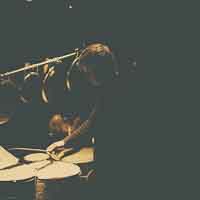
Jonny Axelsson has achieved great recognition worldwide and has been praised by music critics for the depth and dimensions in his interpretations. Andrew Clements in The Guardian wrote: ”There is nothing flamboyant or fussy about Axelsson, he just goes about his tasks with dazzling musicianship”, Roger Thomas in The International Record Review: “Axelsson´s playing is fluid, organic and highly textured - in short, simply superbly musical” and Anna Picard in the Independent: ”I mean no disrespect to other percussionists when I say that Axelsson is the most extraordinary drummer I have seen”.Jonny Axelsson received his education at The University of Music in Gothenburg and was already then very active as a chamber musician and soloist, which laid the foundation for the personal and distinctive attitude his musicianship stands for today. He has introduced historical Percussion music to the Swedish scene, for instance, the solo works by Iannis Xenakis and by Kevin Volans, and by being one of the leaders and initiators of the first Swedish concert production of “Drumming” by Steve Reich. In 2004 he received the “Swedish Composers Association’s Interpretation Award” with the following commendation: “With a tremendously good spirit and outstanding musicality he has found a place in our hearts and remained there.”Jonny Axelsson has performed all over the World and collaborated with composers such as Kevin Volans, Unsuk Chin, Christopher Fox, Christian Wolff, Karin Rehnqvist, Johannes Fritsch, Leilei Tian and Anders Hultqvist. He is featured on numerous recordings as a soloist and chamber musician. His solo album "Percussione Con Forza" was chosen by the International Record Review as "the best contemporary music CD of the year 2000", and his recordings of Zyklus and Kontakte by Karlheinz Stockhausen was praised by Karlheinz Stockhausen himself, and by György Ligeti. He has released a CD with solo music by Kevin Volans on his own label, which received overwhelming reviews internationally.
Cecil Balmond
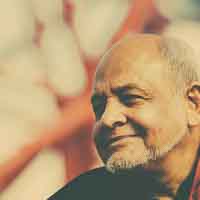
Cecil Balmond OBE is widely considered to be one of the most significant creators of his generation. An internationally renowned artist, architect and engineer, Balmond is known for making the impossible possible on some of the world’s most stunning design projects pioneering the crossover between advanced art, architecture and science.His approach is one of investigation and draws on over 40 years of research into emergent form, space and structure. Inspired by nature and the underlying pattern residing within it, Balmond’s works range from architectural icons to masterplans and massive public art. He is author of the book ‘Number 9 – the Search for the Signma Code’, which takes us into a mysterious realm, unlocking a secret world of numbers through Enjil, the boy mathematictian.Tyson Hosmer will be representing Balmond Studio at the AHA festival. Balmond Studio is an international research-led practice of architects, designers, artists and theoreticians run by the world’s leading thinker, Cecil Balmond, on form and structure. He states:“My practice has the aim of traversing boundaries between mathematics, art, architecture and engineering; exploring new opportunities of complexity. An emphasis upon ‘diverse forms’ is at the heart of this investigation. It is an artistic approach embracing the history and memory of an area to evoke a ‘sense of place’, while enhancing a site’s unique characteristics in dynamic ways to spark imaginations.”
Nils Bergvall
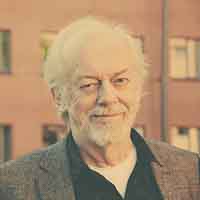
Nils Bergvall is a professor emeritus of astronomy at Uppsala University. His major field of research is the evolution of galaxies, in particular ”starburst” galaxies. These are galaxies involved in an intense production of young stars, often caused by collisions and mergers between galaxies. As a base of his research Bergvall has collected data from large groundbased observatories and space telescopes. In collaboration with artists and science colleagues Bergvall has also participated in several projects exploring the links between art/music and science and how we percieve the universe. Among the topics adressed has been creativity, the concept of time, the eastethics of cosmic phenomena, life anD consciousness.
Claes Caldenby
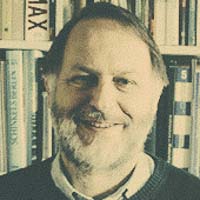
Claes Caldenby's research focuses on more recent architectural history, especially postwar Swedish architecture. He has published over 60 books and 600 articles on a wide range of topics. He teaches at Chalmers school of Architecture courses on 20th century architectural history, building on the prior history of contemporary architecture and architectural theory. Since 1977, he was one of the editors for the journal Architecture and continues to regularly write architectural criticism there and in daily newspapers. Has a wide network of researchers and architects both in Sweden and internationally.
Elena Carlini
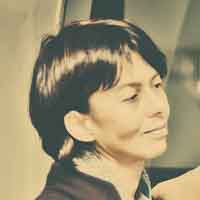
Elena Carlini, graduate of the Venice School of Architecture and Columbia University in New York as a Fulbright Scholar, collaborating with offices of Emilio Ambasz and Davis & Brody in New York, and Richard Meier in Los Angeles. She teaches internationally as; visiting professor at Syracuse University NY and Firenze, and at the University of Texas in Austin. her current position is at the Graduate School of Architecture in Ferrara. Carlini is also one of the four critics at the International Architectural Quartet during the Architecture World Congress in Berlin, and has lectured and published internationally. In 1998 she co-founded Carlini & Valle, an architectural office in Trieste with projects both in Italy and the United States, in which she continues to work. The office has co-curated and designed various exhibitions on architecture, urbanism and contemporary art.
Johan Celsing
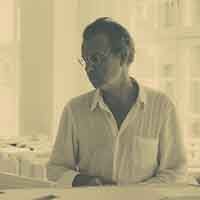
Johan Celsing is the principal of Johan Celsing arkitektkontor. He is one of the leading Swedish architects today, winning the Kasper Salin prize twice for Millesgården art museum 1999 and the new Woodland cemetery crematorium 2013.Celsing was born in Stockholm where he is professor of Advanced Design at the School of Architecture at the Royal institute of Technology. He has been invited as critic and lecturer to numerous international universities and architecture schools such as London Met, Madrid ETSAM, Harvard GSD, Lima Univ. Catolica, Academ, Mendrisio.Celsing is an elected member of the Royal Swedish Academy of Sciences as well as a member of the Royal Swedish Academy of Fine Art.
Peter Christensson
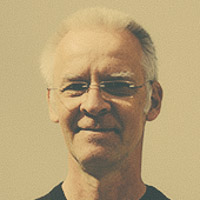
Artist, musician and lecturer at the department of architecture at Chalmers university of technology. Main interest is what is to be found in the corner of the eye in art as well as life.
Amy Congdon
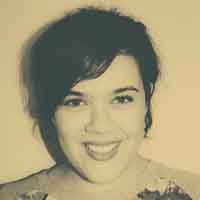
Amy Congdon is a freelance researcher, designer and critical thinker who explores the boundaries between science, technology and design. In her work Amy is driven to explore the crossovers between textile craft and tissue engineering, through a highly experimental and research driven practice. She has worked within laboratories with existing life science technologies, in particular tissue engineering, to further her research and understanding of the current capabilities of these technologies. Amy has exhibited and presented her work internationally in venues such as EDF Fondation Paris, Salone De Mobile Milan, Microsoft Seattle and the Victoria and Albert Museum London. She has worked as Acting First Tutor for the MA Material Futures course at Central Saint Martins, and is currently undertaking a part-time PhD with the Design and Living Systems Lab at Central Saint Martins in collaboration with the Biomaterials, Biomimetics & Biophotonics department at Kings College London. http://www.amycongdon.com
Catharina Dyrssen
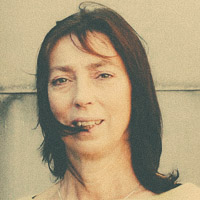
Catharina Dyrssen is an architect and musicologist, PhD and tenure professor in Architecture and Design Methods at the Department of Architecture, Chalmers. Since her PhD thesis Musical Space: Metaphors, rituals, institutions (1995), her research covers three main themes: artistic and design based research methods; design thinking in urbanism, planning and public space; and various intersections between architecture, music, urban space and sound. She has long experience of teaching architectural and urban design at master level and of supervising doctoral students. Catharina Dyrssen has been part of the art-based, interdisciplinary research group Urban Sound Institute (www.usit.nu), and has recently published the book Sound and Other Spaces, a popular summary of sonic experimental work. She is currently Head of the Committee for Artistic Research in the Swedish Research Council.
Helena Eriksson
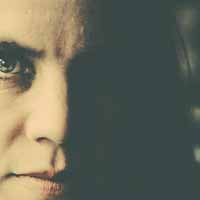
Helena Eriksson (b.1962) is a poet and translates poetry and prose from French, English and German. She lives in Gothenburg. During the 90s she was on the editorial board of the review Ord & Bild and subsequently on the one of OEI. Since 1990 she has published ten books of poetry, the latest one Täthetsteoremet (2012). In 2015 appeared the essay Någon syr, är det du? En bok om Unica Zürn och Hans Bellmer [Somebody is sewing, is it you? A book about Unica Zürn och Hans Bellmer], and two volumes with translations of Zürn and Bellmer. She has performed together with Swedish artist Marina Ciglar, sometimes with a life size, speaking Doll, a copy of Eriksson herself. Together with Swedish poet and artist Beata Berggren she has made a typeface, heata-beana, which has also been used for live writing. Furthermore, she has been a guest teacher and tutor at the school Literary Composition [Litterär gestaltning] in Gothenburg.
Jonathan Geib
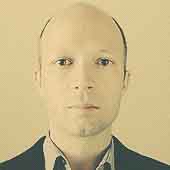
PhD Candidate, Urbanist and ArchitectJon Geib is an urbanist and architect whose doctoral work explores the potential of multivocality in the designer's engagement with the city, in view of the themes of dialogue, participation and public space. The aim is to reorient concern along hybrid cultural, artistic and activist trajectories, towards values in processes as well as transformative results. Poetic frames, speculative urban designs and experimental prototypes for public policy act as 'dialogical infrastructures' geared to animate a cosmopolitan public culture.
Groovy Food
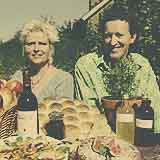
Groovy Food AB is inspired by their love and passion for all things food and catering! They follow a simple philosophy using the best ingredients, ecological produce when possible, (ALLWAYS freee range eco-eggs as we love happy chooks!) and embrace the best of seasonal local produce with lots of fresh herbs and vegetables. Combine this with their love of exotic tastes from the four corners of the world, add vibrant colours and healthy produce and this is what led them to create Groovy Food AB.
Gynoïdes Project
.jpg)
Gynoïdes Project is an artistic operation that raises and examines the question of women agency in circus art.The project engages in a female-centred circus making and seeks to describe and produce feminist strategies in circus composition.Gynoïdes Project interacts with educational and research institutions, with organizations and members of the circus community, and with contributors from scientific and artistic fields.Gynoïdes Project is an evolving participatory initiative that uses dialogues, art projects and artistic led research to analyze the question of women in circus art, how it can be understood and transformed. www.cirkusperspektiv.se
Marie-Andrée Robitaille
Marie-Andrée Robitaille is a circus artist, she is currently senior lecturer in circus and head of the bachelor of art in circus at the school of dance and circus in Stockholm, Sweden. She is also the Founder and Artistic Director of Gynoïdes Project. In 1998 she tour the world as an acrobat with Swedish contemporary circus company Cirkus Cirkör, introducing her work on the Chinese pole, a discipline that was then practiced only by men. Through the year she has worked as a circus performer, artistic counselor, instructor/pedagogue, stuntwomen, producer and talent scout for Canadian Circus Company Cirque Du Soleil. In 2011 she found Gynoïdes Project a multilayered project that address the representation of women in circus art. She now conducts researches on the agency of women in circus and on modes of composition in circus arts at Stockholm University of the Arts. Her latest work in collaboration with the sound and music computing team at the Royal Institute of Technology explore new forms of artistic expression in the circus art through the use of motion capture technology, enabling performers to interactively control computer generated sounds by means of their own body. Marie-Andrée has curated two editions of the Women in Circus Consortium, an occasion to meet and discuss feminist thinking in circus art. After directing the Bêta Test, a series of experimental circus pieces that has been performed internationally, she is now working on a full length contemporary circus show entitled GYNOÏDES to premiere in January 2016 at Orionteatern one of Sweden’s most avant-garde stage.
Tyson Hosmer
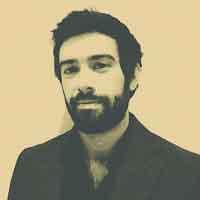
Tyson Hosmer is a senior designer, software developer and researcher director at Balmond studio with extensive experience working on international projects in the United States, Europe, the Middle East, and Asia across many scales and typologies. As a senior designer at Balmond studio, Tyson is responsible for the development and execution of architectural initiatives and computational research set out by Cecil Balmond. He is an expert in complex geometry resolution and fabrication through computation. Prior to Balmond Studio, Tyson worked for 3 years in New York and Dubai for Asymptote Architecture, an internationally acclaimed design studio. His work specializing in complex geometries led to the realization of several projects including the Yas Island Marina Hotel in Abu Dhabi as well as winning proposals for several international competitions. Tyson has taught design studios and technical courses at the Architectural Association Design Research Lab and Emergent Technologies Masters programs. He has lectured and taught workshops in several cities across Europe and the United States.
Anders Hultqvist
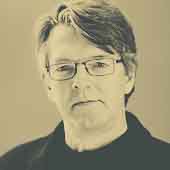
Anders Hultqvist is a Composer, Sound artist, Phd and Professor of Composition at the Academy of Music and Drama, University of Gothenburg. Besides writing for different Orchestral-, Chamber music-, Electroacoustic and Sound art settings, he has since 2005 been involved in different artistic research projects concerning musical interpretation and sound in city spaces. He was also one of the founders of the GAS-festival (Göteborg Art Sounds) and also served as its director during the period 1998-2004.
Toby Kassell
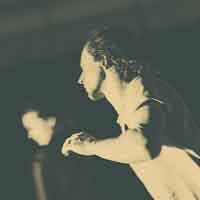
Toby Kassell is a British born dancer/choreographer who is currently based in GöteborgOperans Danskompani. Outside his responsibilities within the institution he pursues his own creative work within the city of Göteborg. After completing a 7 year classical training at the Royal Ballet School in London he has endured a 22 year long performing career, transitioning to contemporary practise in 1999, which has spanned 7 theatres in 5 countries spread across 3 continents. His individual creative work is aimed at collaborating with other extended art forms with the interest of finding common ground between artistic discourses, working predominantly with improvisation structures and spacial composition. His latest works include “Solo for Multiple Self” (3e Våningen 2014) “The 2 Headed man” (a 10 min play inside the program “Suburbia” GöteborgsOperan 2015) and an upcoming collaboration with composer Johan Jutterström titled “Barren” which will premiere December 4, 2015 at 3e Våningen in Göteborg.Photo credits: Jubal Battisti
Susan Kozel
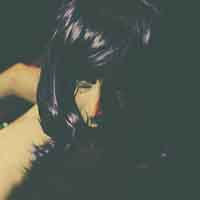
Susan Kozel combines dance and philosophy in the context of new media: in other words she works with bodies, ideas and technologies. She has a PhD in Philosophy from the University of Essex, UK (1994), and a long history of various movement techniques (from ballet to butoh) but currently works primarily with phenomenology as a methodology and improvisation and a movement practice. Susan is now happy to start her permanent position as a Professor of New Media at MEDEA Collaborative Media Initiative, Malmö University.She has taught for a range of university programs in the UK and North America (Dance, Philosophy, Interactive Arts, Digital Media) and. She balances her academic life with professional artistic practice at the convergence of dance and digital technologies as the director of Mesh Performance Practices. She has published widely and performed internationally. Current work includes collaborating with dance scholars and artists Leena Rouhiainen and Mia Keinänen on the Intuition in Creative Processes initiative based at the Theatre Academy in Helsinki. Other research areas include the interdisciplinary consideration of bodily expression in electronic music, and the articulation of an embodied methodological basis for artistic research. She is also coordinator of the Living Archives Research Group at Malmö Högskola.(See Living Archives Research Group text)
Anja Lechner
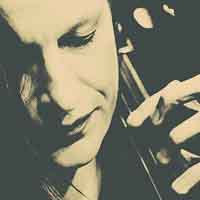
Anja Lechner, born in Kassel, Germany, studied with Heinrich Schiff and Janos Starker. She has performed as soloist with orchestras including the Tallinn Chamber Orchestra, Amsterdam Sinfonietta and Armenian Philharmonic Orchetra and plays chamber music with partners including pianists Alexei Lubimov and Silke Avenhaus, violinist Patricia Kopatchinskaja, and clarinetist Reto Bieri. cellist Agnès Vesterman. Anja Lechner has premiered compositions by Tigran Mansurian, Valentin Silvestrov, Tõnu Kõrvits and Annette Focks amongst others. For 18 years she was the cellist of the Rosamunde Quartet, whose acclaimed ECM New Series recordings embrace a scope of music from Joseph Haydn to Thomas Larcher. The range of Anja Lechner’s artistic endeavours is exceptionally broad: at home in all aspects of classical music, she is also fluent in diverse improvisational traditions. She has a long-running collaboration with post-tango bandoneonist Dino Saluzzi, works with the Tarkovsky Quartet, on the group Il Pergolese including singer Maria Pia de Vito, and plays with pianist François Couturier in music drawing freely upon the compositions of G.I. Gurdjieff, F. Mompou and Anouar Brahem. Image by Jan Kricke. http://www.anjalechner.com
Johan Linton
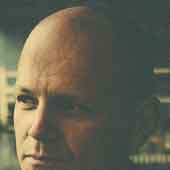
Johan Linton is an architect, designer, teacher and researcher. He has a Masters Degree in Architecture, a Masters Degree in Engineering Physics and a Licentiate Degree in The Theory and History of Architecture. One of his main fields of study is the works and theories of Le Corbusier and he has been invited speaker at the “Rencontres de la Fondation Le Corbusier. He has published a large amount of texts on the Swiss-French architect. He is currently working on a comprehensive dissertation on Le Corbusier´s theories of architecture.Johan has also a research interest in the classical History of Architecture and has published text on both the French and Italian renaissance and baroque architecture. For example he edited the only Swedish published contribution on Andrea Palladio in relation to the 500 years celebration of his birth in 2008. He is also interested in contemporary architecture and published a major study on the Swedish architects Bolle Tham and Martin Videgård at Birkhäuser in 2011. He has also published various texts on the Swedish architect Gert Wingårdh, and texts on international architects such as Peter Eisenman, Rem Koolhaas and Enric Miralles.Johan runs his own practice as an architect and designer, and his furniture has been published and exhibited in Sweden and abroad. He has also created – together with the chief editor Per Magnus Johansson – the Swedish cultural review Arche (2002 – 2010 Psykoanalytisk Tid/Skrift). From the beginning Johan has been a member of the editorial board and responsible for layout and production. He has contributed with texts and translations on architecture, design and art in each issue since the start in March 2002.JL has received awards both for his scientific and artistic work, his works are present in the collections of the Röhsska Museum of Design in Göteborg, Sweden, of the Malmö Museum of Art, Sweden, and of the Kunstindustrimuseet, Copenhagen, Denmark.
Living Archives Research Group
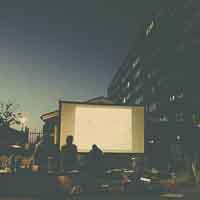
The Living Archives Research Project (http://livingarchives.mah.se) is located at Malmö University and pursues two research trajectories (Performing Memory and Open Data) over the course of 4 years of scholarly research, artistic practices, and design interventions. Funded by the Swedish Research Council’s (Vetenskapsrådet) Digitized Society initiative, the 10 researchers associated with the project confront difficult questions of access, inclusion, and transformation of cultural heritage archives in the face of increasingly networked and mobile technologies. The line between a personal and a cultural archive is fragile, as are those between digital and analogue, mobile and static. Research methodologies for such a complex project of necessity weave the analytical with the practical/creative, they include participatory design, artistic research, philosophical investigation and cultural critique.The Living Archives group (7 people)Maria Engberg (Digital experience designer and Malmö University assistant professor of media technology exploring the poly-aesthetics of multiple media forms)Susan Kozel (Dancer, philosopher and Malmö University K3 professor unraveling complex embodied relations with digital technologies and their scope for either affective expansion or repression)Nikita Mazurov (Post Doctoral researcher with Living Archives interested in the intersection between information dissemination and security, exploring how we can share digital objects safely)Elisabet Nilsson (Interaction Design researcher and assistant professor at K3 exploring how urban archiving practices re-connect with past knowledge and spark the imagination for urban futures)Temi Odumosu (Art historian, storyteller, archival detective: De-colonising research and cultural practices. Post Doctoral researcher with Living Archives.)Jacek Smolicki (Artist, designer and doctoral researcher interested in personal archiving practices and digital legacy in the age of total traceability.)Veronica Wiman (Curator of contemporary art and visiting researcher contributing to archival re-enactments a site specific intervention of ‘curating the archive’)Invited artists (2 total)Sarah Homewood (Dancer and K3 Interaction Design Masters student developing performative methods to explore how we represent ourselves through technology)Frida Sandström (Artist, writer and critic enrolled in the MA programme New Performative Practices, DOCH, approaching alternatives for shared spaces and states of boundaries)
Jana Madjarova
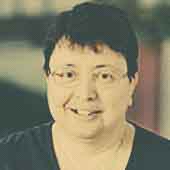
Professor in mathematics, Mathematical Sciences at Chalmers University of Technology. She holds a PhD in Partial Differential Equations. She is the Programme Director for Engineering Physics at Chalmers, and also the president of the Swedish Mathematical Olympiad, at the Swedish Mathematical Society.
Fredrik Nilsson
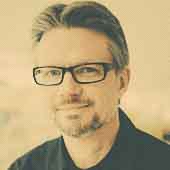
Fredrik Nilsson is architect and professor of Architectural Theory at Chalmers, where he leads the strong research environment ‘Architecture in the Making’ in a national collaboration between the schools of architecture. He is also Chief Research Strategist at White Arkitekter, where he was Head of Research and Development 2007-2014.. Nilsson’s research is directed to developments in contemporary architecture, architectural theory and philosophy with special interest in the epistemology of architecture and interaction between theory, conceptual thinking and design practice. Important aims are contributions to reinforced exchange between research and architectural practice.
Johan Oettinger
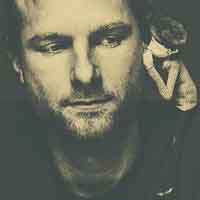
Johan Oettinger, is a self-taught prize winning film director – his speciality is stop-motion puppet animation. From he was 13 years old he has made animation and live-action films. His first professional film, SEVEN MINUTES IN THE WARSAW GHETTO (2012), has been shown at more than 200 festivals and won many prices, including Special mention in Annecy, France. And the Kingbonn award, the biggest short film festival in China. WALK WITH ME, directed together with Ugandan director Peter Tukei Muhumuza in 2014 is still traveling to festivals all over the world. Parallel with his Danish film institute and Danish art-council supported projects, Johan directs films for Lego, music videos for Copenhagen Records and consults in numerous animation contexts. His studio was established in 2006, located in Aarhus, Denmark, where Johan creates all of his works, from conceptual video art to Lego commercials.Johan Oettinger, is a self-taught prize winning film director – his speciality is stop-motion puppet animation. From he was 13 years old he has made animation and live-action films. His first professional film, SEVEN MINUTES IN THE WARSAW GHETTO (2012), has been shown at more than 200 festivals and won many prices, including Special mention in Annecy, France. And the Kingbonn award, the biggest short film festival in China. WALK WITH ME, directed together with Ugandan director Peter Tukei Muhumuza in 2014 is still traveling to festivals all over the world. Parallel with his Danish film institute and Danish art-council supported projects, Johan directs films for Lego, music videos for Copenhagen Records and consults in numerous animation contexts. His studio was established in 2006, located in Aarhus, Denmark, where Johan creates all of his works, from conceptual video art to Lego commercials.
Urtė Oettinger
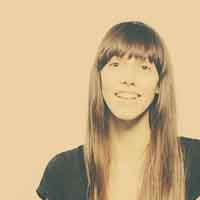
(b. 1985) - Lithuanian animation director, the graduate from The Estonian Academy of Arts. In her creative work Urtė experiments a lot with different animation techniques, including stop motion, rotoscoping, hand drawn and painted animation. Urtė is a member of Lithuanian Film Academy and Danish Animation Union. At the moment, Urtė lives and works in Denmark. wiredfly.dk
Linda Oláh
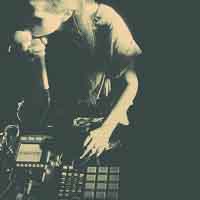
Linda Oláhs work consists of several artistic lines where her solo-/ensemble music and her collaboration with dancers represent the heart of her creative projects. Her solo work for voice/electronics began as an attempt to explore the depth and vulnerability of a single voice. Each improvisation and composition derives from the acoustic voice, some of the compositions also remain aucoustic while others are extended with electronics. She contextualizes and superimposes sounds, sometimes objectively, unsentimentally, sometimes emotional and dreamy. Her improvisations and compositions represent everything from soundscapes to manically repeated words and sentences. At times she allows for the music to float away, at others; it strikes right through the core of the sensuous reality surrounding us. Over the past three years, Linda Oláh has collaborated closely with dancers’ Ingeborg Zackariassen and Toby Kassell. They have performed together in several different forms, beckoning to explore and investigate the interaction between music and dance.http://www.lindaolah.com/
Anna Maria Orru
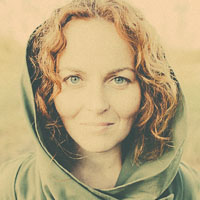
The foundation of Anna Maria Orru’s work is embedded in biomimicry, natural system design, food and in curating research, providing an innovative approach in the field of sustainable design, art, urbanism and architecture. She behaves as a connective tissue, working in the interstitial spaces between disciplines by bringing a variety of diverse disciplines and talents to the table to creatively tackle issues around climate change. Her projects, and ongoing phd research at Chalmers, cover the distinct topics of food, architecture, bodily engagement, senses and urbanism, explored through the study of organoleptic qualities in urban foodscapes as a way to explore food systems on both the macro and micro levels. www.annamariaorru.comImage: Tina Axelsson
Jonas Rasmussen
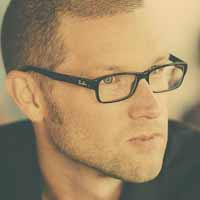
Jonas Rasmussen (b. 1975) works as a translator of Danish literature and has translated several reputable poets, including Morten Søndergaard, Pia Tafdrup and Søren Ulrik Thomsen. He has also compiled the anthology Nervsystem – ung dansk poesi (Nervous System - young Danish poetry) published in Swedish in 2015 (ellerströms). Rasmussen is also a writer and has published five books, of which three under pseudonym. Most recently released, the conceptual poem Det hemska vi har gjort (The terrible things we have done, Trombone, 2015). He holds MA degrees in Comparative Literature and in Creative Writing from Lund University, and has worked as a teacher in Creative Writing at Kristianstad Högskola.
Foto: Lars Gundersen www.lars-g.dk
Raumlaborberlin
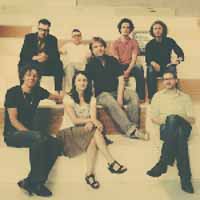
Raumlaborberlin are an experimental architectural practice based in Berlin - There was once a society that believed the future would bring better living conditions to everyone. There were people, utopian thinkers, who thought about the big questions of the city. Today only a feeling remains, half desire, half melancholy, reminiscing of those architects who wanted to live in a better society and who had dreamed of better places. Such an era is now over. Here begins Raumlaborberlin’s work. Raumlaborberlin is a network, a collective of 8 trained architects who have come together in a collaborative work-structure. They work at the intersection of architecture, city planning, art and urban intervention. http://raumlabor.net/
Morten Søndergaard
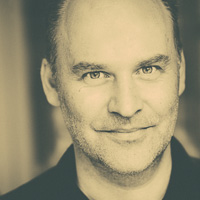
Morten Søndergaard (born 1964) is a critically acclaimed poet and artist, and since his debut in 1992, he has published a substantial number of poetry books, translated several works by Jorge Luis Borges into Danish. Søndergaard’s explores the various collisions between meaning and materiality has resulted in extra-linguistic works that span sound art, artists books, asemic writing strategies and performance. Søndergaard's versatile oeuvre is perhaps best described as a long flickering walk within language, a search into its corners, edges, vantages and points of observation. In an organic manner the works expand into other genres and media over time. Morten Søndergaard's works have been translated into a large number of languages, he has exhibited throughout Europe and has received several literary awards, most recently the Danish Art's Council life-long grant. Morten Søndergaard lives and works between Paris and Pietrasanta. http://mortensondergaard.net
Rachel Wingfield
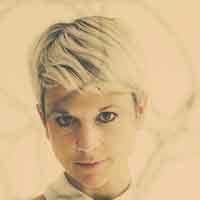
Rachel Wingfield is founder and creative director of Loop.pH, the spatial laboratory that creates responsive environments inspired by the study of living systems. Wingfield speculates on near and far future scenarios that explore emerging biological and technological futures by crafting space, technology and living materials into visionary experiences and environments. A frontierswoman for a new field of design, one where designers intervene on an urban scale and develop collaborative tools for public engagement and multidisciplinary practices. Wingfield consults on creative strategies and speculative futures for business and the public sector. Her work can be found in the permanent collections of the Museum of Modern Art (MoMA), NY, the V&A Museum, London, Fosters Private Art Collection, Geneva and the Bloomberg Collection, London.
Ingeborg Zackariassen
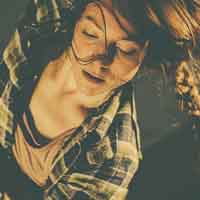
Ingeborg Zackariassen is a dancer and creator based in Gothenburg.The last few years she has invested her time and focused her thoughts on the meeting points between movement and sound. One of her focal points is to use the basic elements of dance and music and instead of letting them simply complement each other, merging them in order to find something new, something that is no longer only one or the other. Another is the relationship between performer and audience, and the problems that arise when the roles are not given. Finally, an important aspect of her work is studying to what degree performative actions can change the perception of both time and space, for performers as well as spectators.




